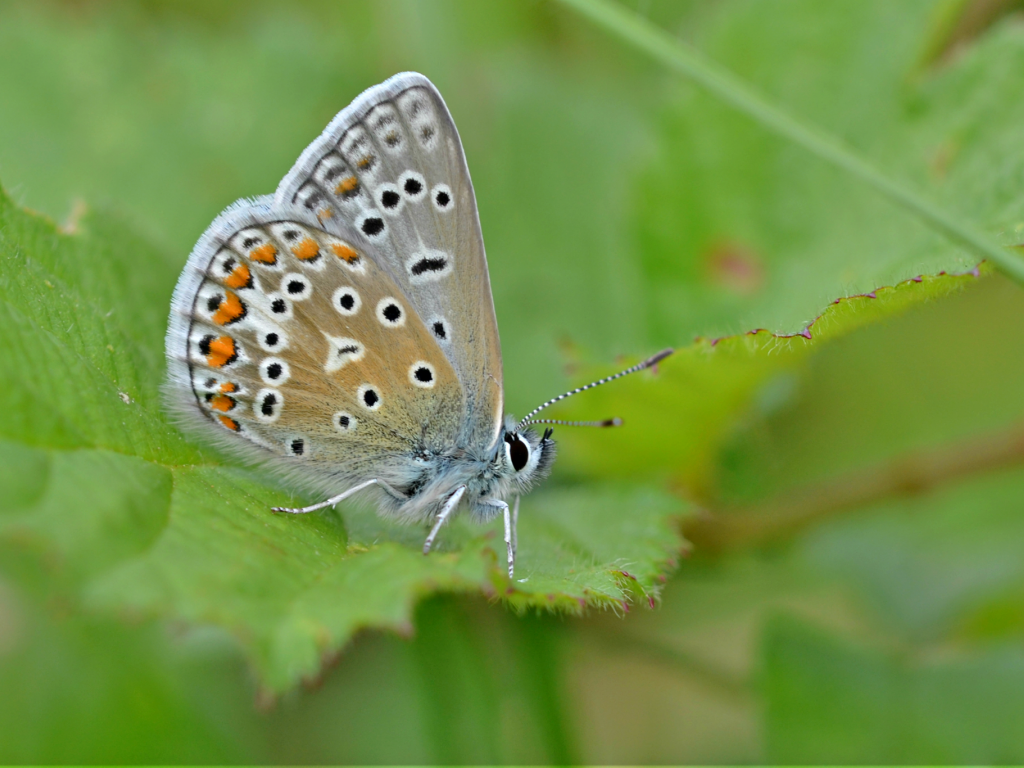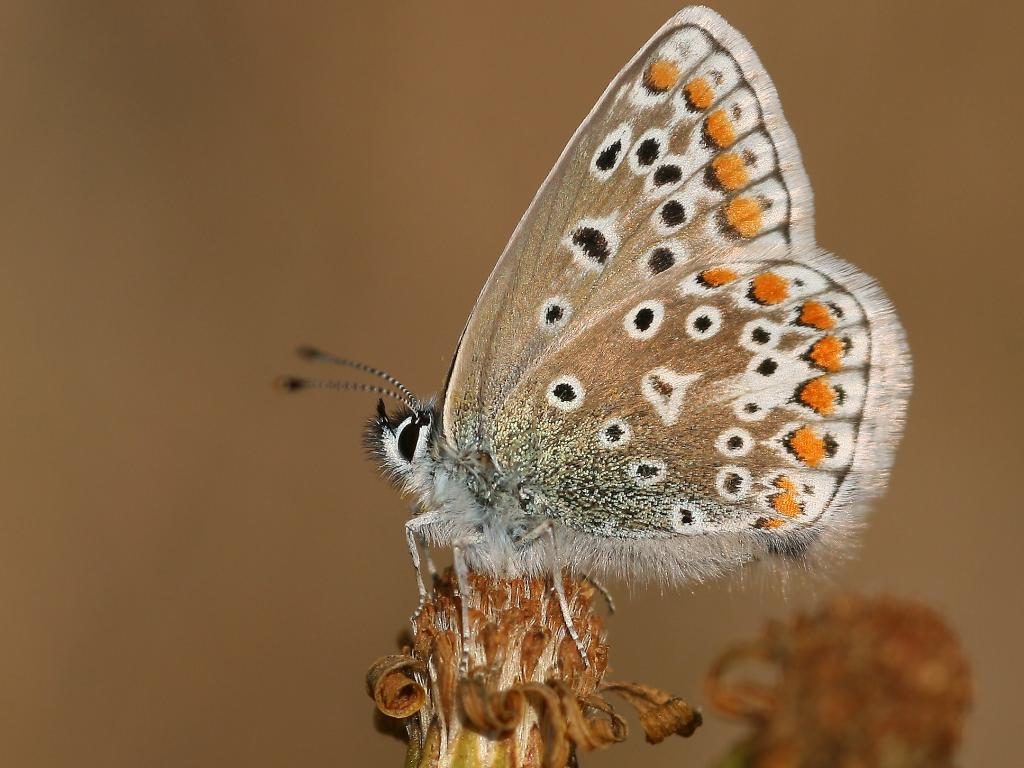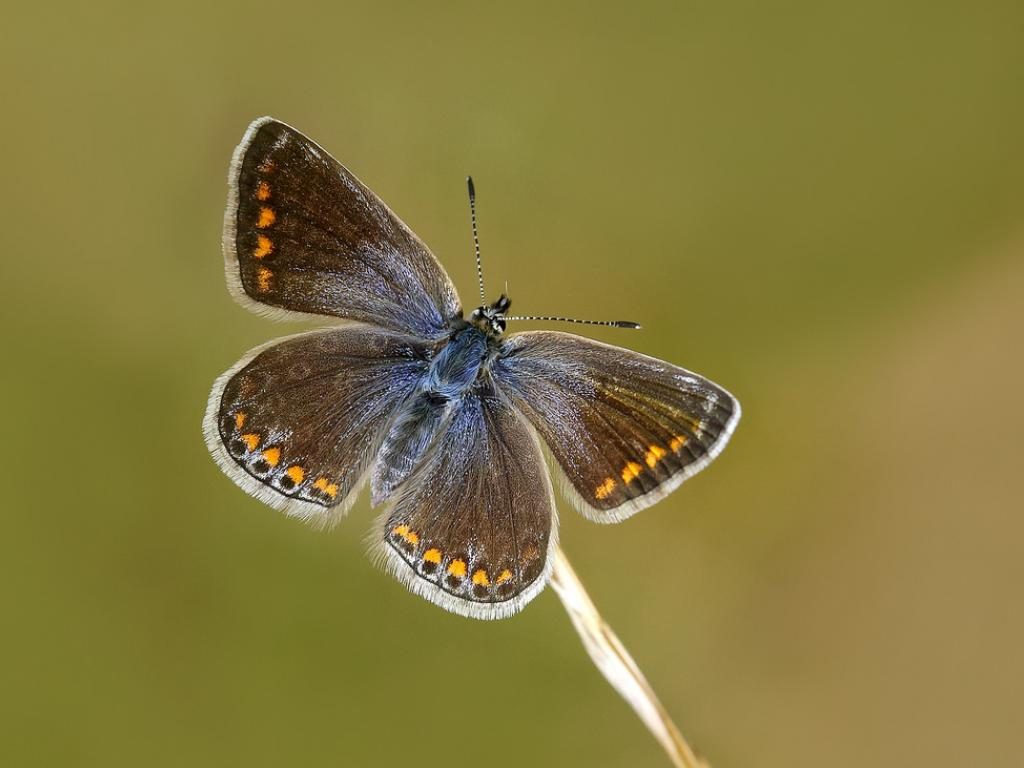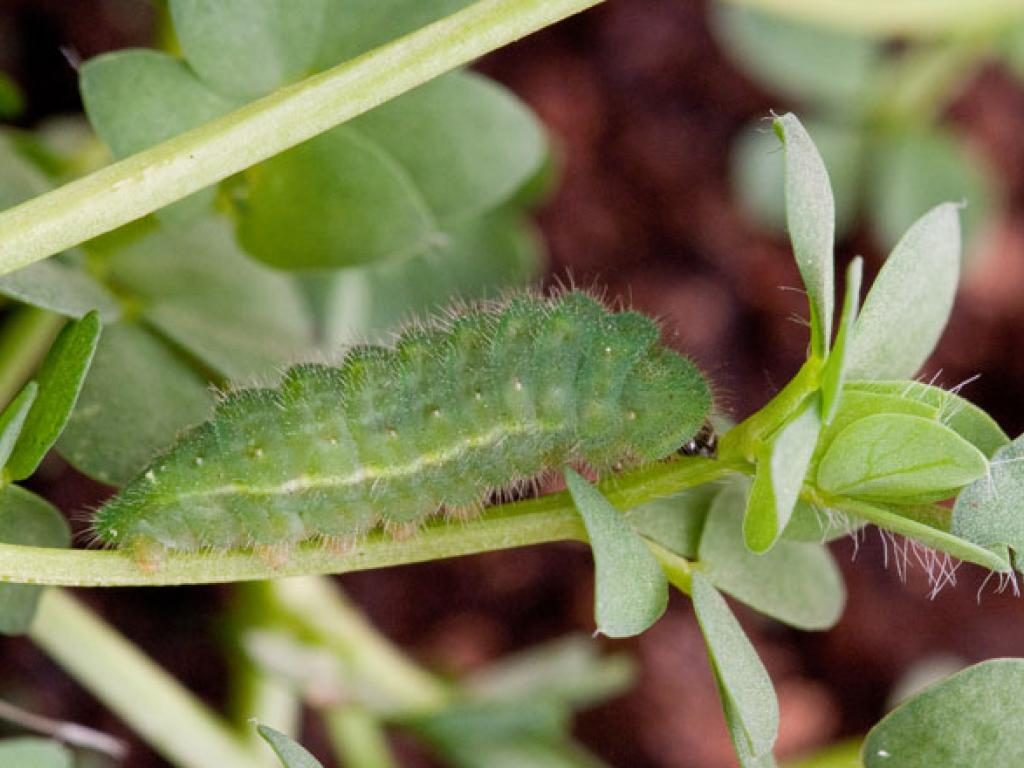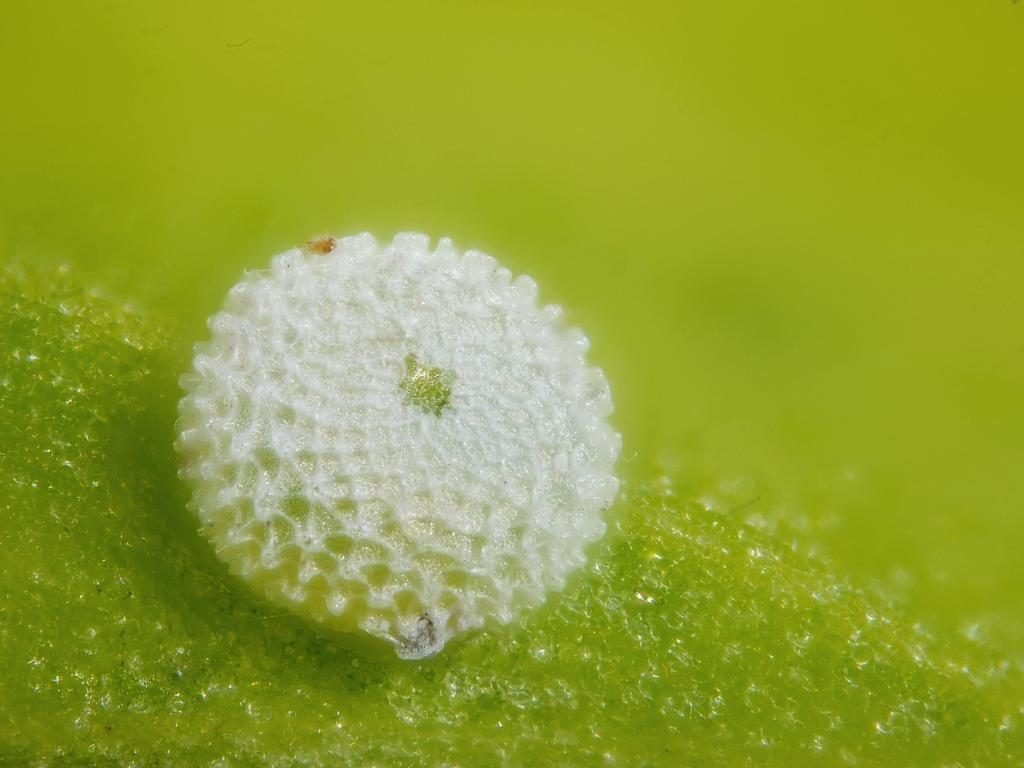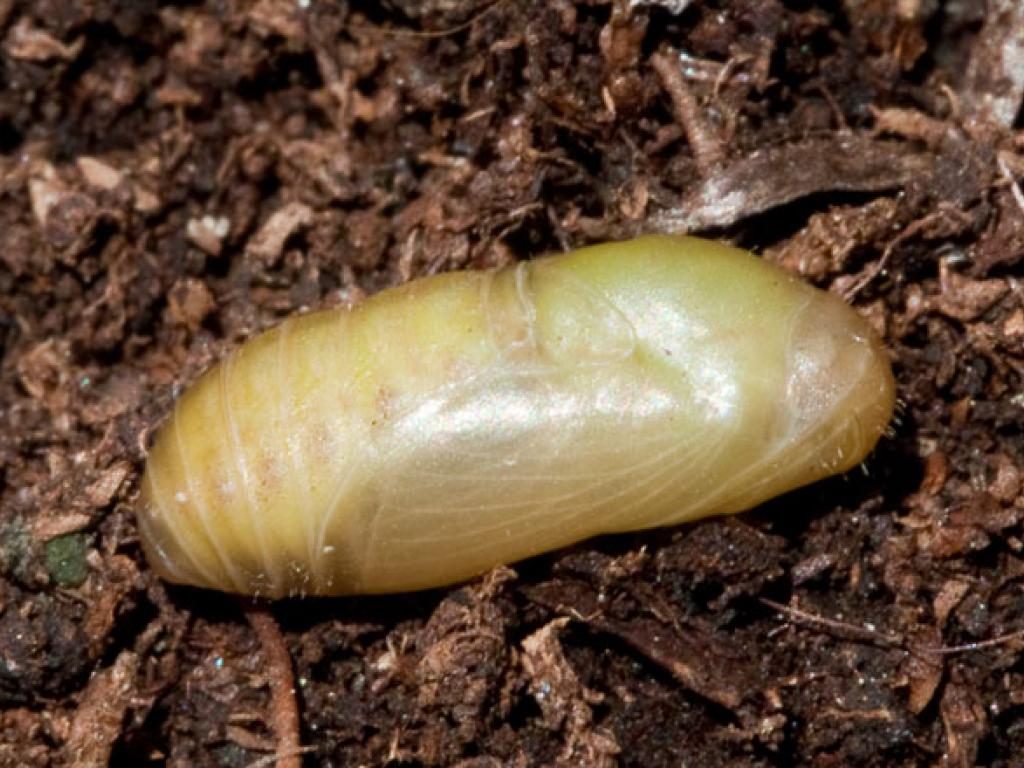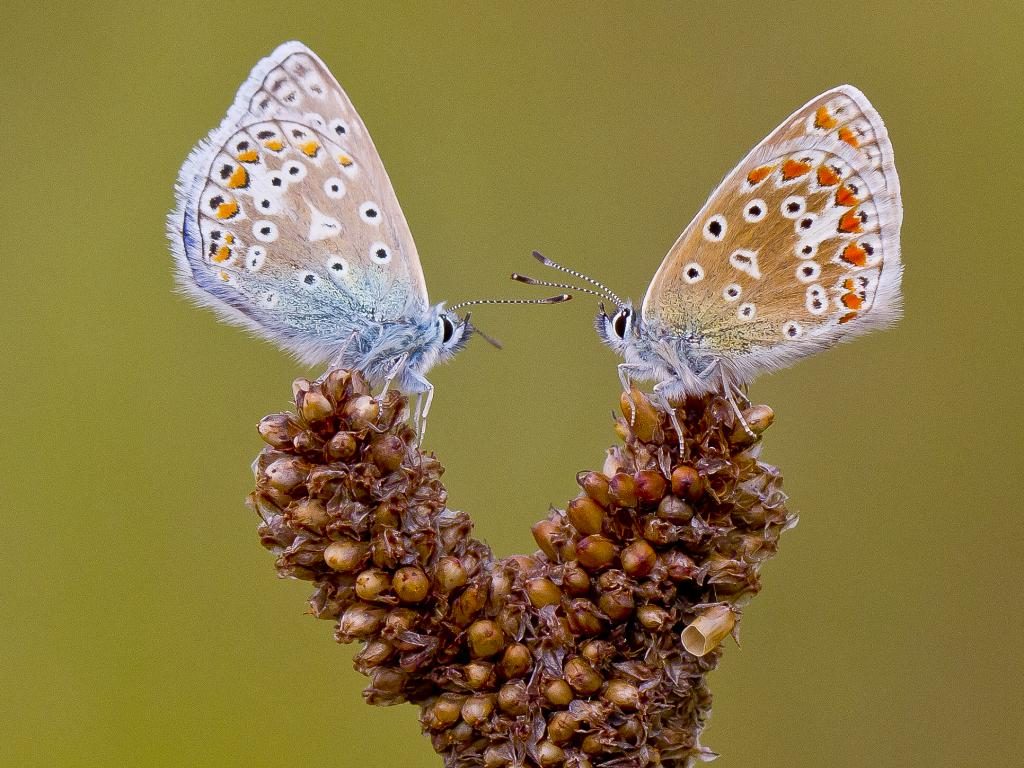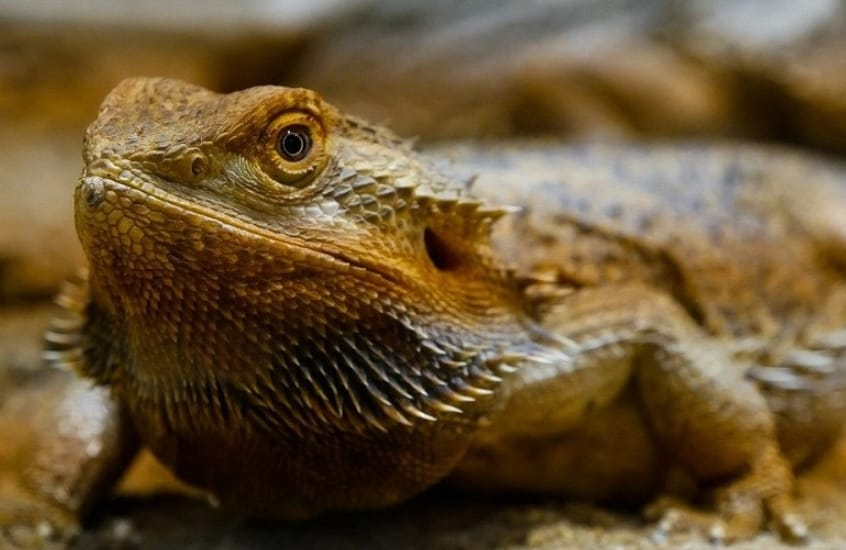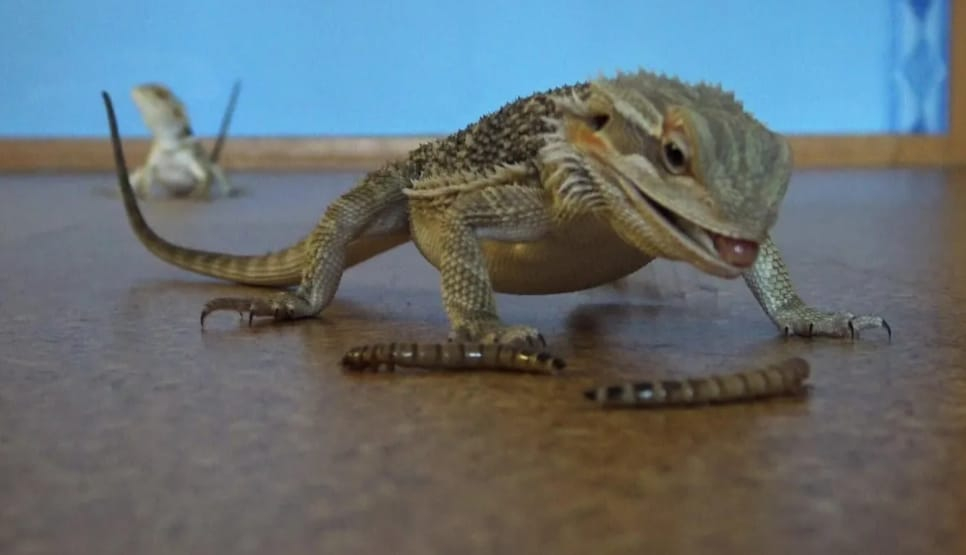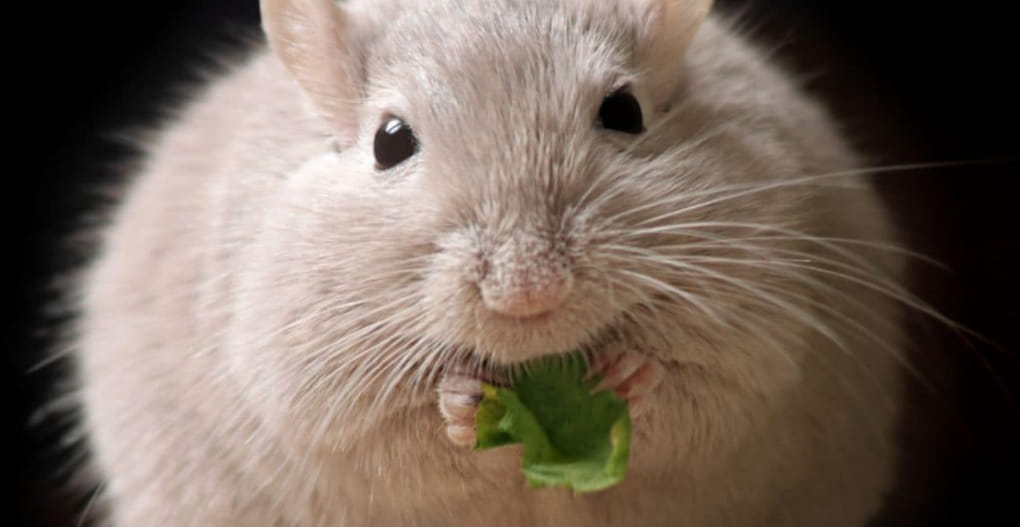Various Types of Butterflies – Butterflies are flying insect which large group of Lepidopterous insect. Butterflies have colorful wings with two pairs. They have variation pattern forms of wings that depend on butterfly species.
They are known approximately 17.500 species which is widespread in the world. Butterflies can be identified from their wings, size, shape and antenna.
Butterflies have the four distinct stage of their transformation process from immature to adult. It is commonly called as metamorphosis.
There are some types of butterflies that their names are adopted from their habitat, size, and color of wings. This article will review 58 kinds of butterflies that you should to know!
Table of Contents
Adonis blue
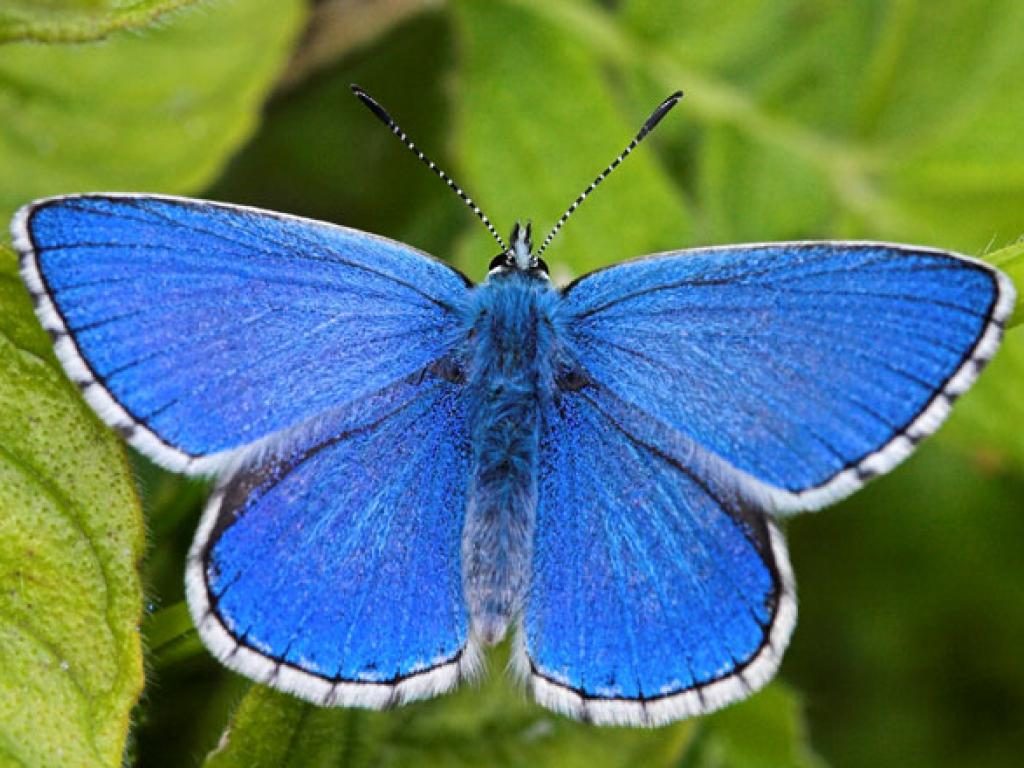
Adonis blue has different color and pattern of wings depend on the sex. The female wings are brown, while the males are conspicuous blue sky.
Both of them have typical black lines between base color of wings and white fringes. Its habitat is in the dry chalk where rich of many food plants.
Size and family
- Family: Blues
- Size: Small/Medium
- Wing Span Range (male to female): 38mm
Black Hairstreak
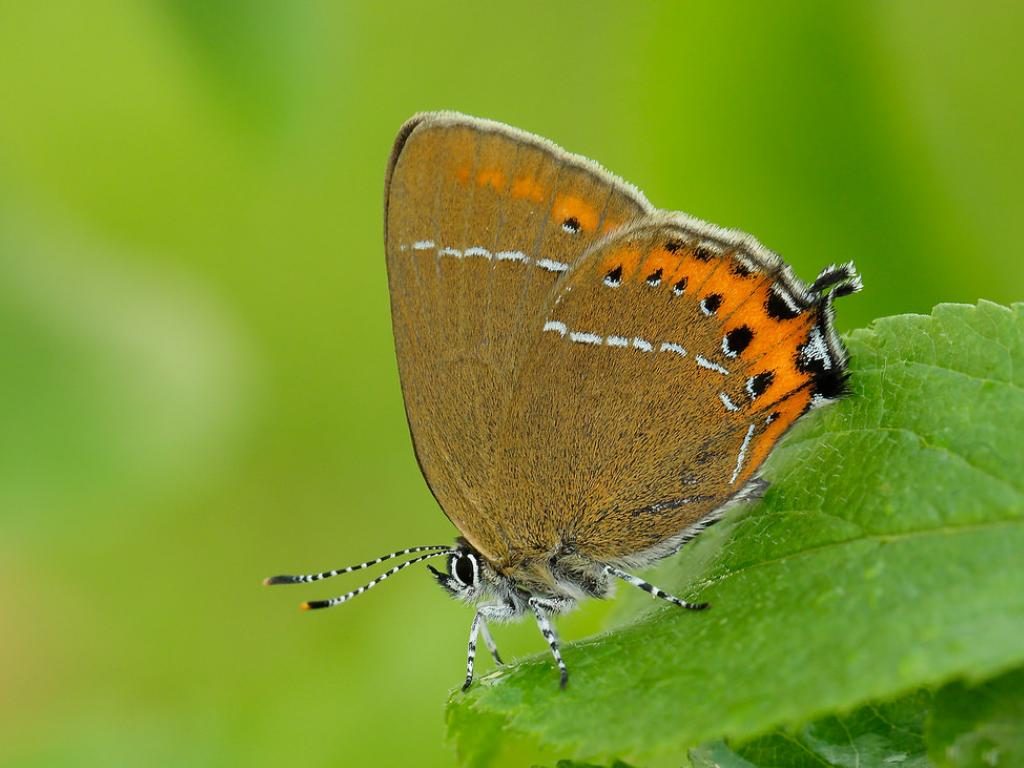
The black hairstreak is found in the east midland of England, exactly in thickets of blackthorn in woodland. The wings are brown with orange fringes, black spots, and white streaks. It has orange tip and white streaks on the antenna.
Size and family
- Family: Hairstreaks
- Size: Small/Medium
- Wing Span Range (male to female): 37mm
Brimstone
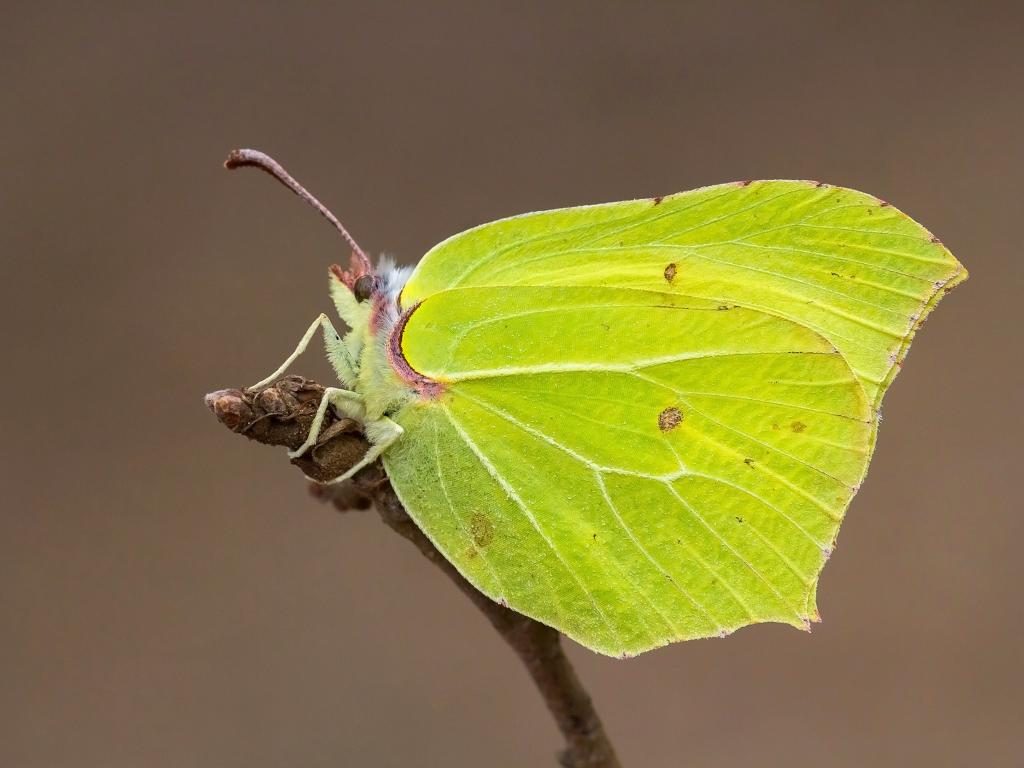
The brimstone is mostly found in northern England. The female’s wings are pale green, while the male’s under wings are yellowness green and the upper wings are yellow.
This butterfly variety has thick veins of its wings and unique shape which is nearly similar to leaves.
Size and family
- Family: Whites and Yellows
- Size: Large
- Wing Span Range (male to female): 60mm
Brown argus (Aricia agestis)
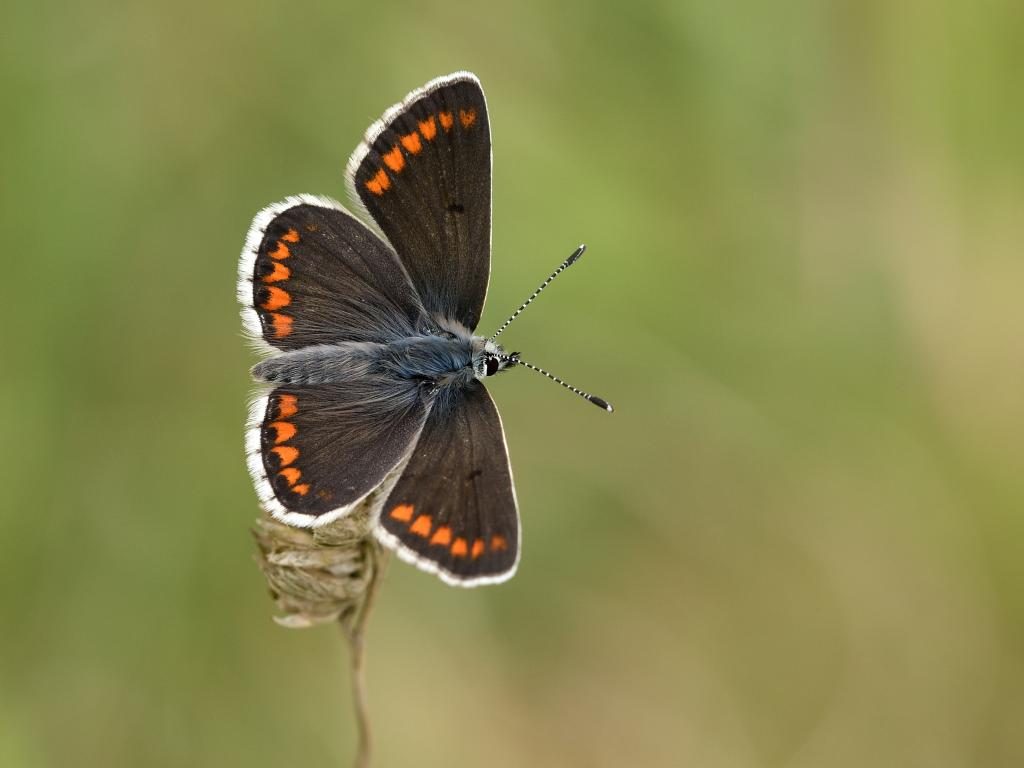
Brown Argus is widely Found in southern and central England and coastal in Wales. The under wings have silver with black and orange spots, also white edges, while the upper wings have dark brown with orange patterns.
Size and family
- Family: Blues
- Size: Small
- Wing Span Range (male to female): 29mm
Brown hairstreak (Thecla betulae)
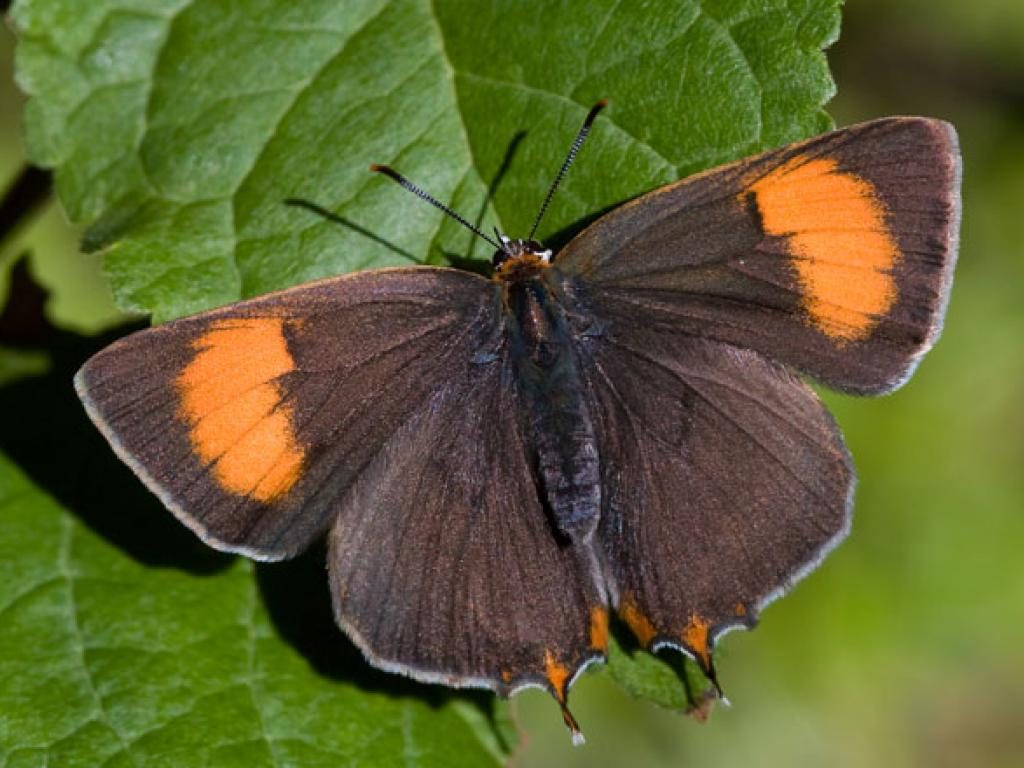
Brown hairstreak is distributed in England, Wales, and Ireland. Its habitats are in woodland edge, scrub, and hedges where Brown hairstreak lays eggs on the blackthorn offshoots.
The upper wings of this butterfly are brown with an orange pattern and orange-brown under wings with white wavy line. Brown hairstreak typically its wings closed when it rests.
-
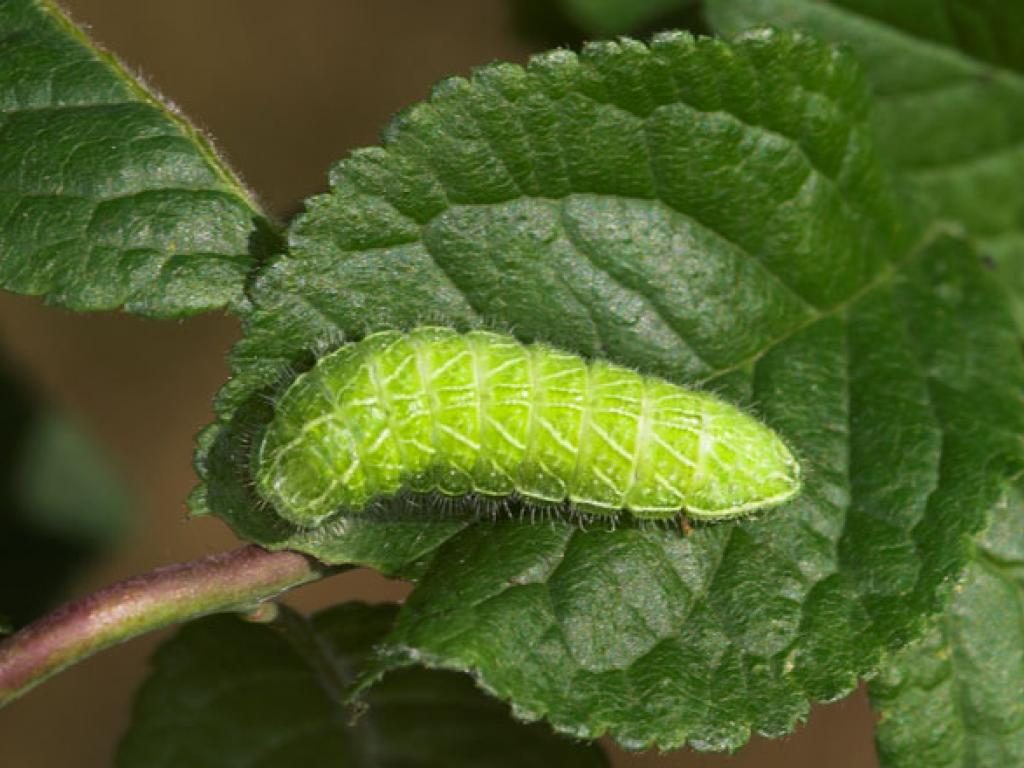
brown hairstreak caterpillar -
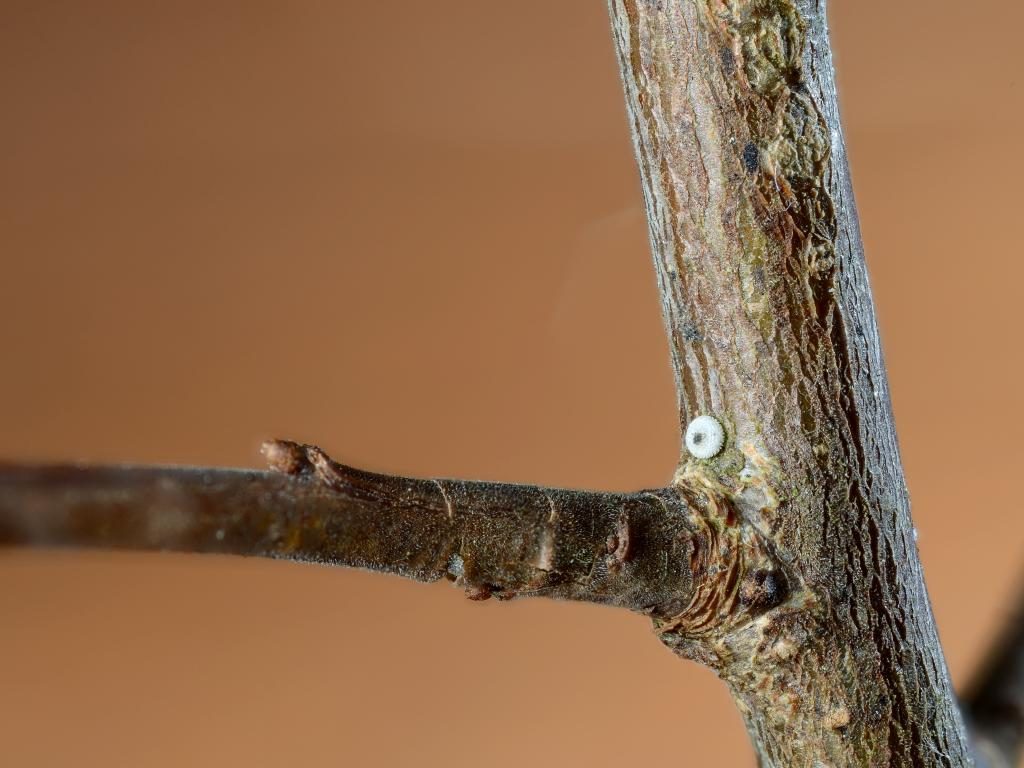
brown hairstreak egg -
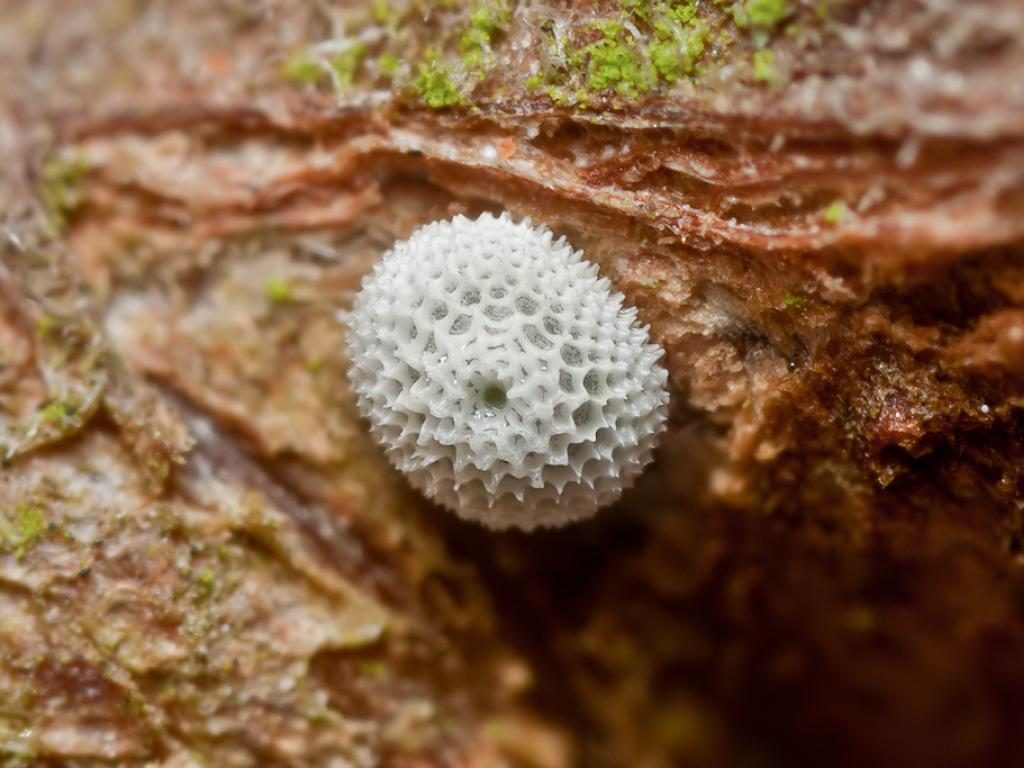
brown hairstreak egg -
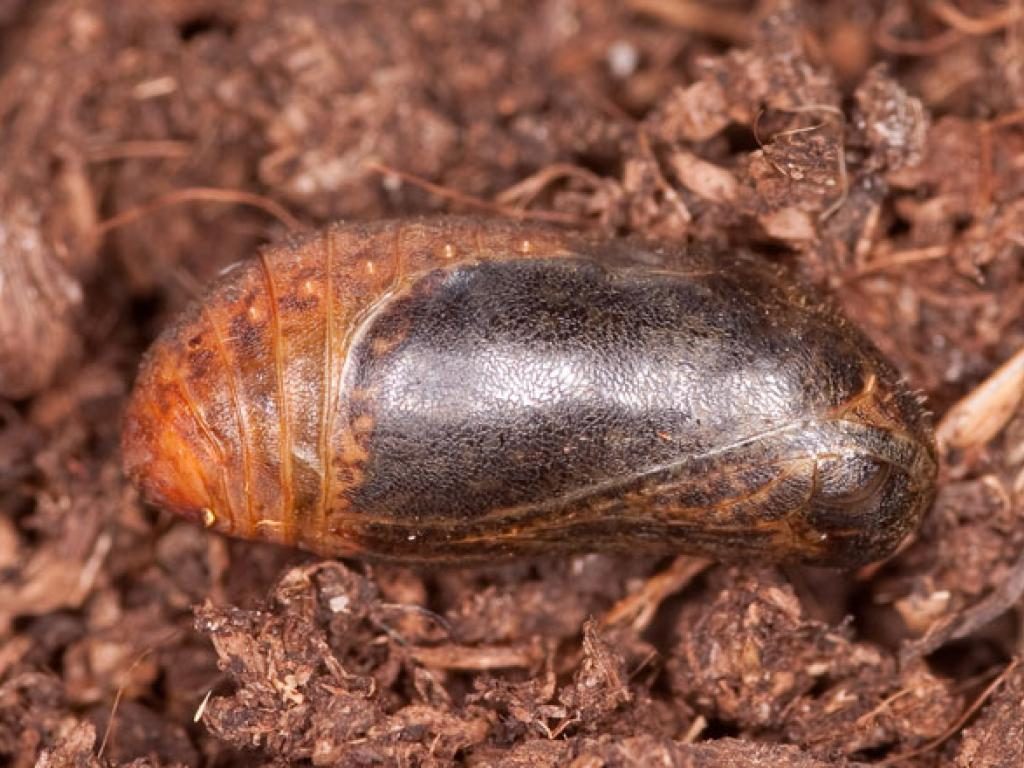
brown hairstreak pupa -
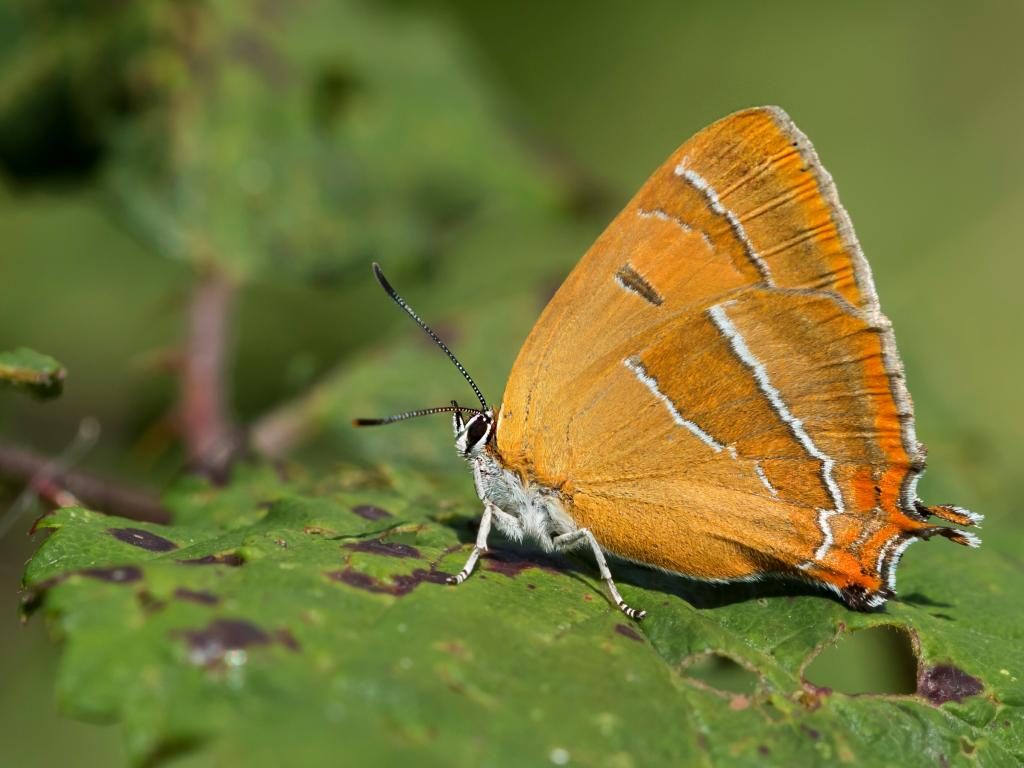
brown hairstreak underwing female -
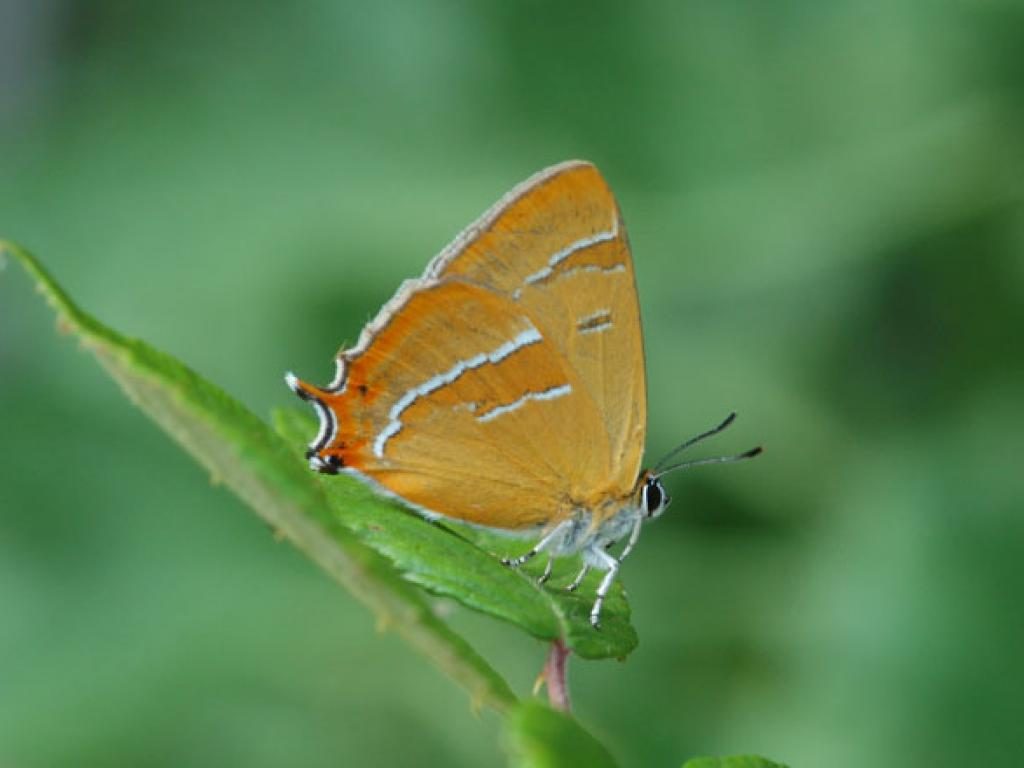
brown hairstreak underwing male -
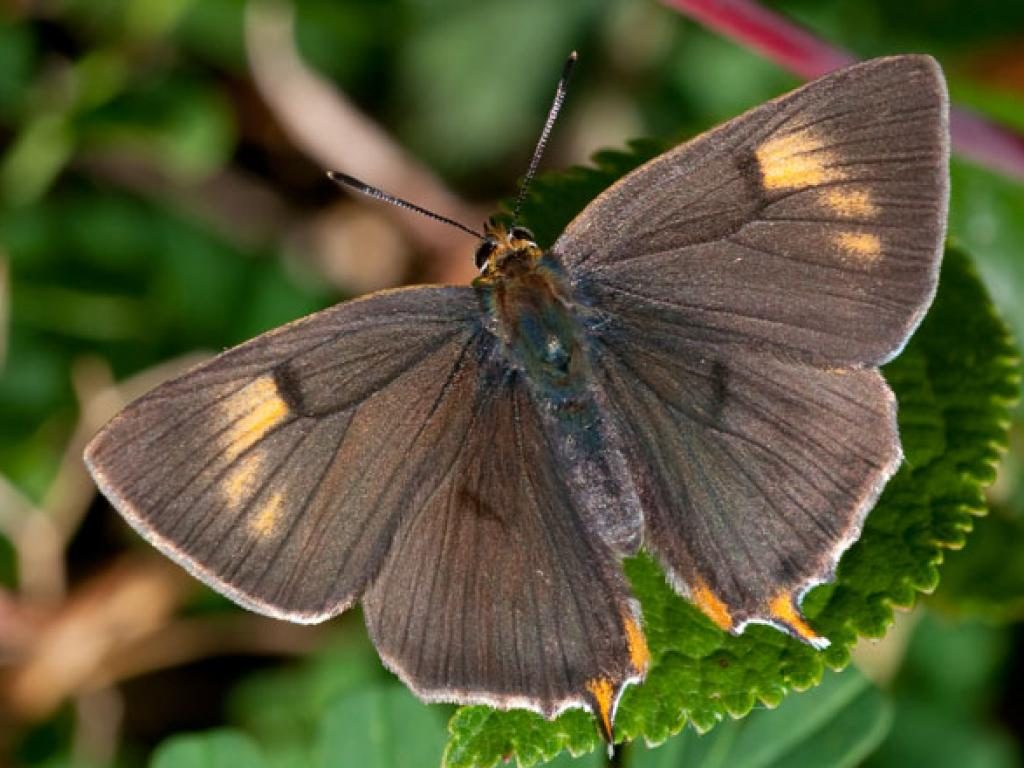
brown hairstreak upperwing male
Size and family
- Family: Hairstreaks
- Size: Small/Medium
- Wing Span Range (male to female): 38-40mm
Chalk hill blue (Polyommatus coridon)
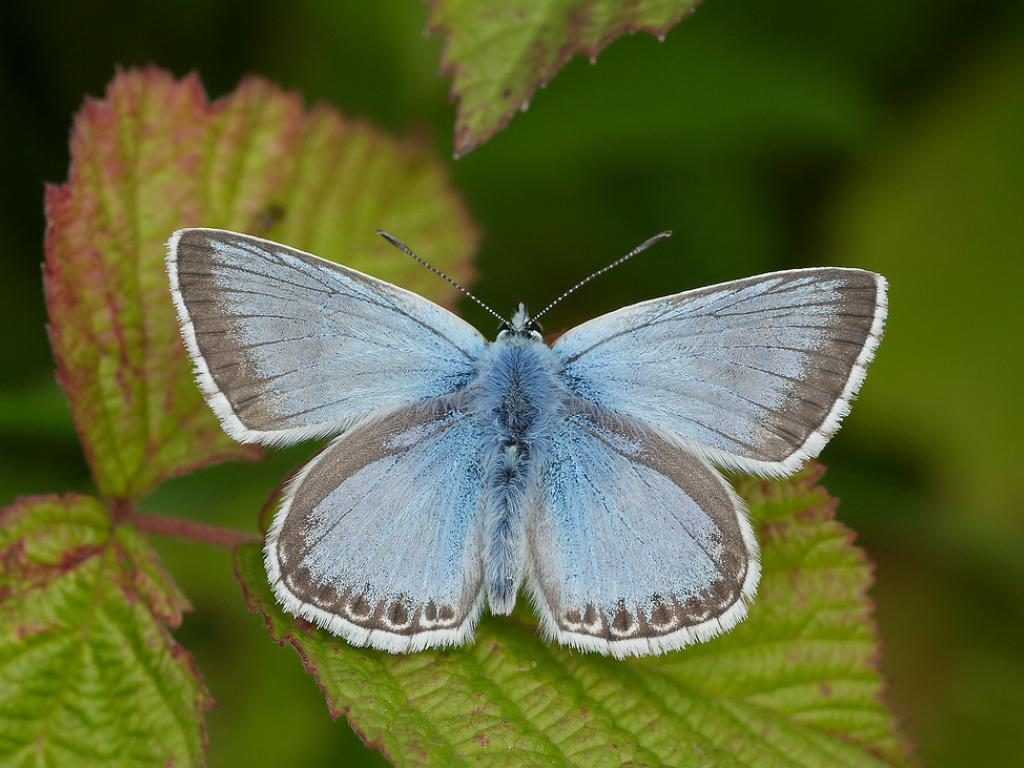
The habitats of Chalk Hill Blue are in chalk and limestone grassland. This butterfly can be seen in Britain and Ireland, exactly on August. T
he wings of females are brown with a bit blue around their body and white edges, while the wings of males are blue with the dust black and white edges.
-
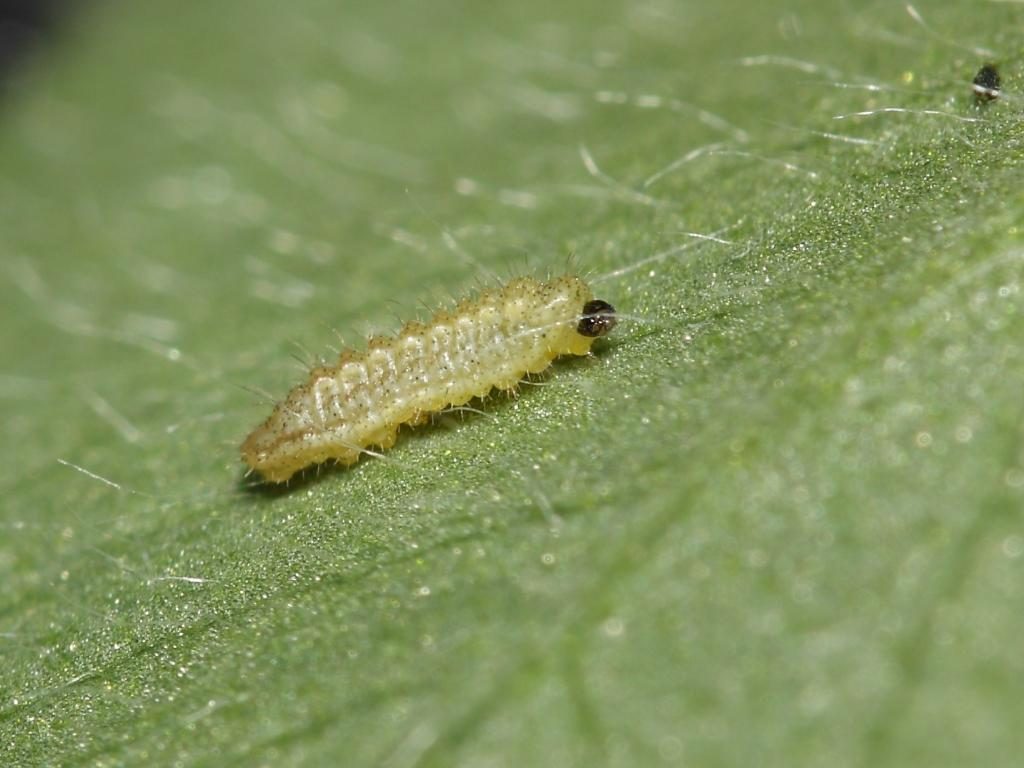
chalk hill blue caterpillar -
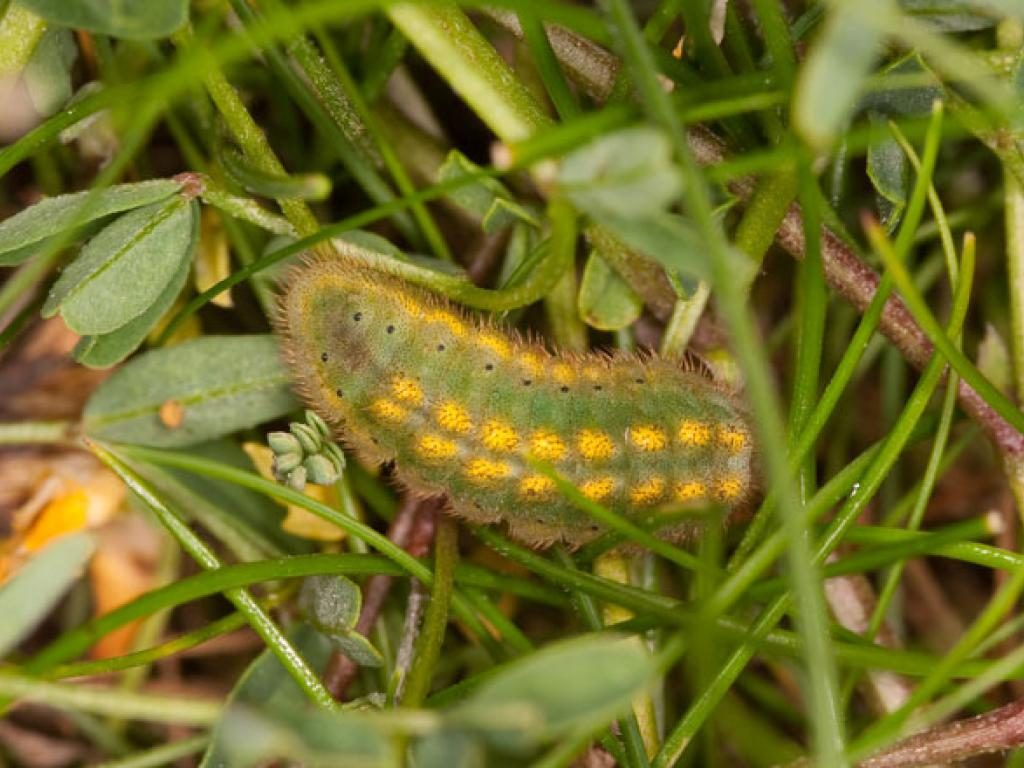
chalk hill blue caterpillar -
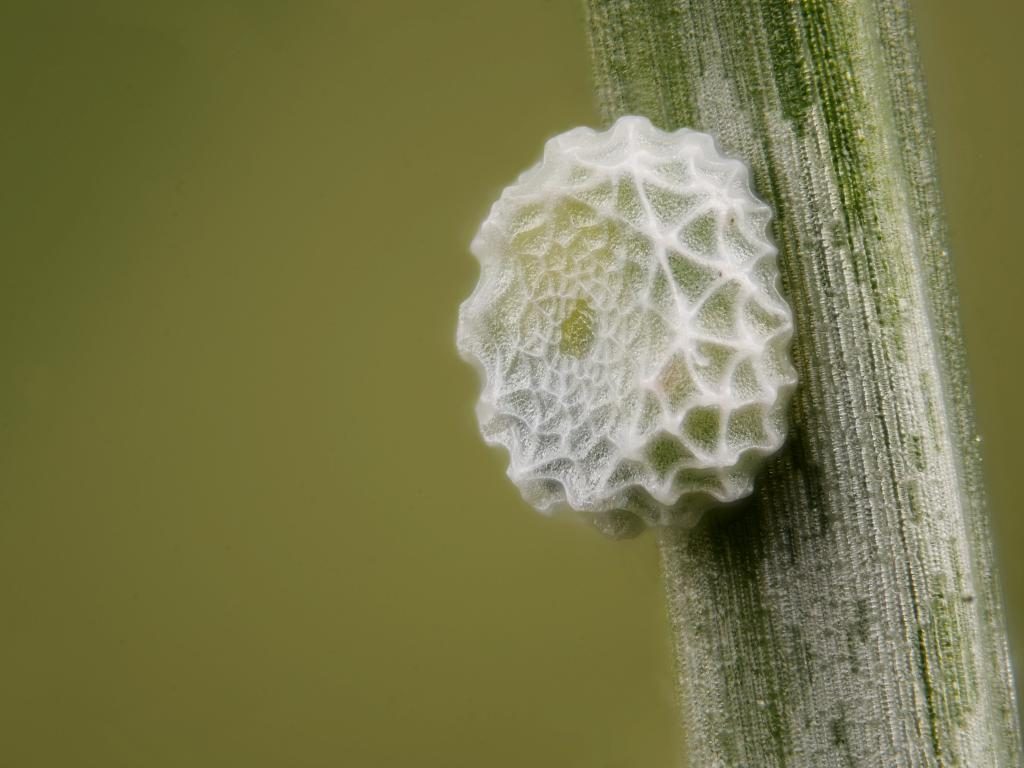
chalk hill blue egg -
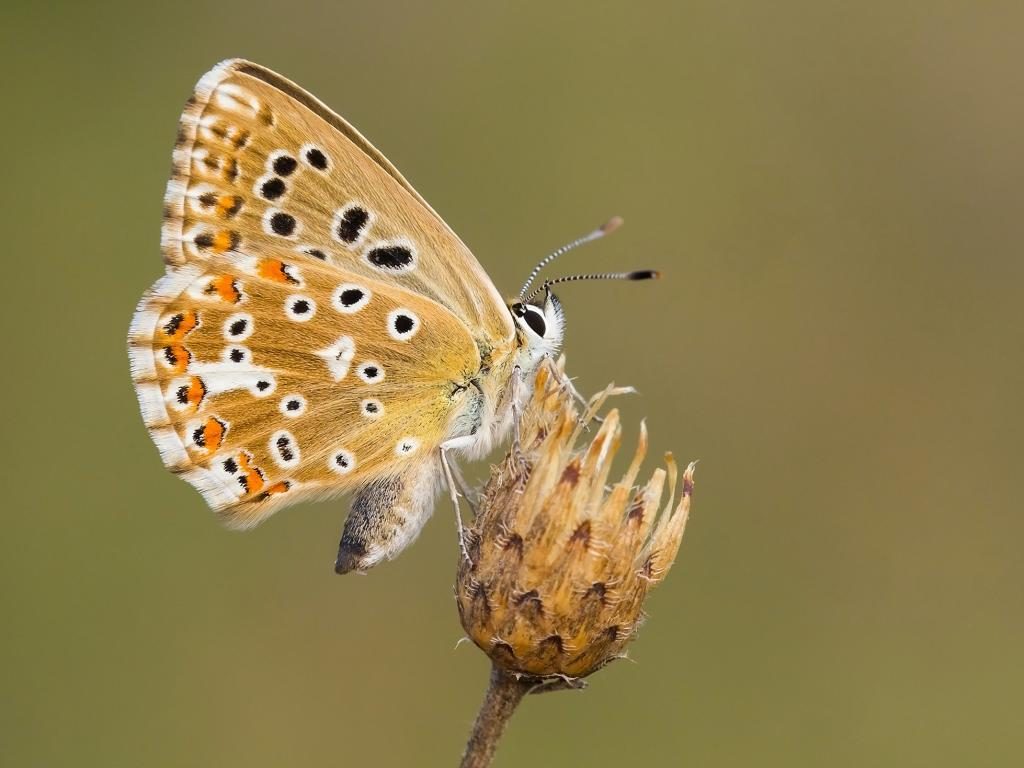
chalk hill blue female underwing -
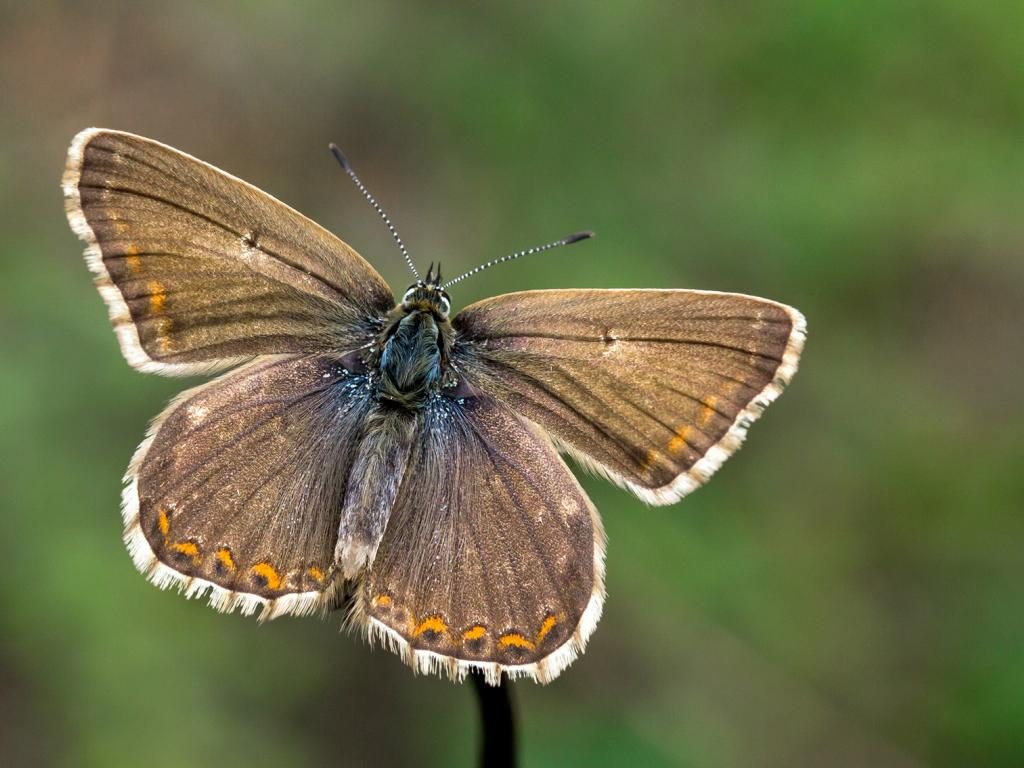
chalk hill blue female upperwing -
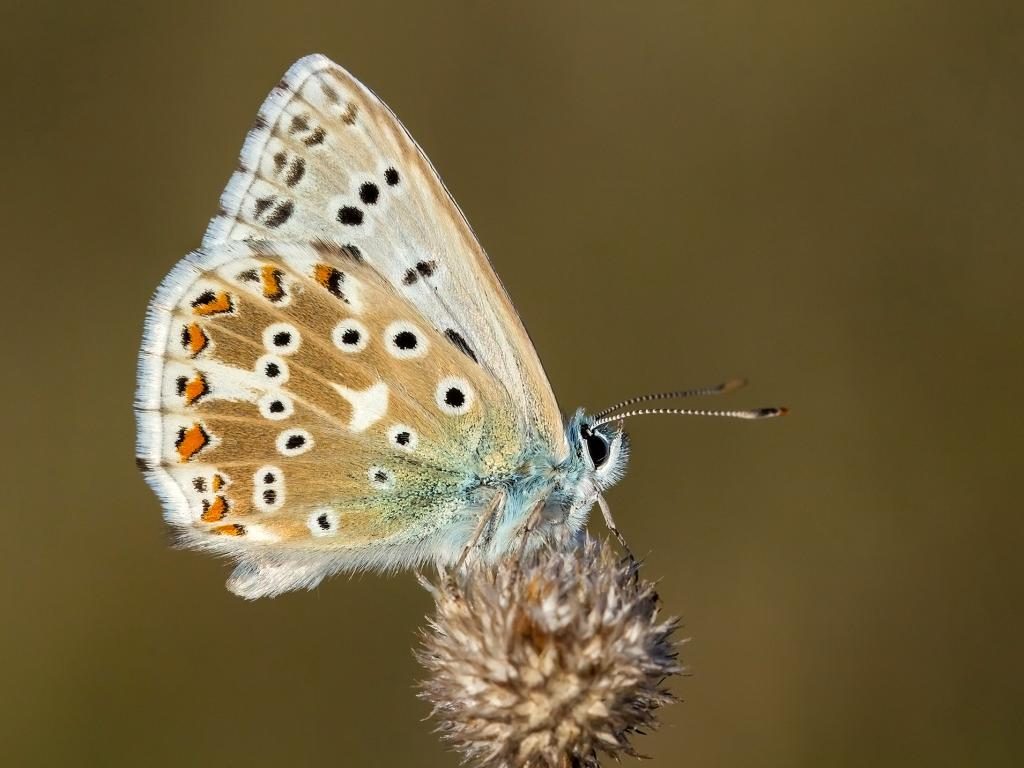
chalk hill blue male underwing
Size and family
- Family: Blues
- Size: Small/Medium
- Wing Span Range (male to female): 38mm
Chequered skipper (carterocephalus palaemon)
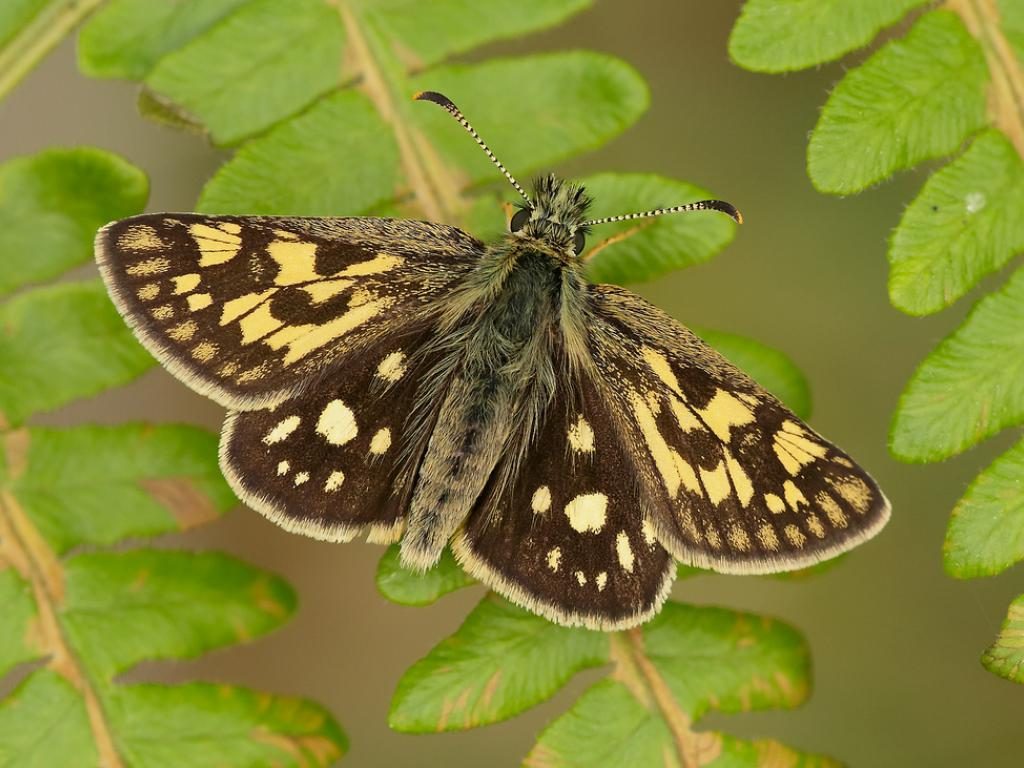
This small butterfly is the fast flying butterfly. Chequered Skipper’s colonies are formed exactly on woodland rides and glades in England and also can be found in Ireland, Wales, and Scotland.
The upper wings are brown with yellow pattern forms and yellow edge, while the under wings are orange with white patterns and black line.
Size and family
- Family – Skippers
- Small Sized
- Wing Span Range (male to female) – 29-31mm
Clouded yellow
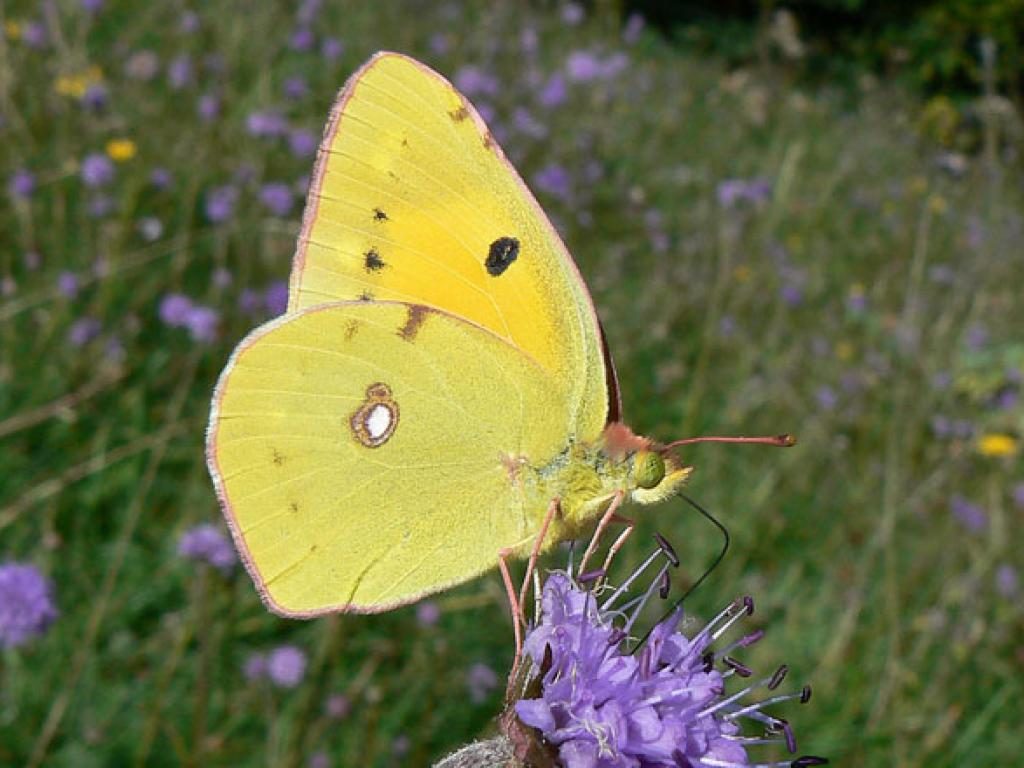
The wings of Clouded Yellow are yellowish green wings with a bit irregular mark. This large butterfly is used to perch in the flowery place that provided of the food plant for its caterpillar.
The caterpillar food plants are wild and cultivated clovers (Trifolium spp.), trefoil (Lotus corniculatus), and Lucerne (Medicago sativa).
Size and family
- Family: Whites and yellows
- Size: Large
- Wing Span Range (male to female): 57-62mm
Comma
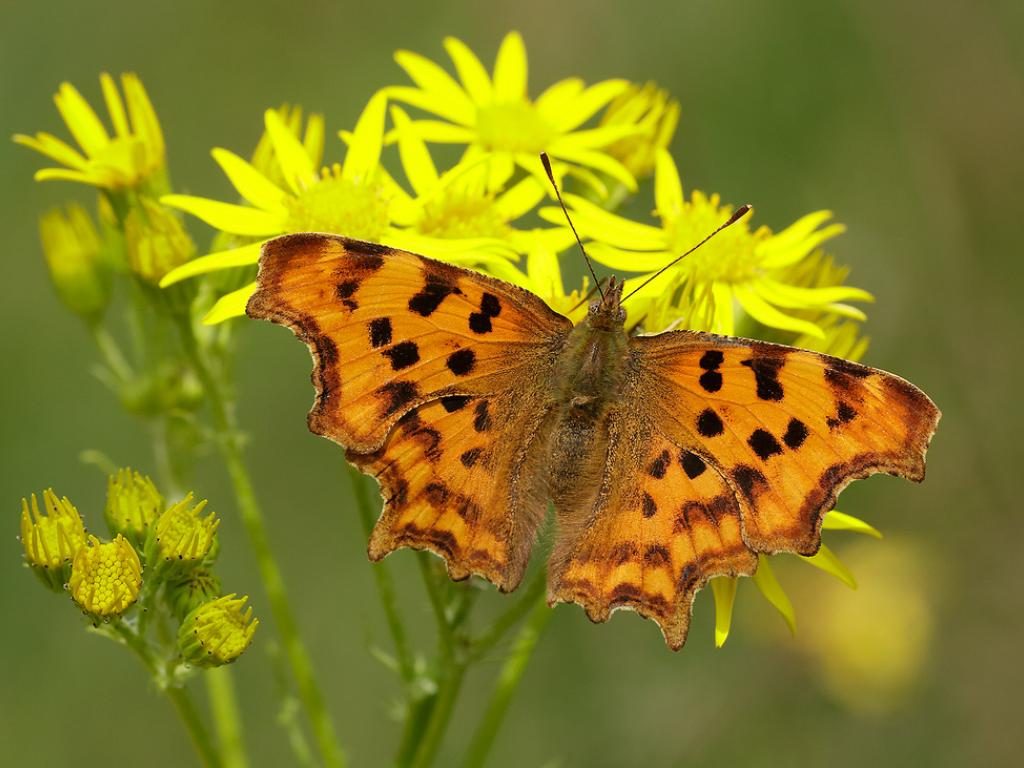
This butterfly species is one of the most fascinating butterflies. The upper wings are bright orange with dark brown mark, and unique edges. Comma’s life cycles occurs flexibly in any weathers.
Size and family
- Family: Nymphalids
- Size: Medium
- Wing Span Range (male to female): 55-60mm
Common blue
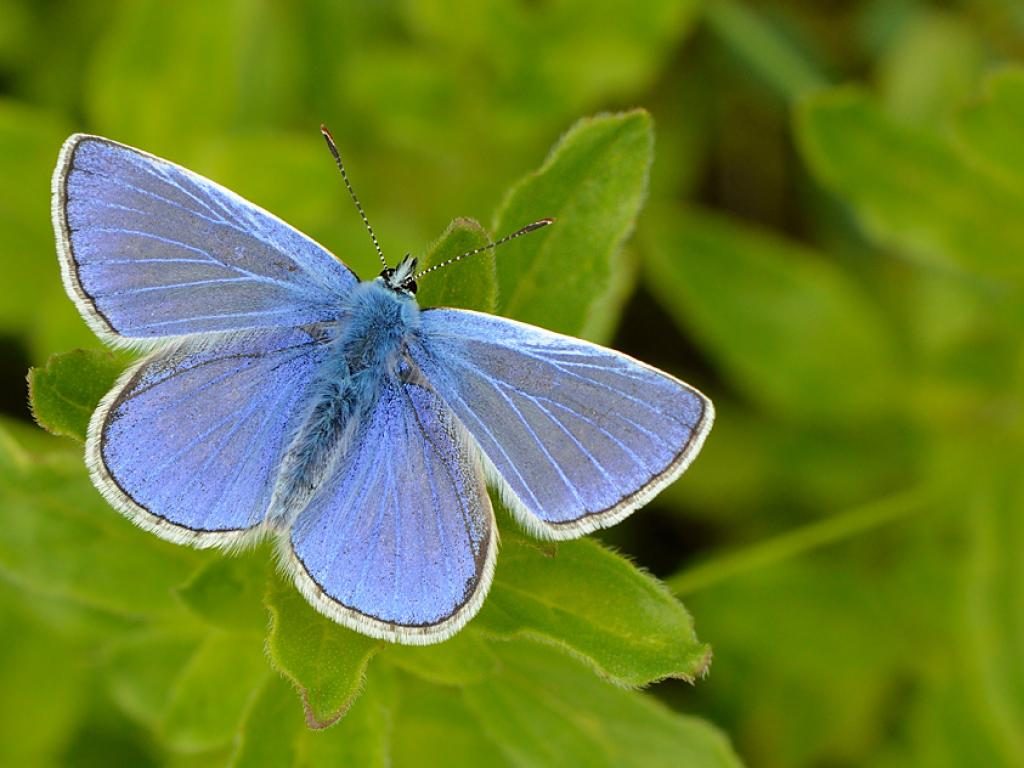
This small butterfly has different color and pattern between females and males wings. The upper wings of females are brown and blue around its body, orange and block spots, and white edges.
While upper wings of males are blue with veins, and white edges. The under wings are brown with irregular black and orange spots, and white fringes.
Cryptic wood white
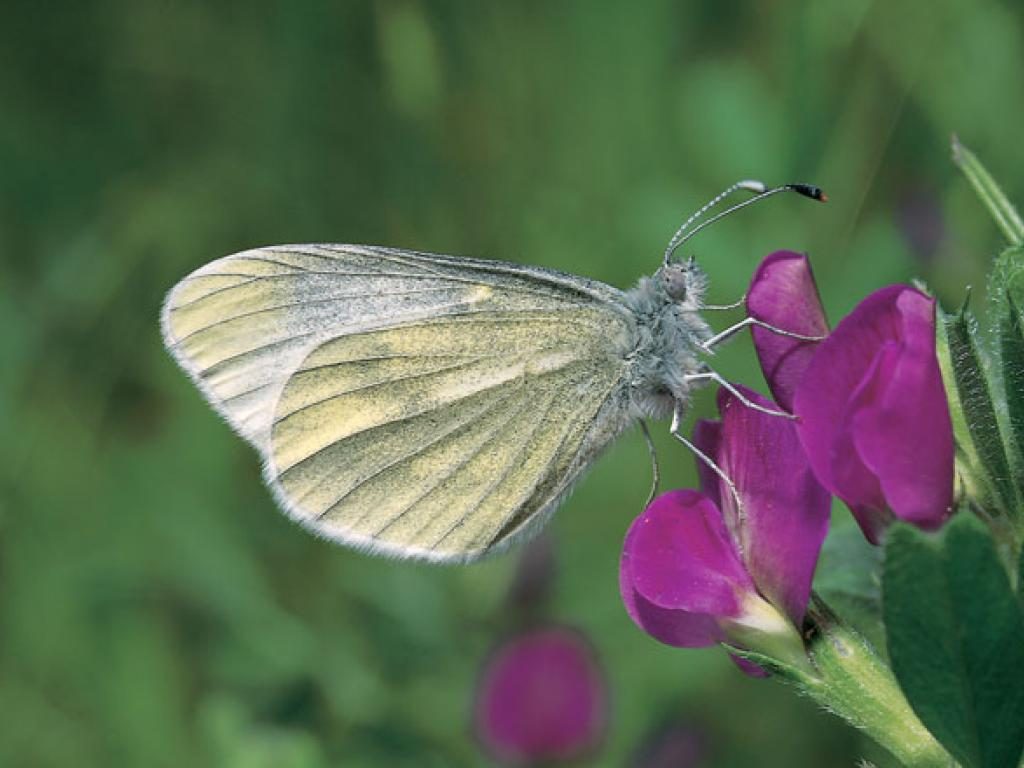
This butterfly includes to medium size of butterflies which only found in Ireland. The under wings are white with unclear grey patterns, while the upper wings are with roundish fringes. The males have typically a black sign of the wings.
Size and family
- Family: Whites and yellows
- Size: Medium
- Wing Span Range (male to female): 42mm
Dark green fritillary
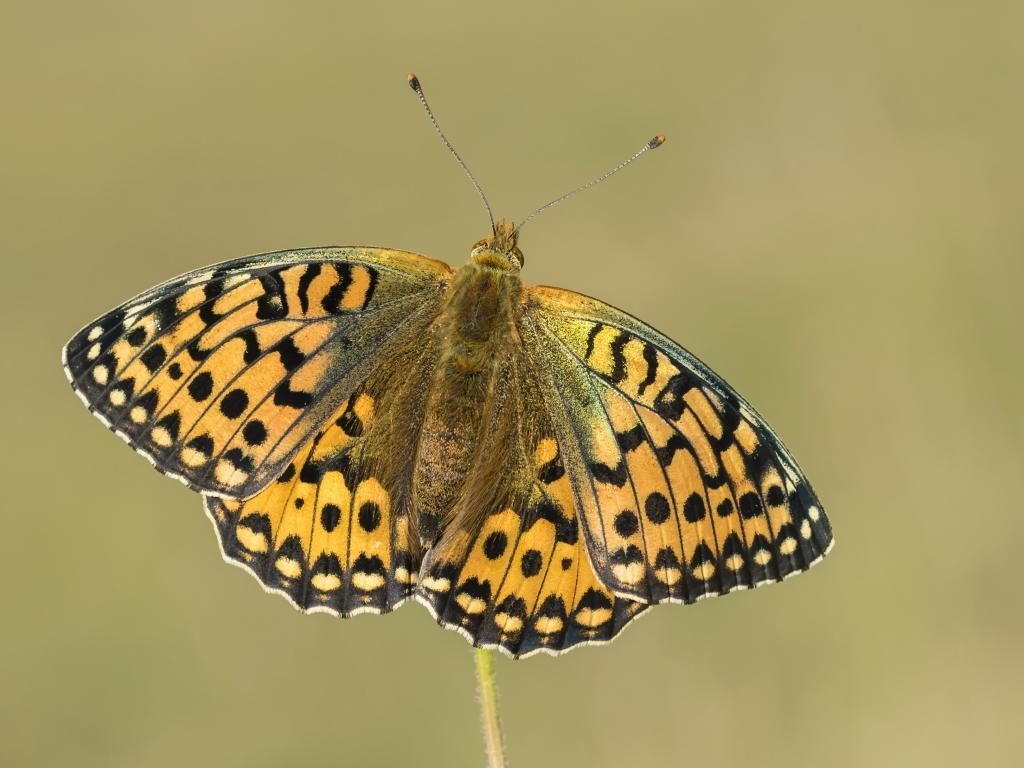
Dark green fritillary has more patterns on its forewings. The upper wings of females are yellow with a lot of black pattern and black lines of white edges.
While the upper wings of males are orange with black pattern and black lines. The both under wings are yellow with white irregular spots. Dark green fritillary is commonly flying seen in grassy place such as coastal grassland, dunes and scrub.
-
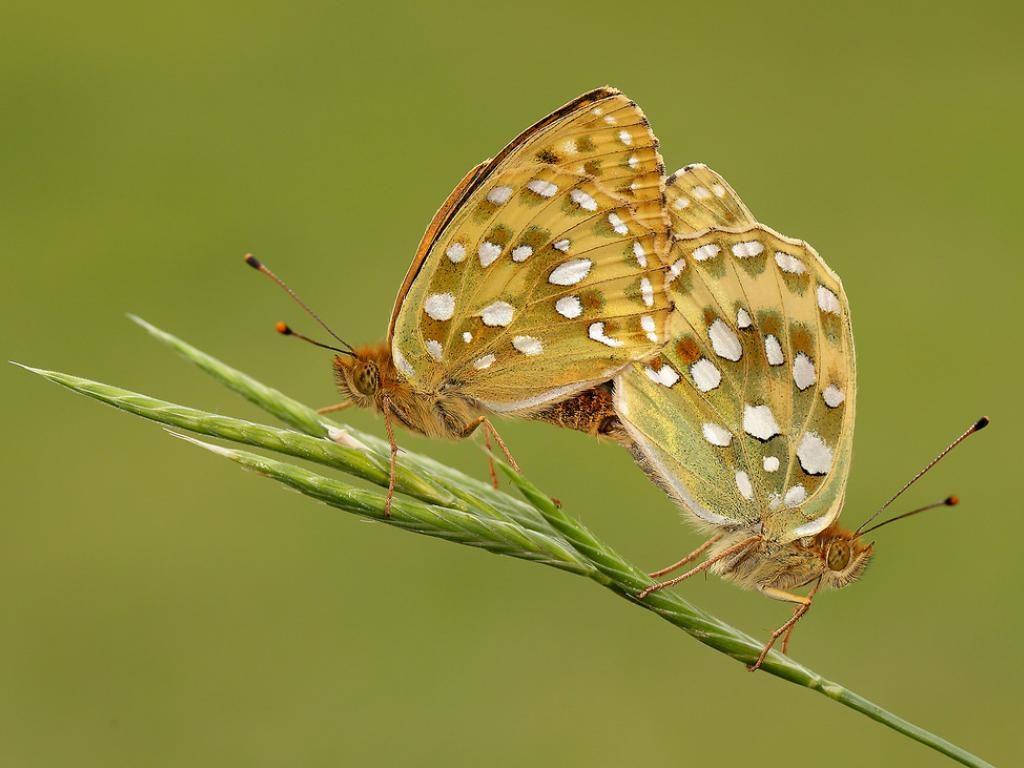
dark green fritillary male and female -
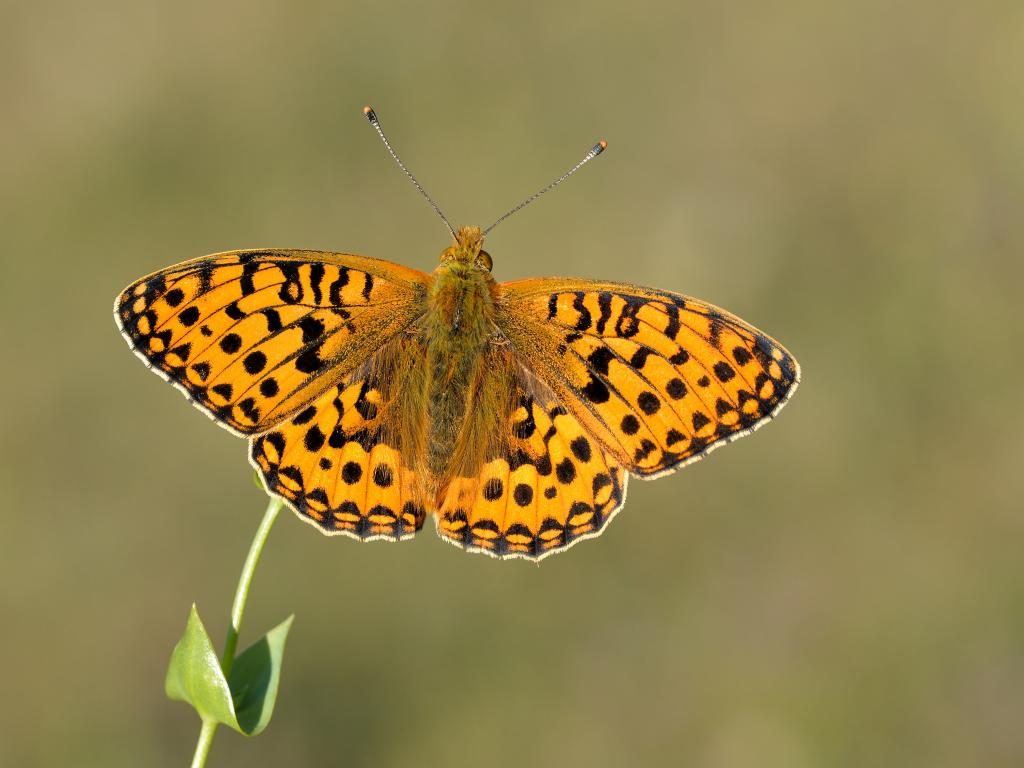
dark green fritillary male upperwing -
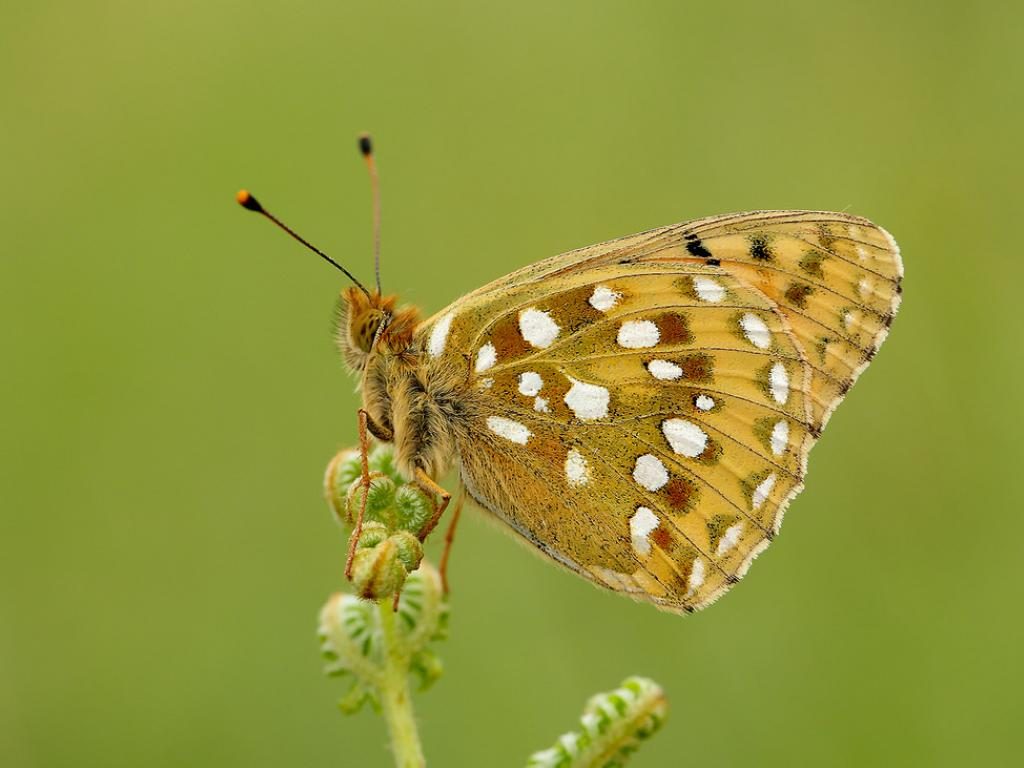
dark green fritillary underwing -
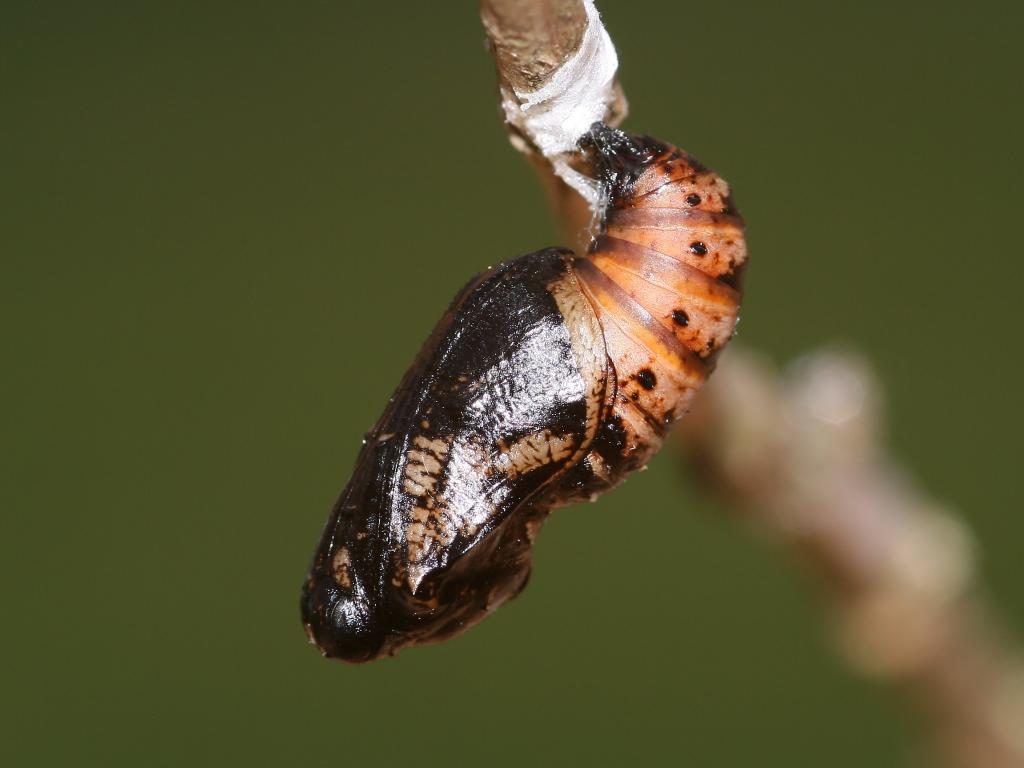
dark green fritillary male upperwing -
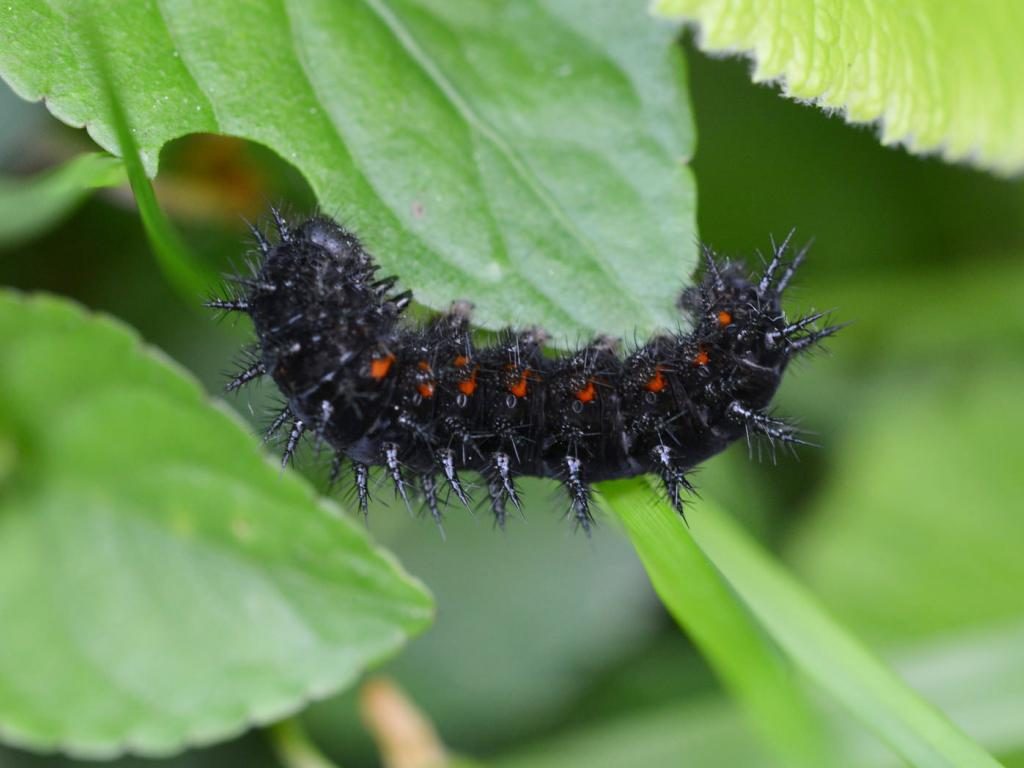
dark green fritillary fully grown caterpillar -
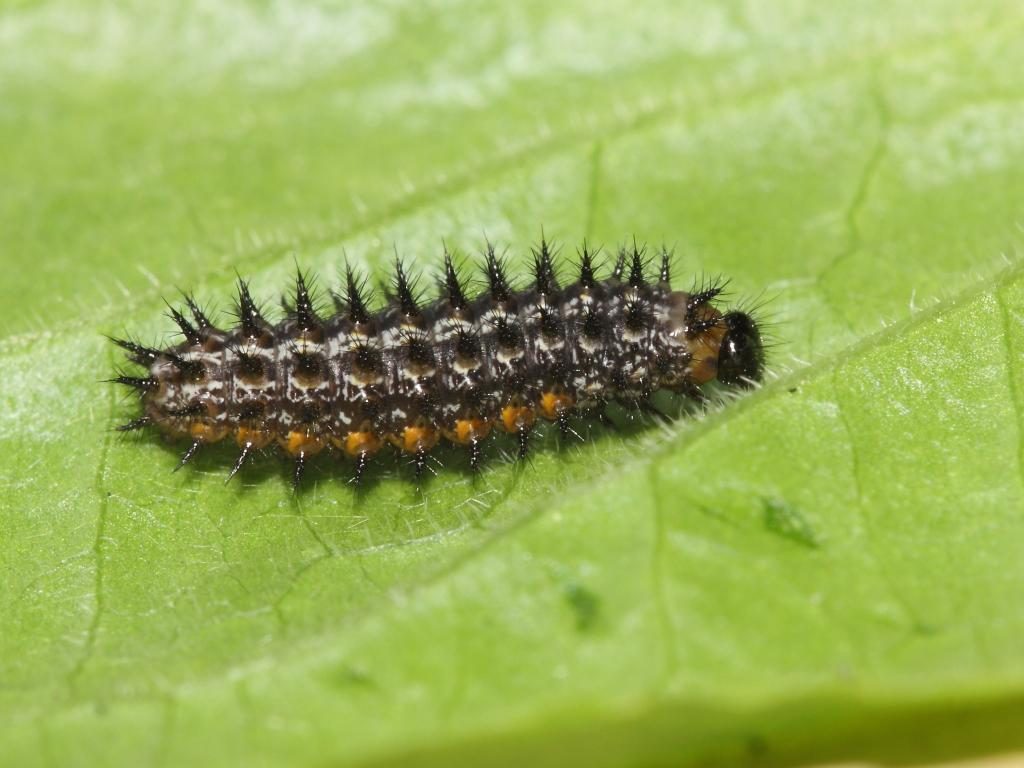
dark green fritillary young caterpillar
Size and family
- Family: Fritillaries
- Size: Large
- Wing Span Range (male to female): 63-69mm
Habitat
Four main types of flower-rich grassland habitats, often with patches of scrub, are used:
- Chalk and limestone grassland;
- Damp grassland, flushes and moorland;
- Grassland with Bracken Pteridium aquilinum;
- Coastal grassland, dunes and scrub.
Other habitats used include woodland ridesand clearings.
Dingy skipper
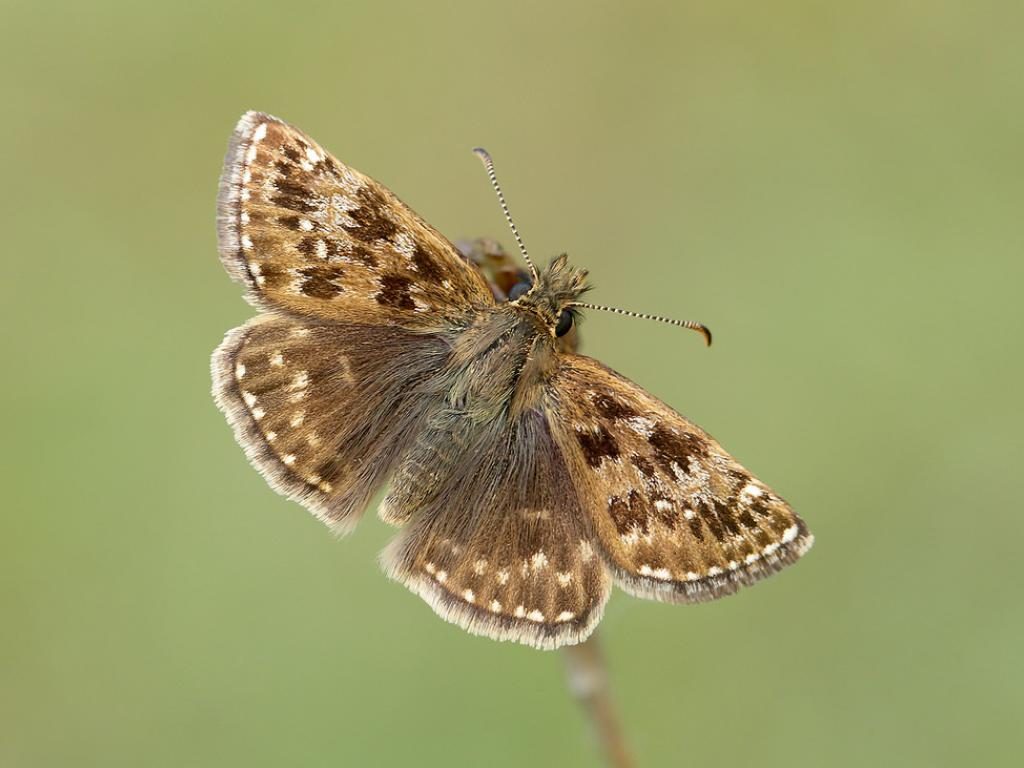
This butterfly is used to bask on the ground. The wings of females are darker than males. The upper wings of females are dark brown with white marks and white edges, while the males are brown with white marks.
Dingy skipper is commonly seen in Britain and Ireland.
Size and family
- Family: Skippers
- Size: Small
- Wing Span Range (male to female): 29mm
Duke of burgundy
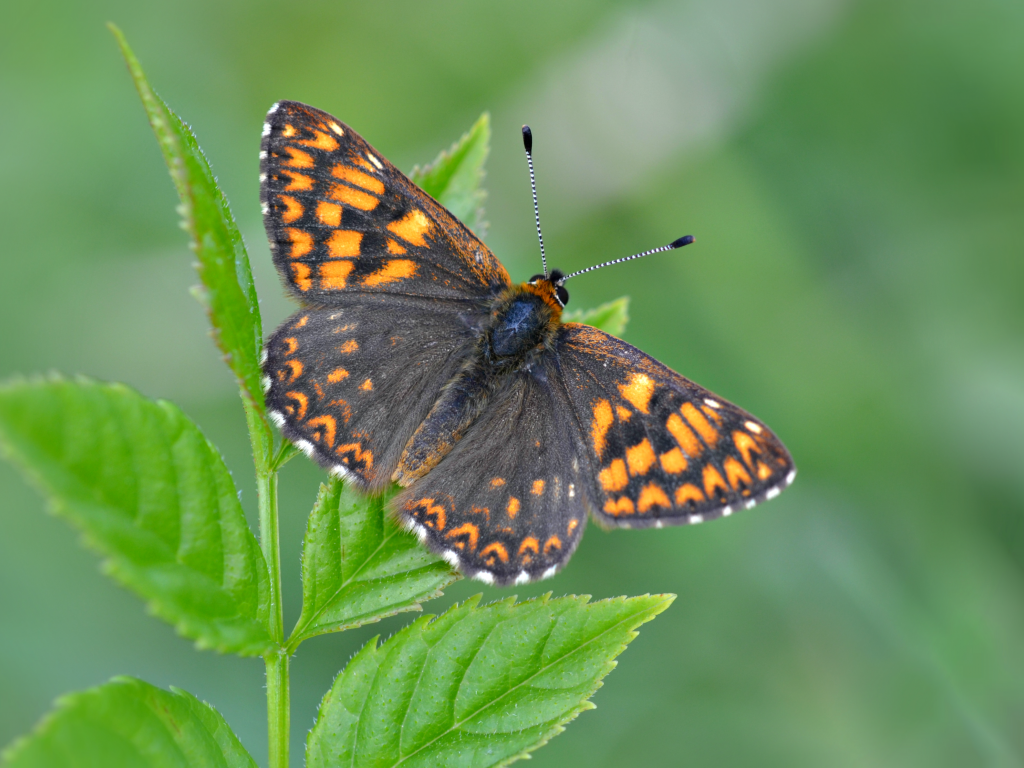
Duke of burgundy is usually seen in chalk and limestone grassland. The females are used to spend their time to fly down to the ground to find a comfort place to lay egg on. The wings of males are stronger orange than females which both are combination with black.
-
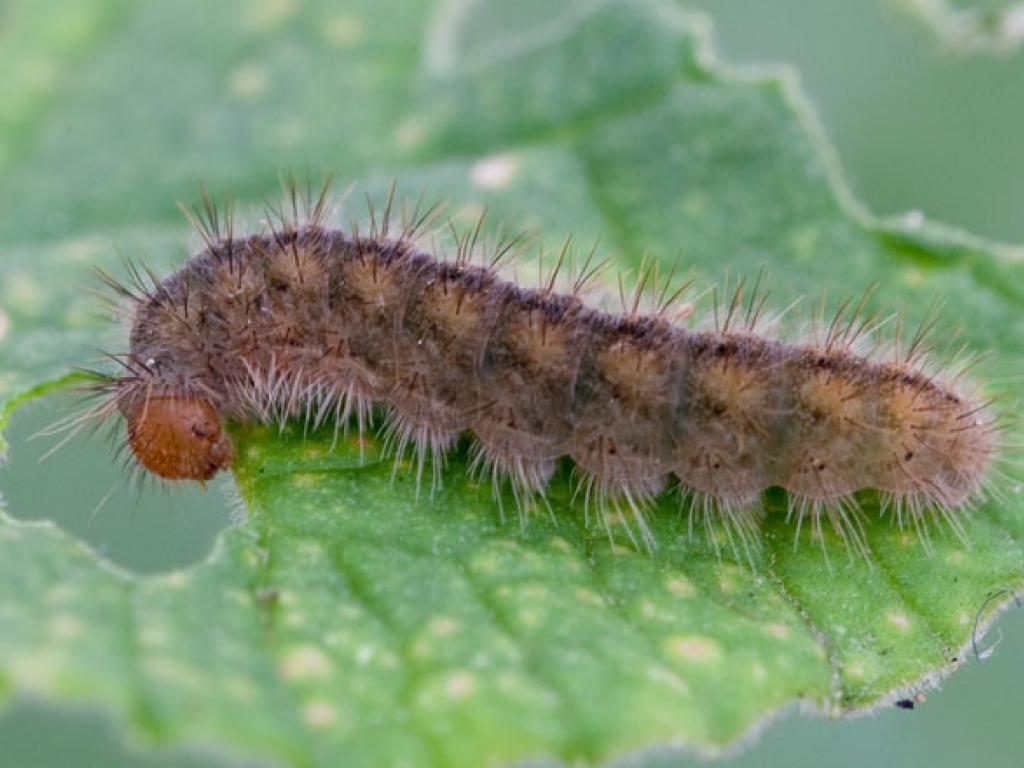
Duke of burgundy caterpillar -
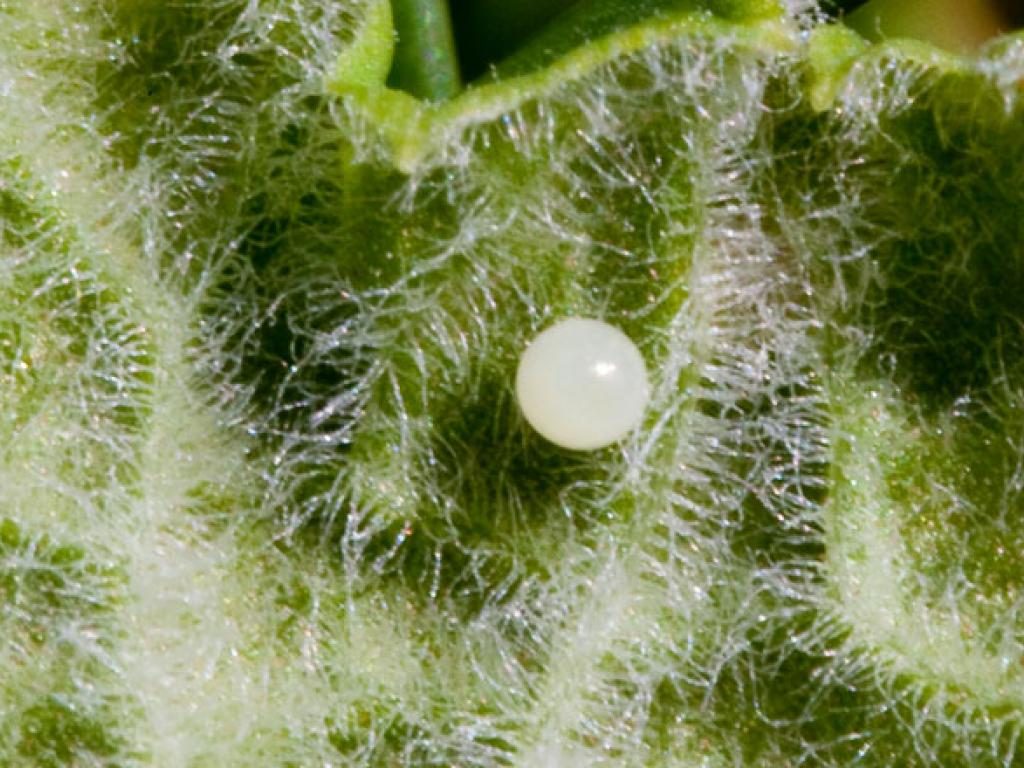
Duke of burgundy egg -
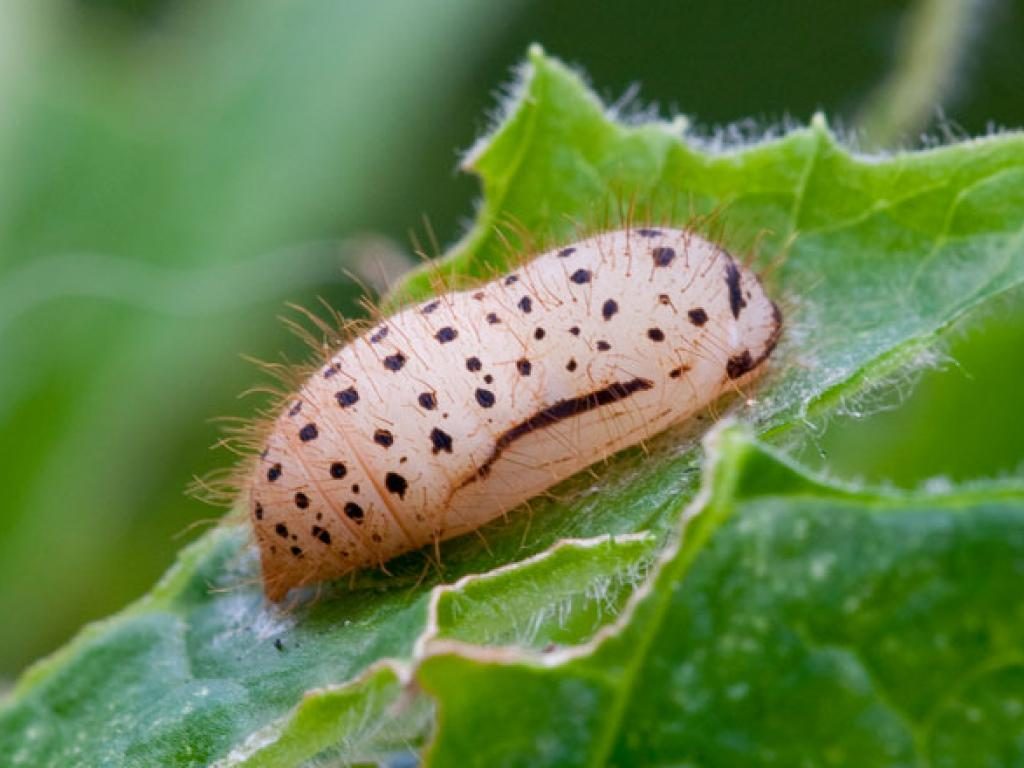
Duke of burgundy pupa -
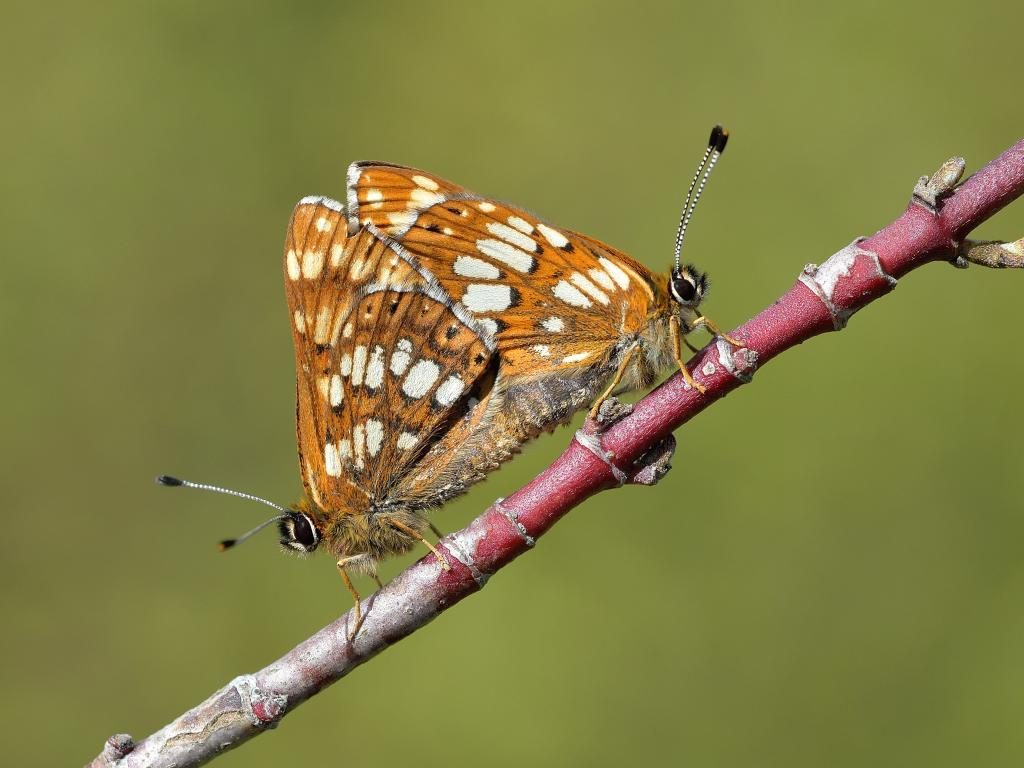
Duke of burgundy male and female -
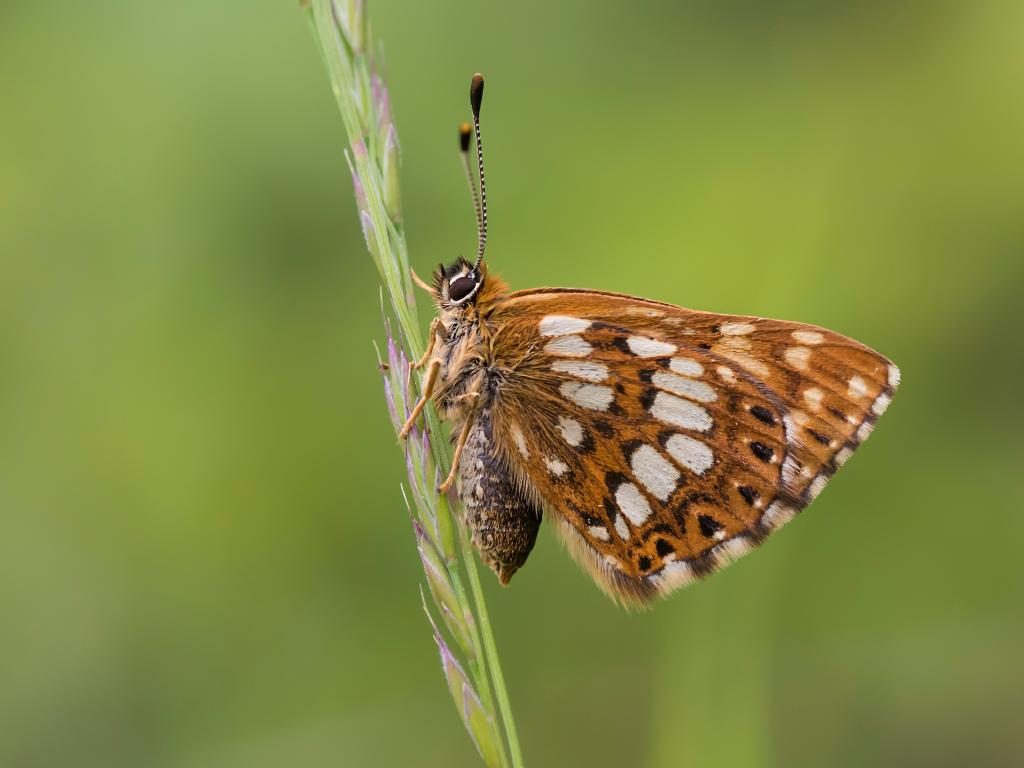
Duke of burgundy female underwing -
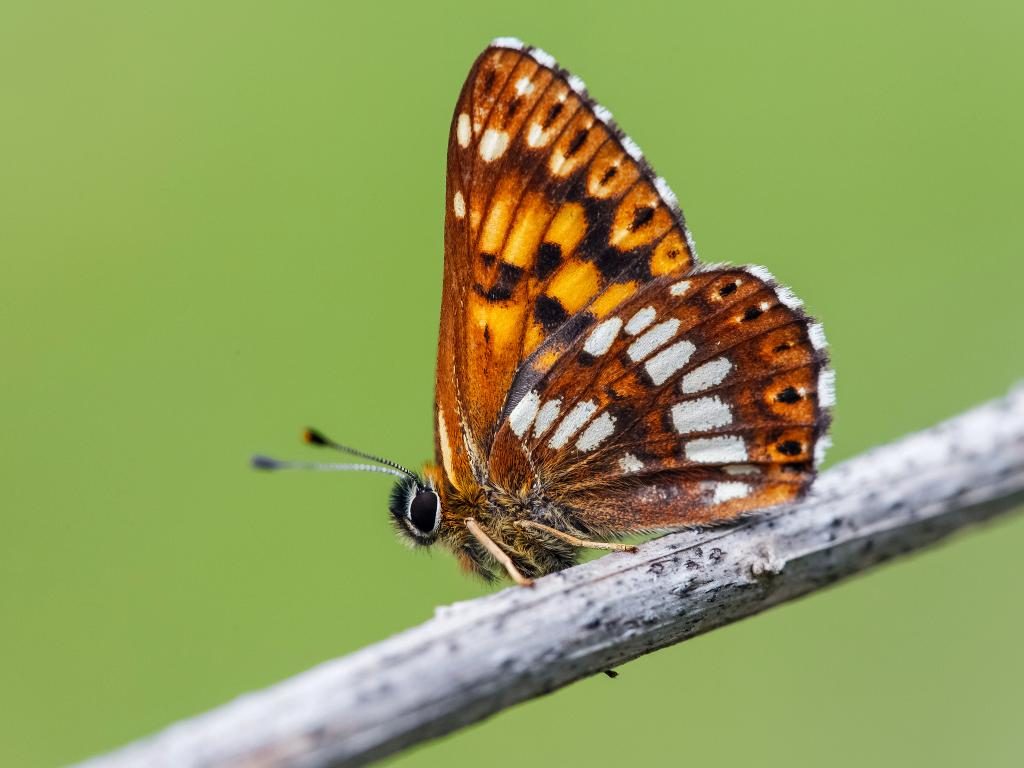
Duke of burgundy male underwing -
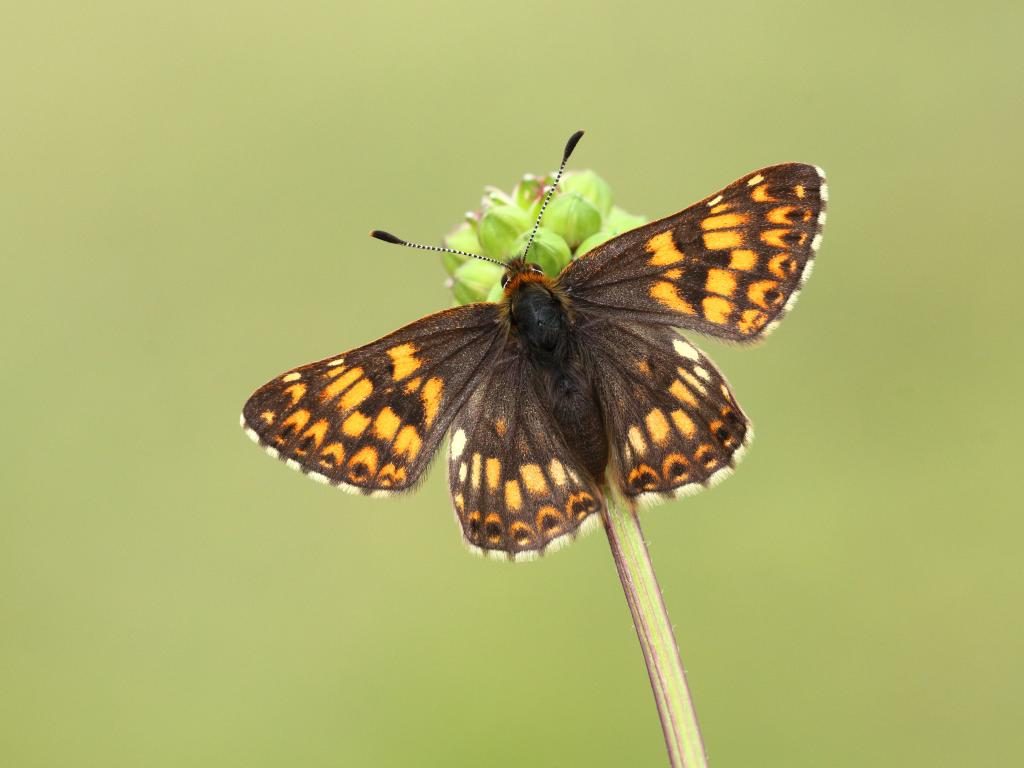
Duke of burgundy female upperwing
Size and family
- Family: Fritillaries, Duke of Burgundy
- Size: Small
- Wing Span Range (male to female): 29-32mm
Essex skipper
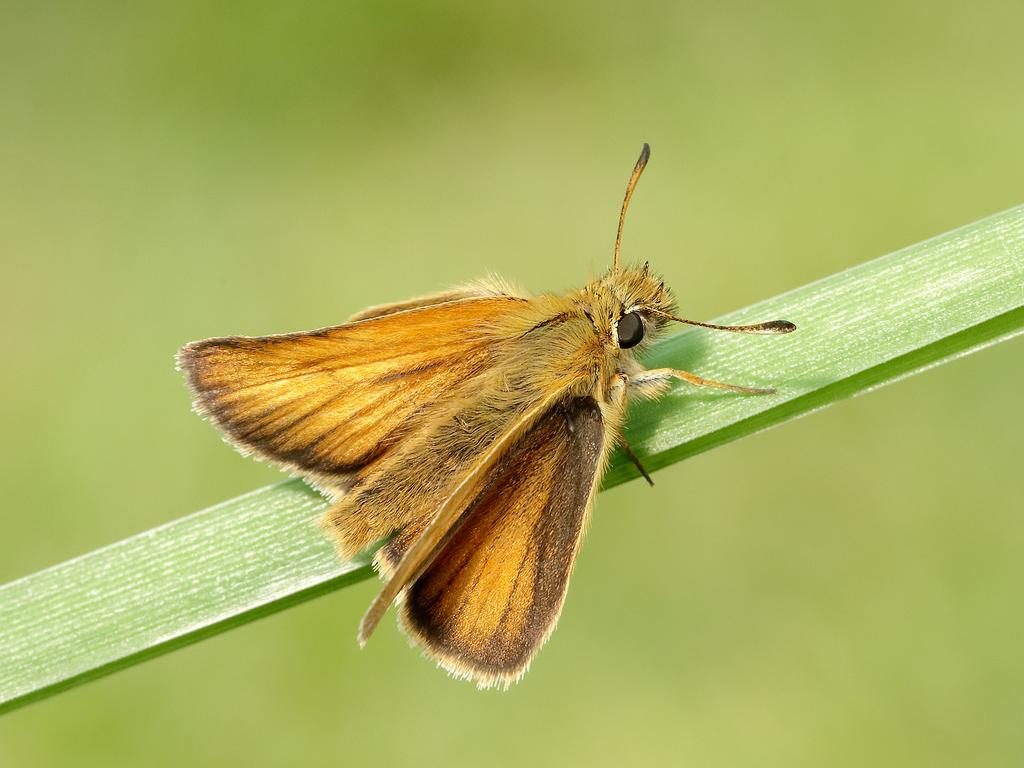
Essex skipper is small butterfly which its wings are orange with brown bordered and white edges. The males and females look so similar but different on their tips of antenna.
The males have orange on their tips antenna, while the females are black. Its habitat is grassy place.
-
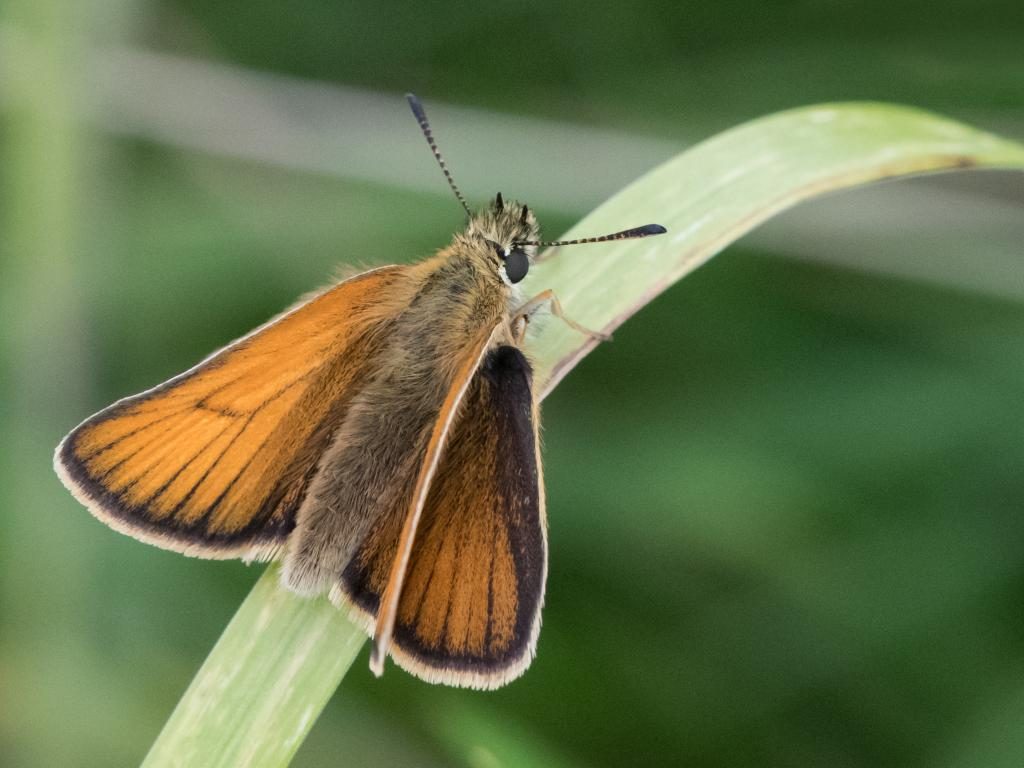
Essex skipper female upperwing -
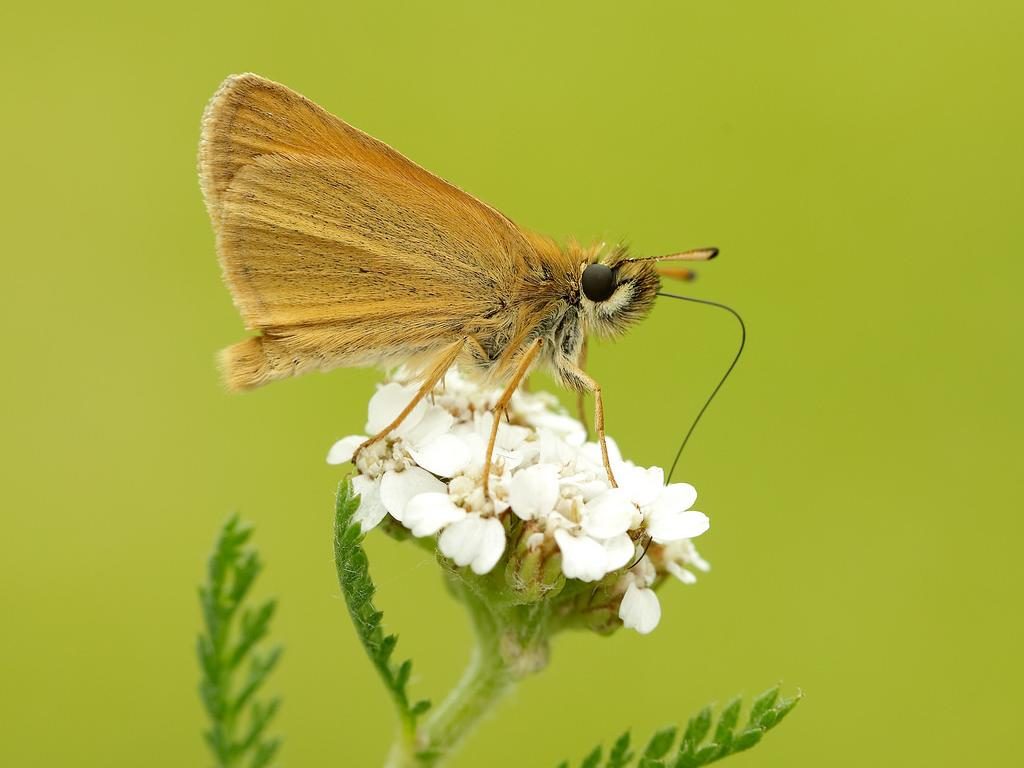
Essex skipper male underwing -
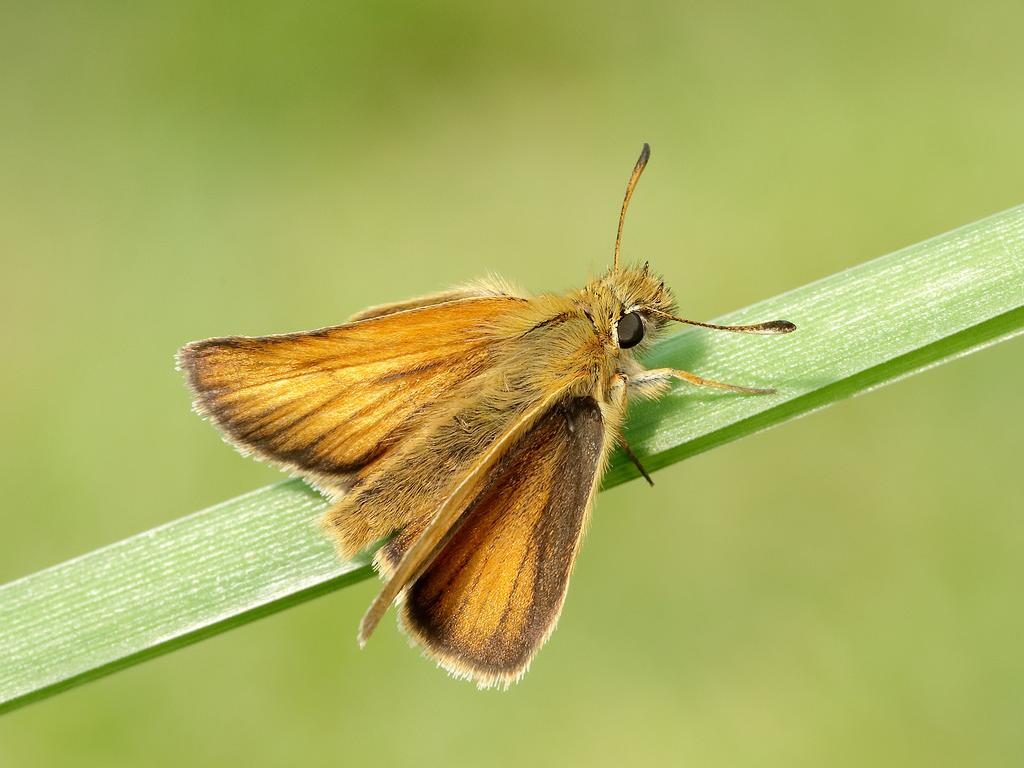
Essex skipper male upperwing -
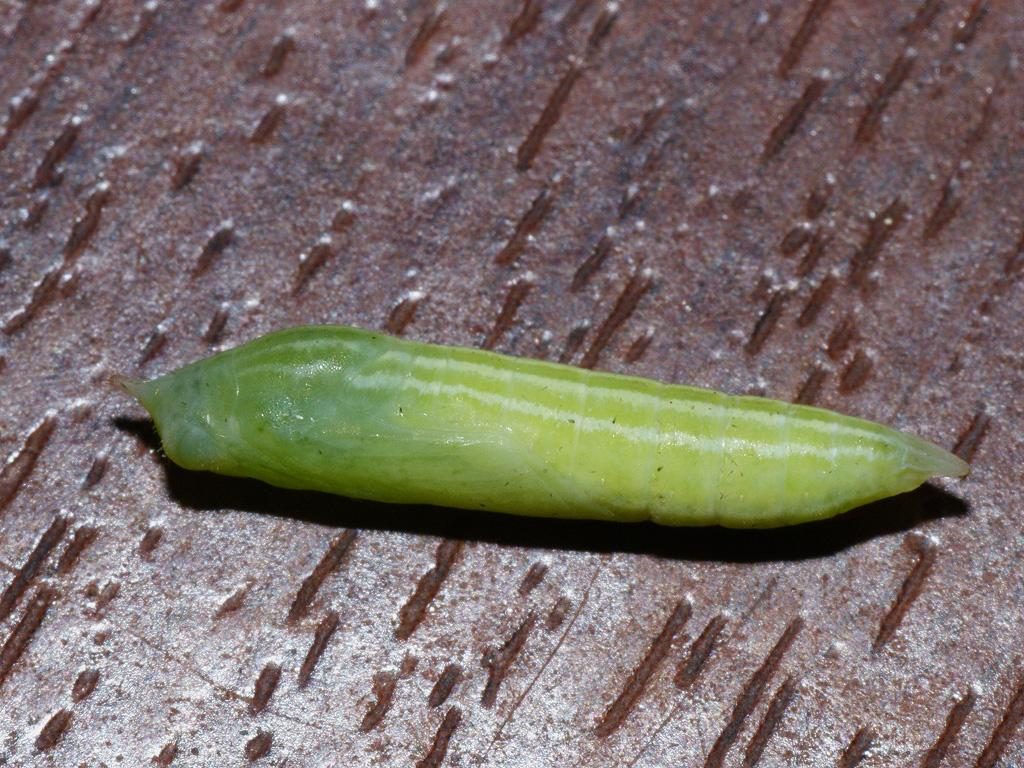
Essex skipper pupa -
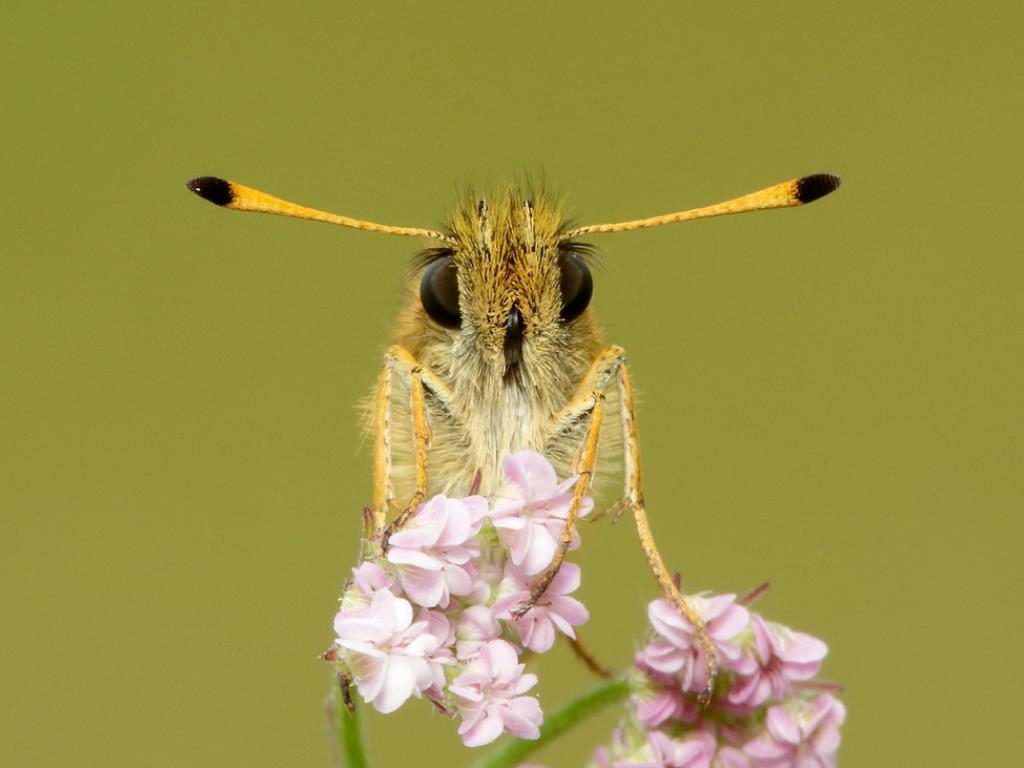
Essex skipper antenna
Size and family
- Family: Skippers
- Size: Small
- Wing Span Range (male to female) – 27-30mm
Gatekeeper
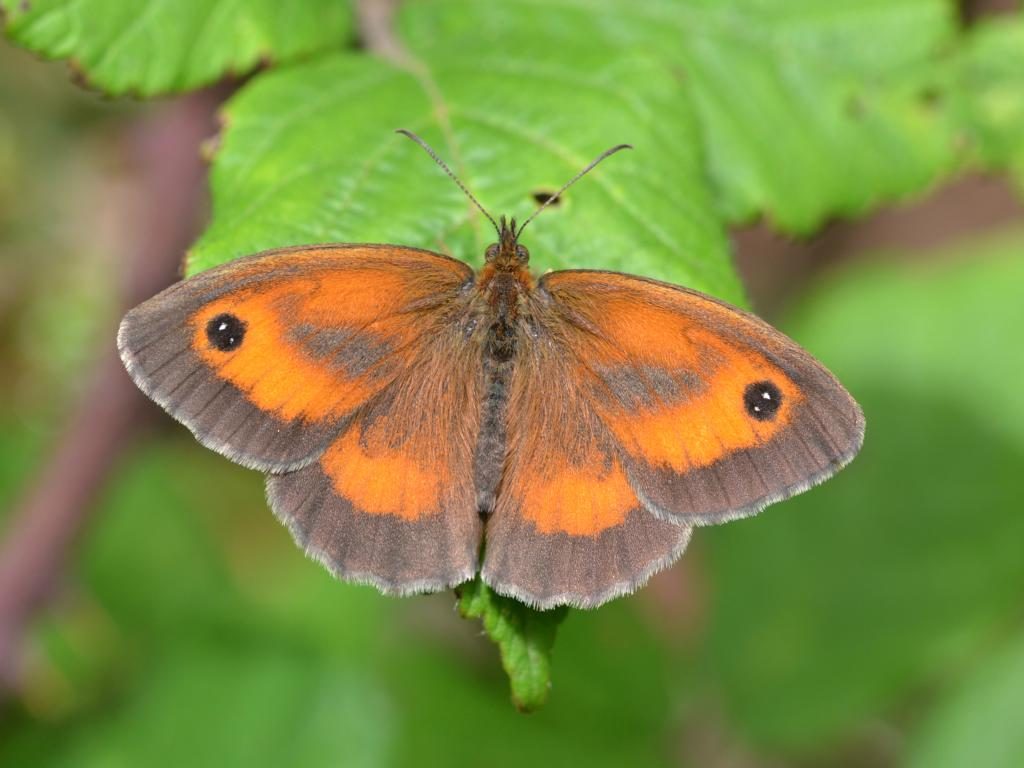
Gatekeeper is also called as hedge brown. This butterfly usually perches on the flowers grow in gateways and hedgerows.
The wings color are orange which bordered by brown, and two black spot with very small white sport in its spot center.
Size and family
- Family: Browns
- Size: Medium
- Wing Span Range (male to female): 40-47mm
Glanville fritillary
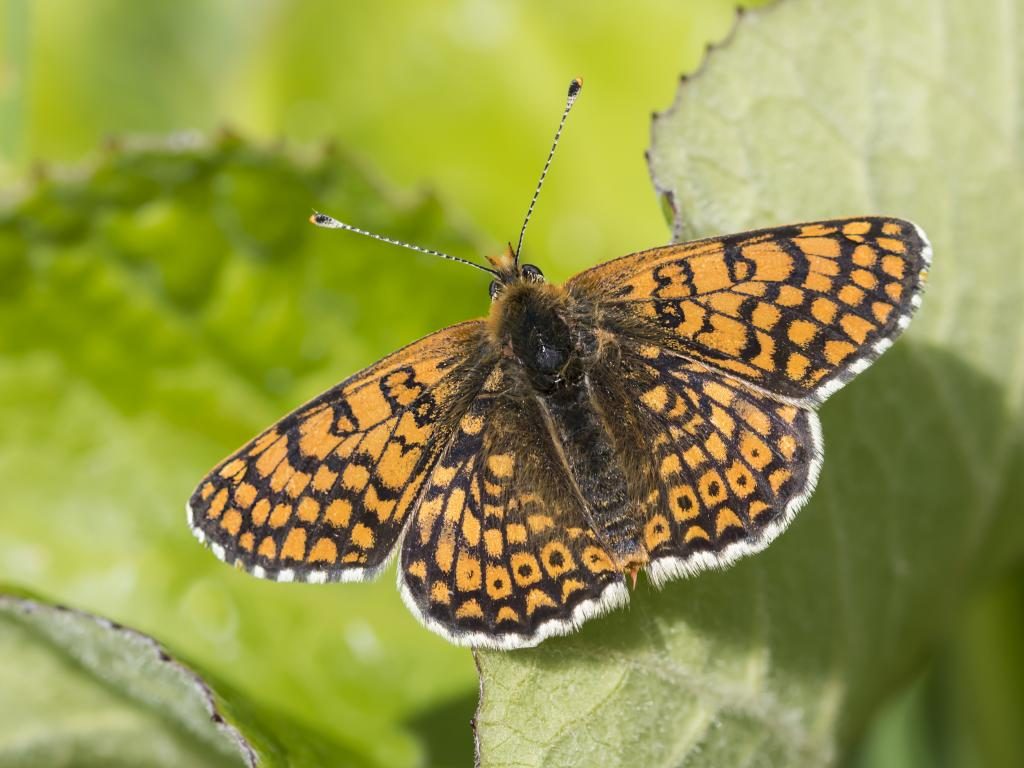
Glanville fritillary is beautiful butterfly which its wings colors are combining of orange, and black. They have unique pattern with black spots and black lines. It habitats are coastal grasslands and chalk down land where is mainly found in England.
Size and family
- Family: Fritllaries
- Size: Small/Medium
- Wing Span Range (male to female): 41-47mm
Green hairstreak
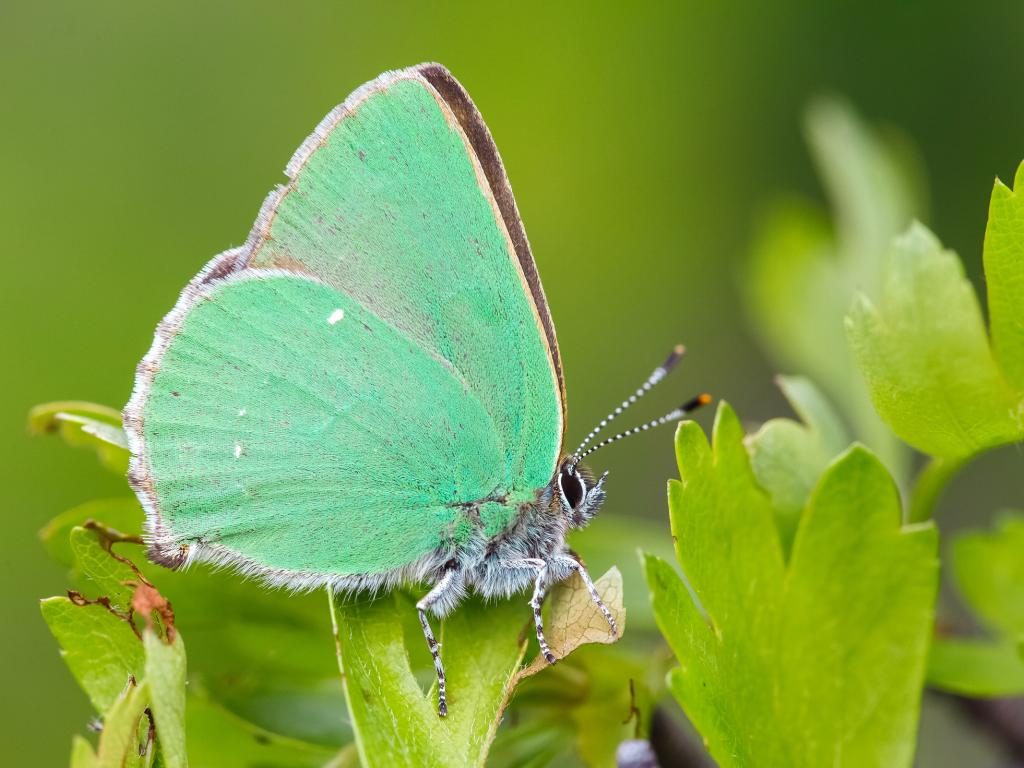
Green hairstreak is used to keep its wings closed when it perched on. This butterfly has white streaks on its antenna. The wings are green with thin veins and black edges.
It mainly can be seen on May until June. Its habitats are chalk grassland, woodland, heath land, moorland, bogs, scrub, and others.
Size and family
- Family: Hairstreaks
- Size: Small
- Wing Span Range (male to female): 33mm
Green-veined white
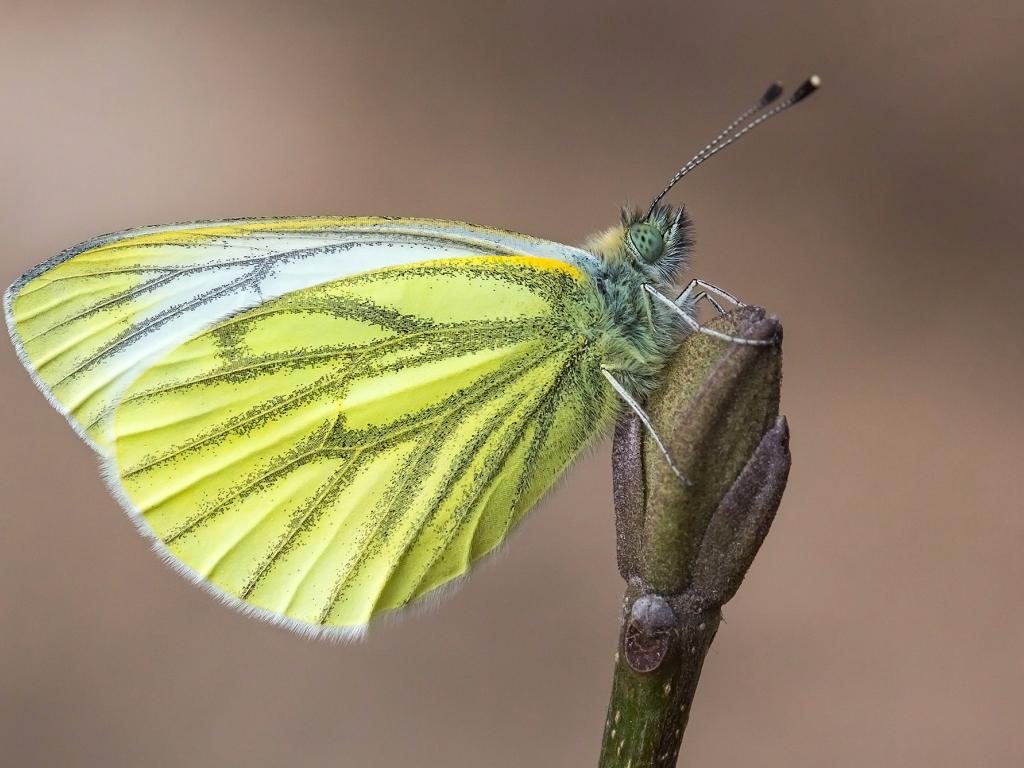
Green veined white is commonly seen in the damp place where provided of food. It is mainly found in England, Scotland, Wales, and Ireland. Its upper wings are white with black rows, while its under wings are green with veins.
-
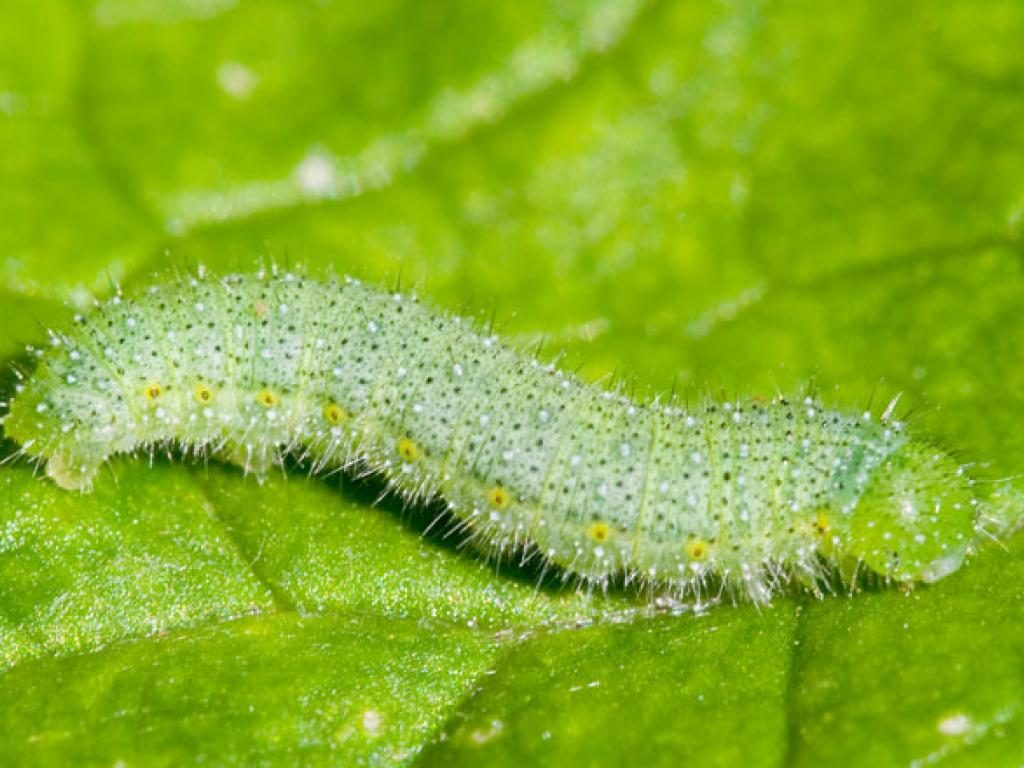
Green-veined white caterpillar -
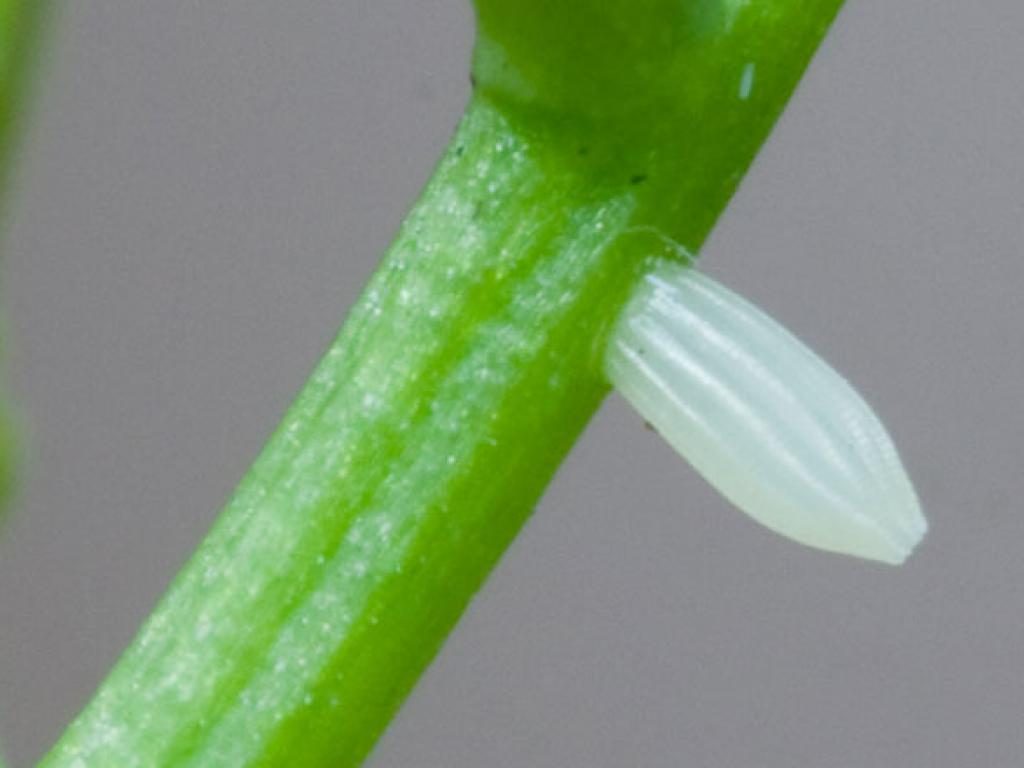
Green-veined white egg -
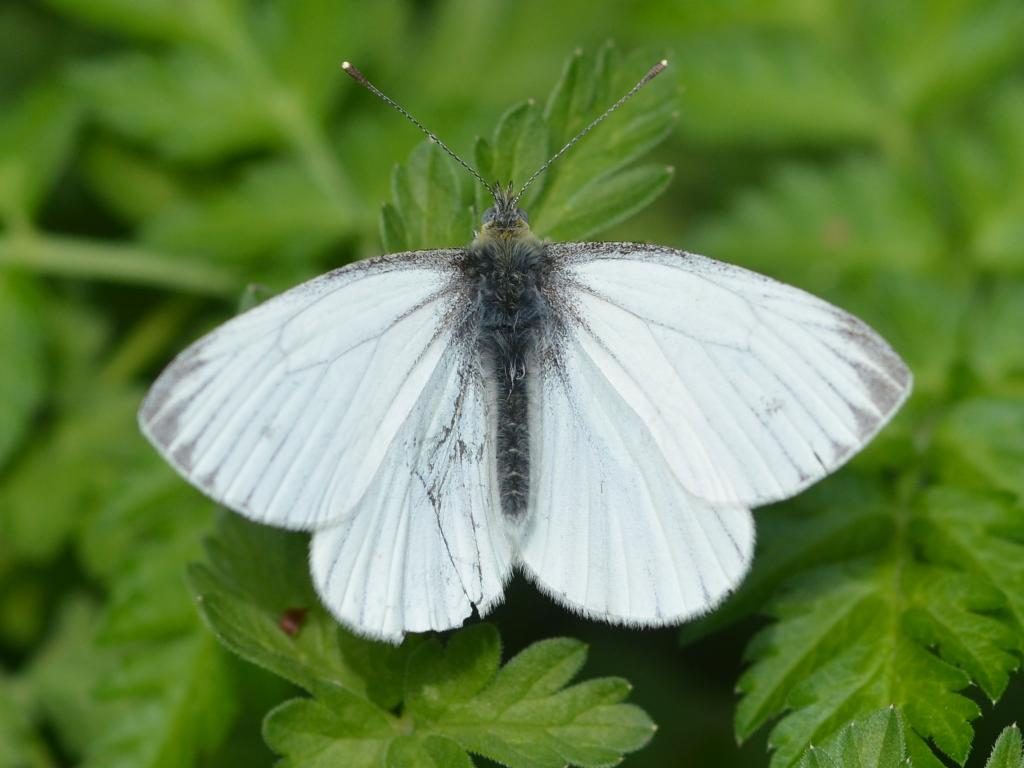
Green-veined white male spring brood -
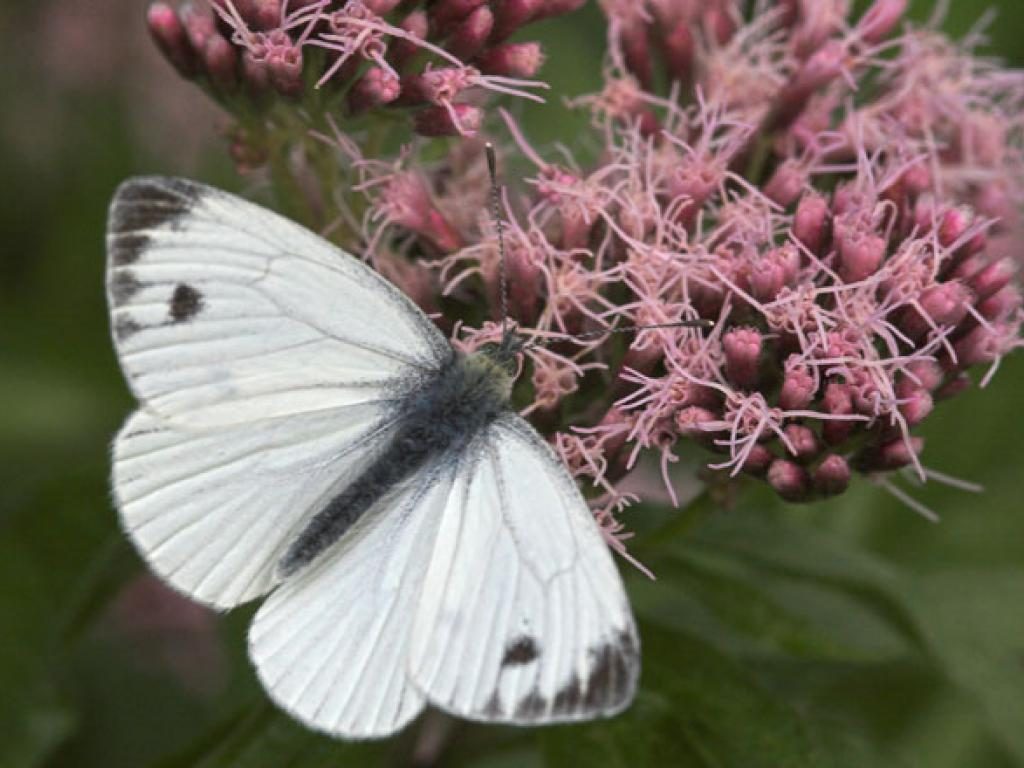
Green-veined white male summer brood
Size and family
- Family: Whites and yellows
- Size: Medium
- Wing Span Range (male to female): 50mm
Grizzled skipper
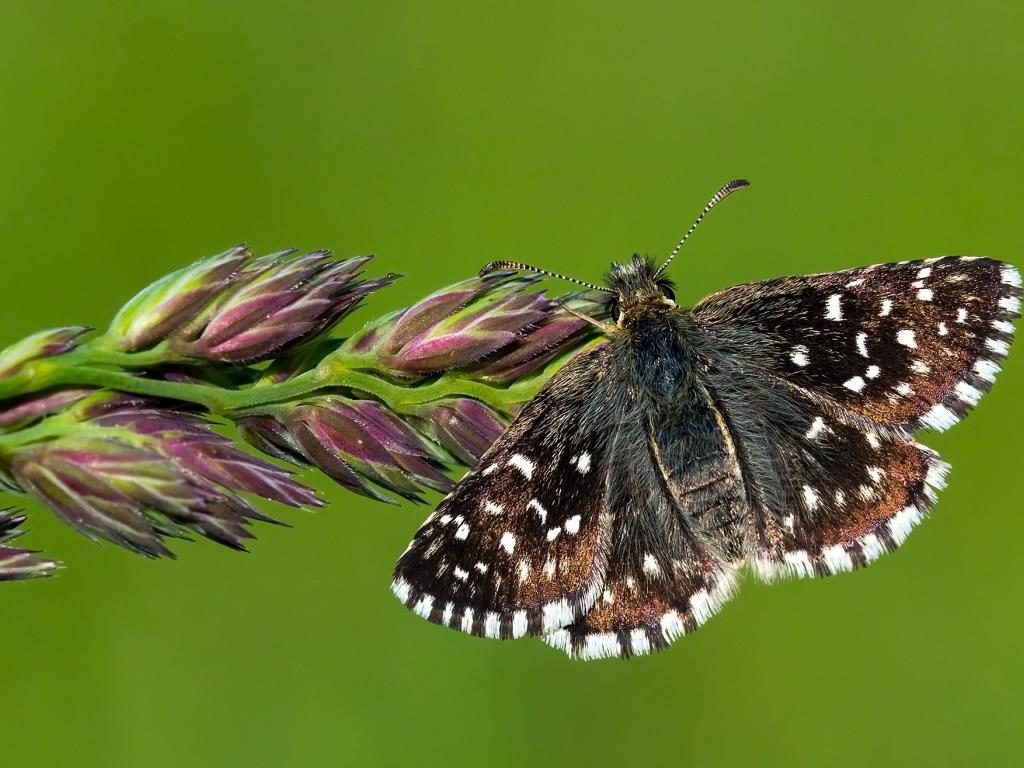
This type of butterflies has small size that commonly found in chalk down land in England and Wales. Grizzled skipper’s wings are dark brown to black, white spots and rows on the white edges.
Size and family
- Family: Skippers
- Size: Small
- Wing Span Range (male to female): 27mm
Heath fritillary
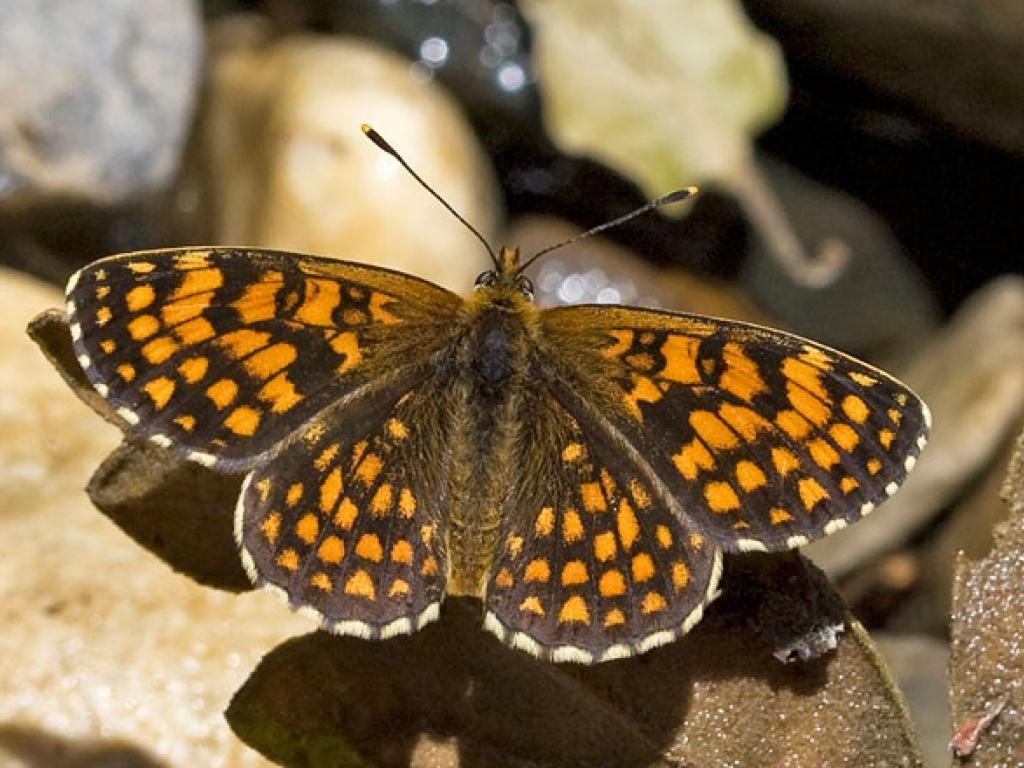
Heath fritillary prefers to warm, sunshine, and sheltered places. Its upper wings are dark brown and orange, with a well pattern, and white edges. Commonly found in England.
Size and family
- Family: Fritillaries
- Size: Small/Medium
- Wing Span Range (male to female): 47-50mm
High brown fritillary
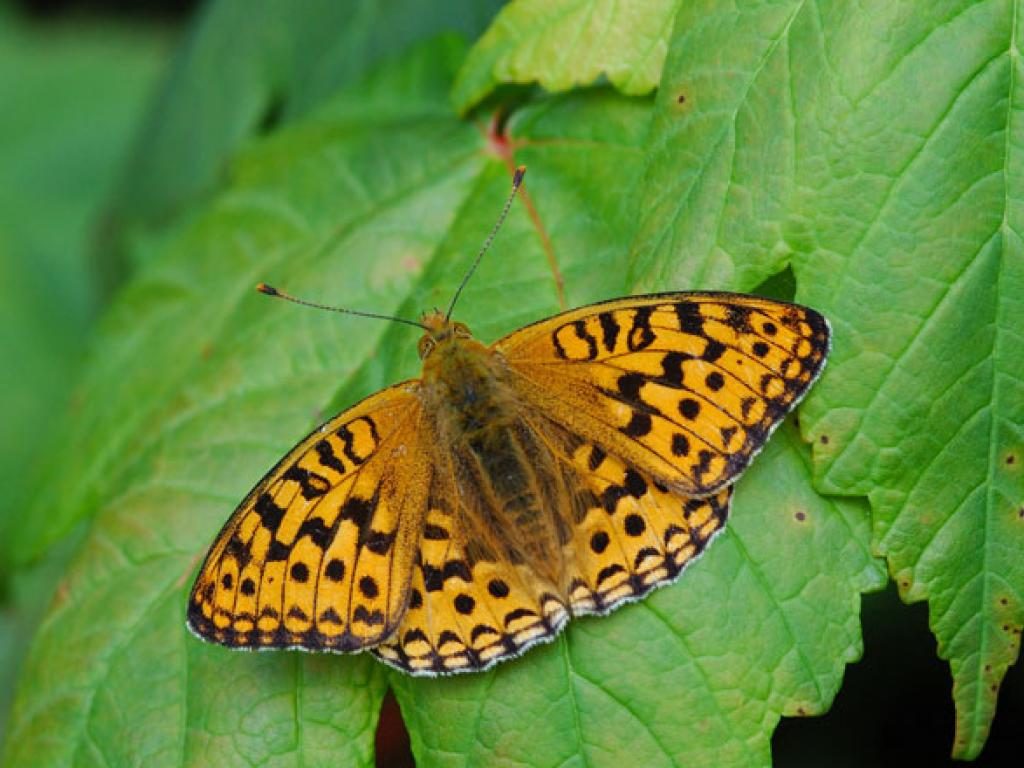
This butterfly has orange upper wings with black patterns and black line through to the edges. The under wings are bright brown with brown veins and white spots. High brown fritillary is used to perch on the flowers such as thistles and bramble.
Size and family
- Family: Fritillaries
- Size: Large
- Wing Span Range (male to female): 60-67mm
Holly blue
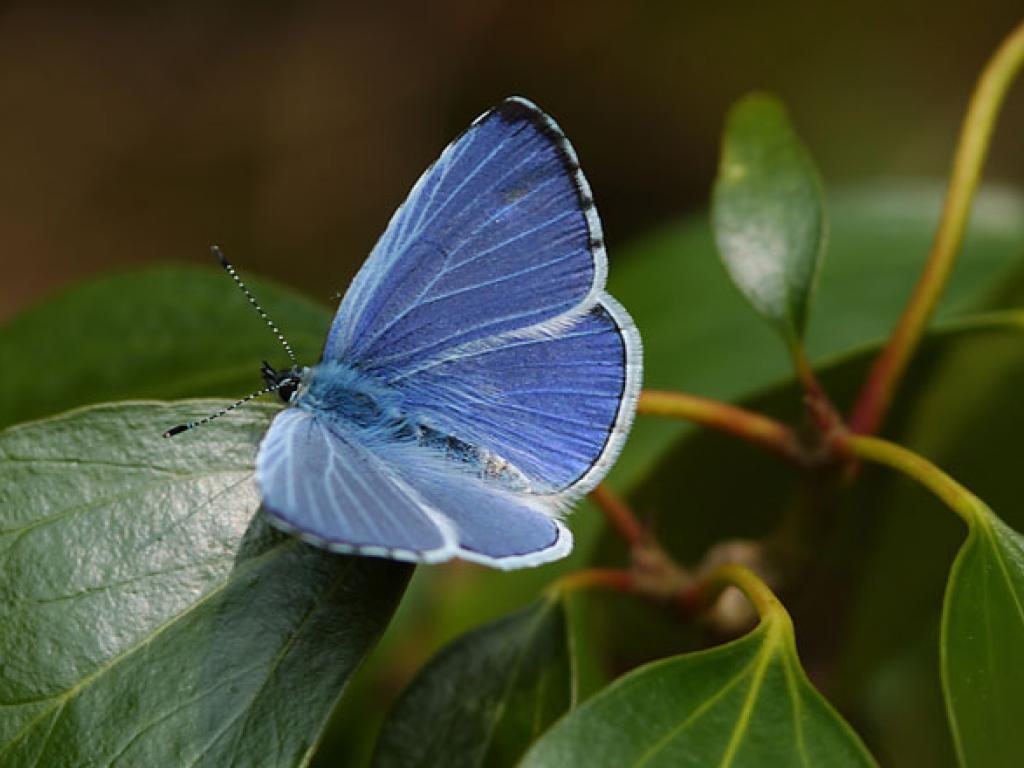
Holly blue has bright blue wings with white rows. The males are white fringes, while females are black fringes.
It is commonly found in the gardens when spring and summer. This butterfly is widespread in England, Scotland, Wales, and Ireland.
Size and family
- Family: Blues
- Size: Small
- Wing Span Range (male to female): 35mm
Large blue
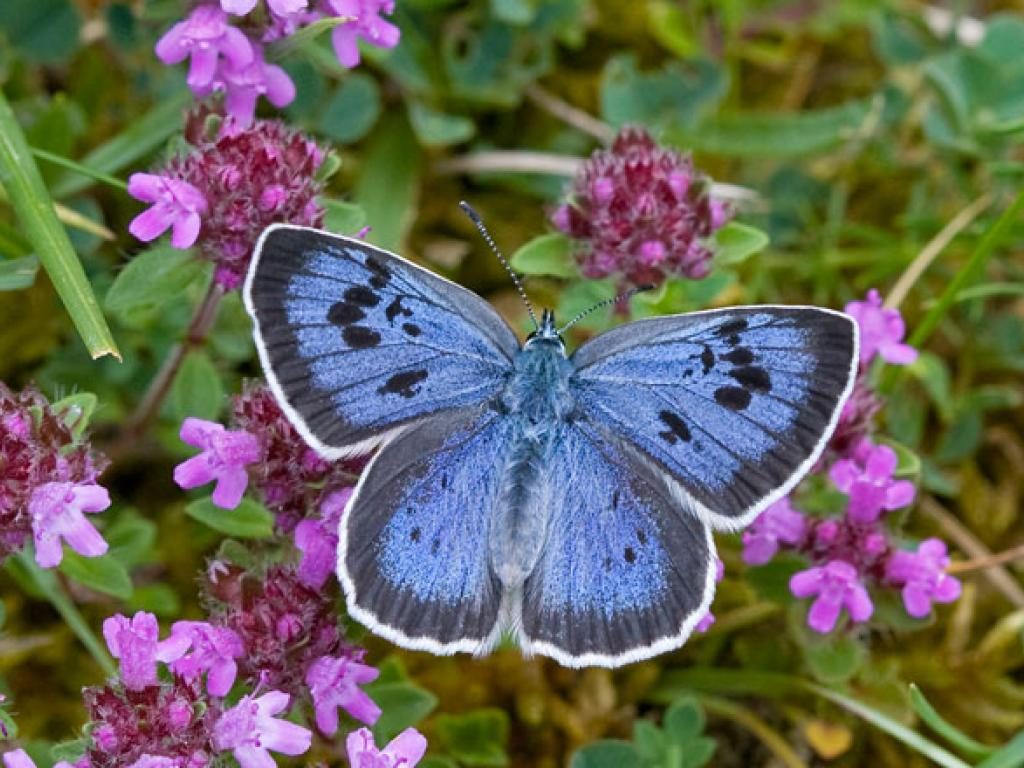
This large butterfly’s upper wings are blue, black bordered, black mark, and white edges. While under wings are blue and brown, black spots, and white edges.
Large blue is only found in England, exactly in acidic coastal grassland or limestone grassland.
Size and family
- Family: Blues
- Size: Small/Medium
- Wing Span Range (male to female): 38-44mm
Large heath
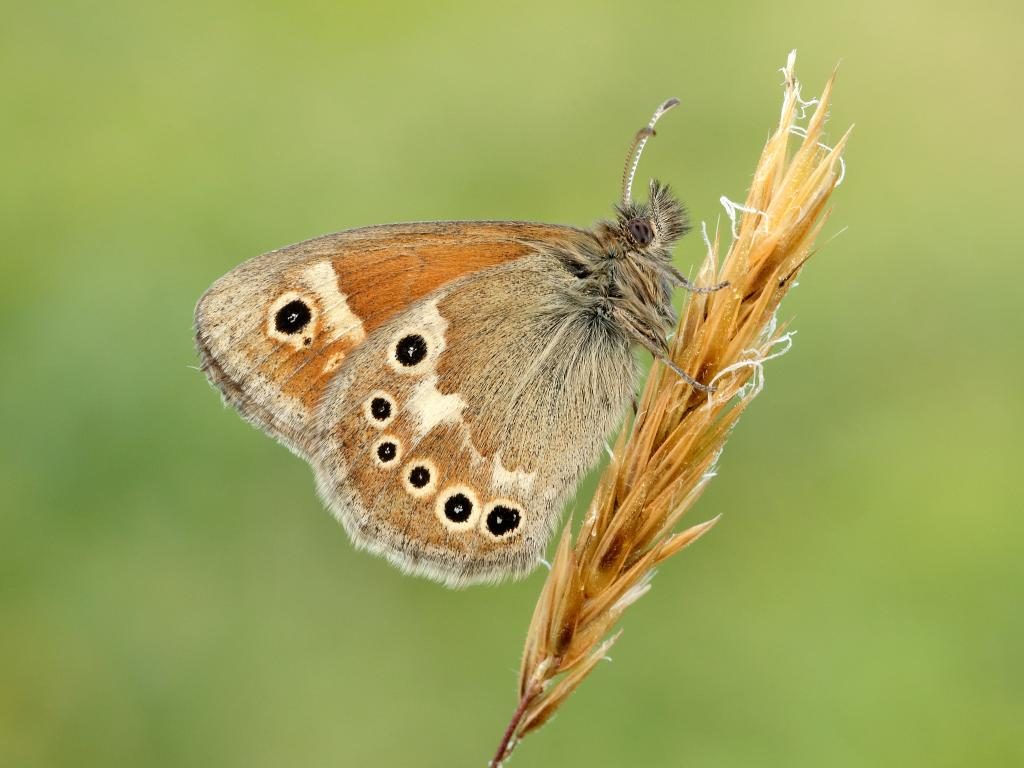
Large heath usually keeps its wings closed when it perches. Its wings are brown with large black spots. This butterfly is mainly distributed in northern Britain and Ireland.
-
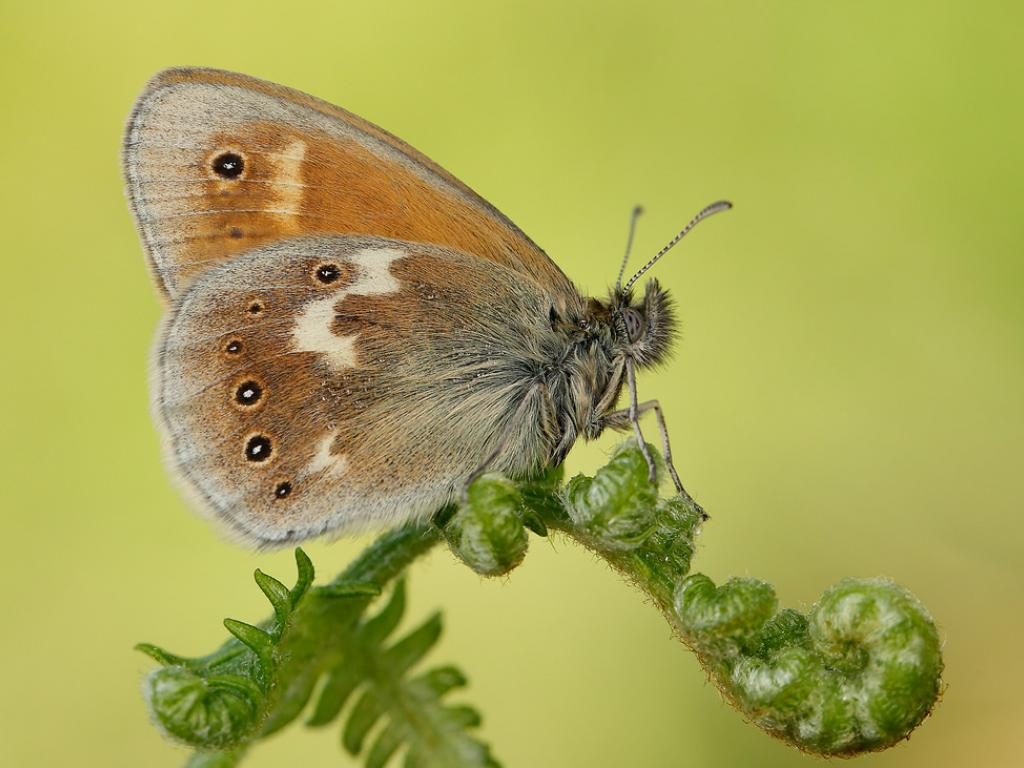
Large heath ssp polydama underwing -
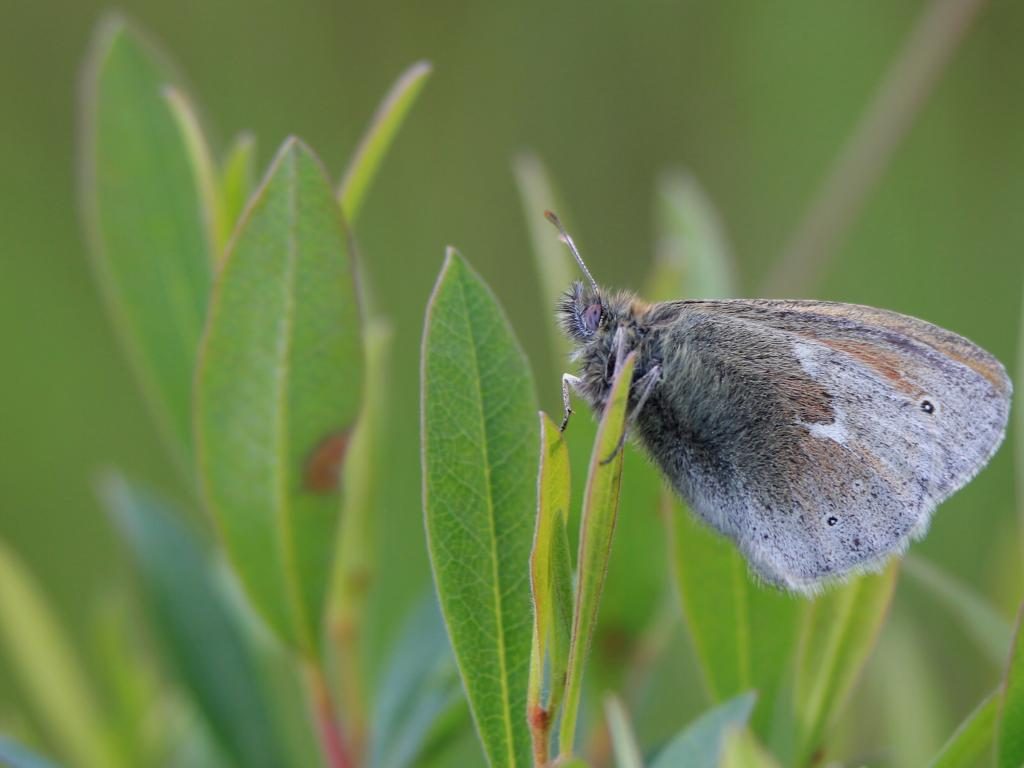
Large heath ssp scotica underwing
Size and family
- Family: Browns
- Size: Small/Medium
- Wing Span Range (male to female): 41mm
Large skipper
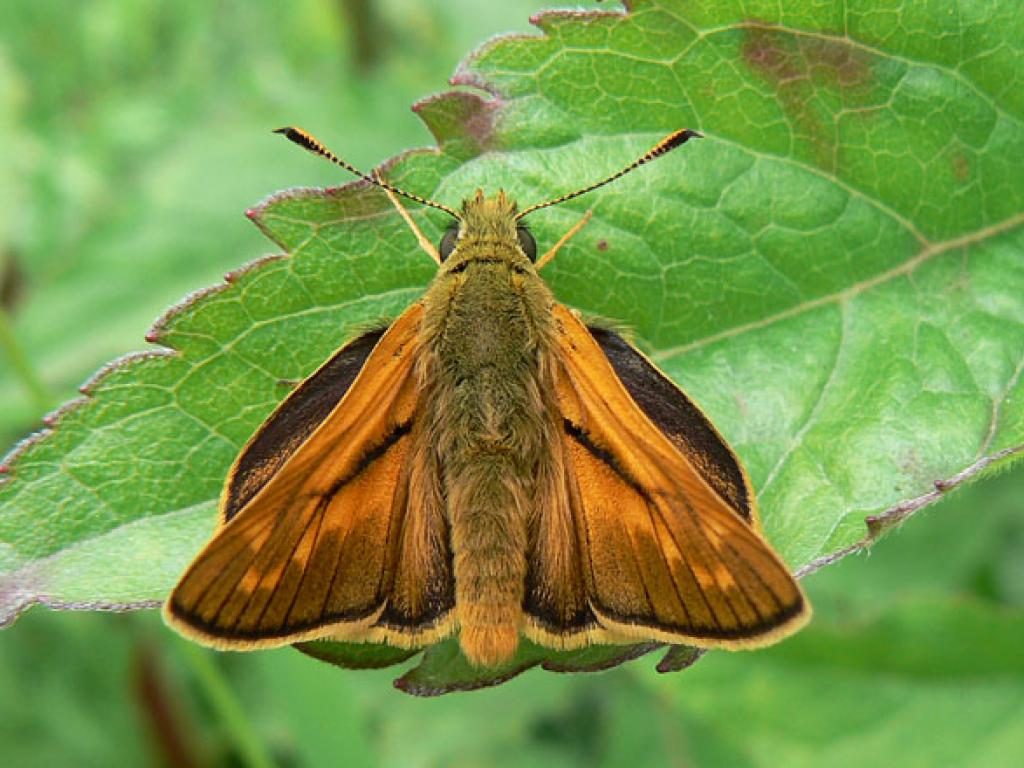
This small butterfly is widespread in England and Britain. The males usually perch and feed on the flowers in a sunny place. The upper wings are orange and brown with black veins, while under wings are orange and green with thin line.
Size and family
- Family: Skippers
- Size: Small
- Wing Span Range (male to female): 33-35mm
Large white
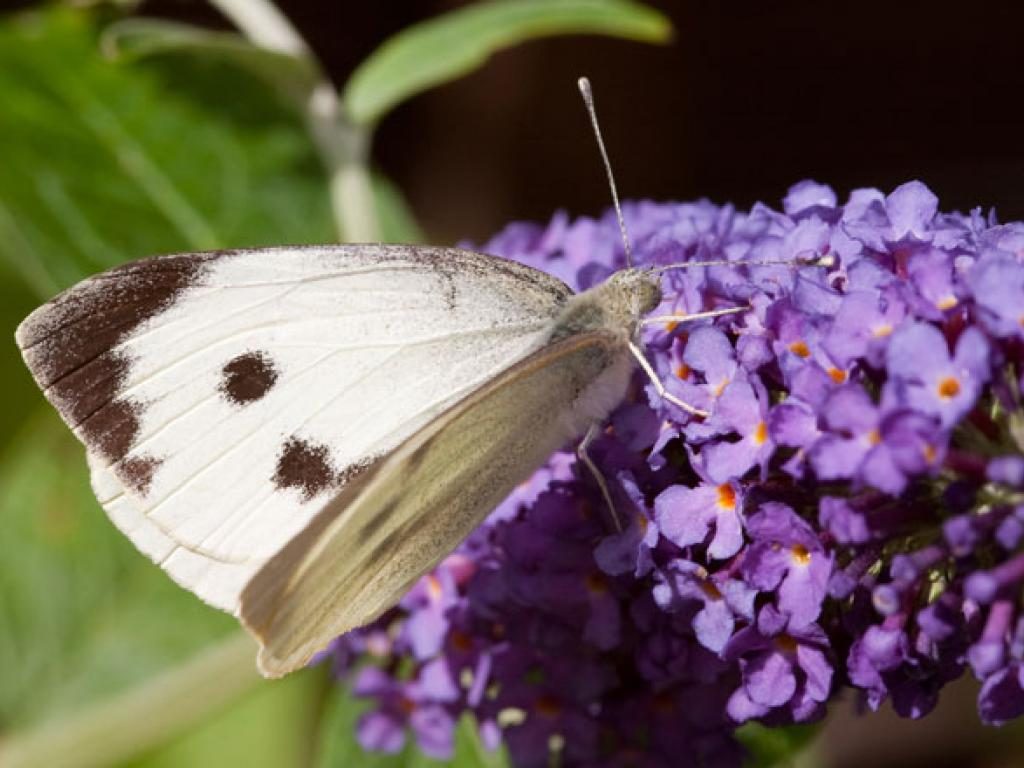
The upper wings of Large white are white with black tips, and the under wings are creamy white with white veins.
The females have two black spot on their wings, while the males have not. This butterfly is commonly found in the garden and allotments.
Size and family
- Family: Whites and yellows
- Size: Large
- Wing Span Range (male to female): 63-70mm
Lulworth skipper
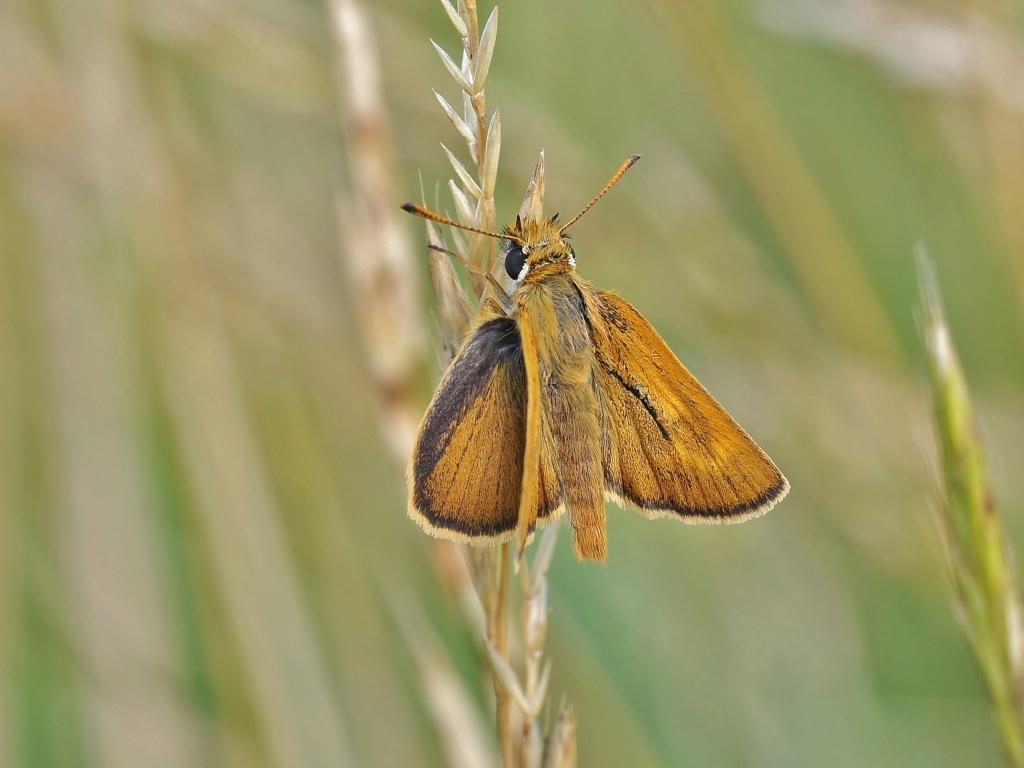
This butterfly species was recovered since 1832 on the village of Lulworth. The females of Lulworth skipper can be identified by their orange mark on the forewings. Its habitats are in chalk grassland and mainly found in England.
Size and family
- Family: Skippers
- Size: Small
- Wing Span Range (male to female): 25-27mm
Marbled white
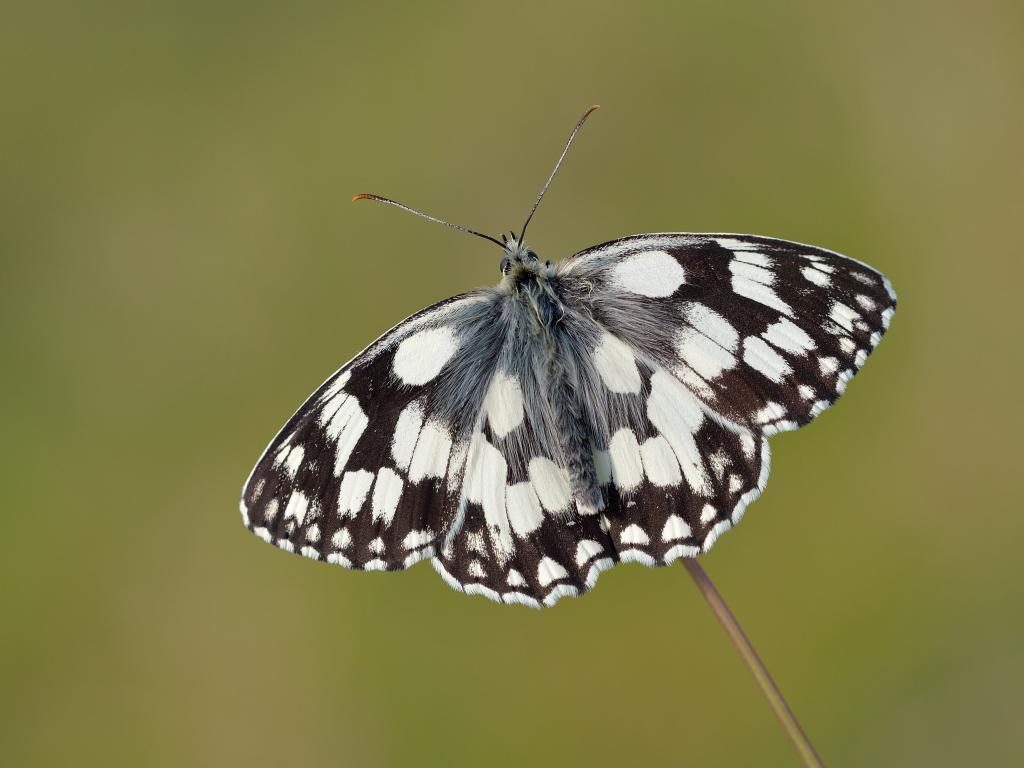
Marbled white is widely found in southern Britain and Yorkshire Wales. This species prefers to feed on the purple flowers such as wild marjoram, field Scabious, thistles, and knapweeds.
The upper wings are black with white pattern, and the under wings are dominantly white with black spots and black rows.
Size and family
- Family: Browns
- Size: Medium
- Wing Span Range (male to female): 53-58mm
Marsh fritillary
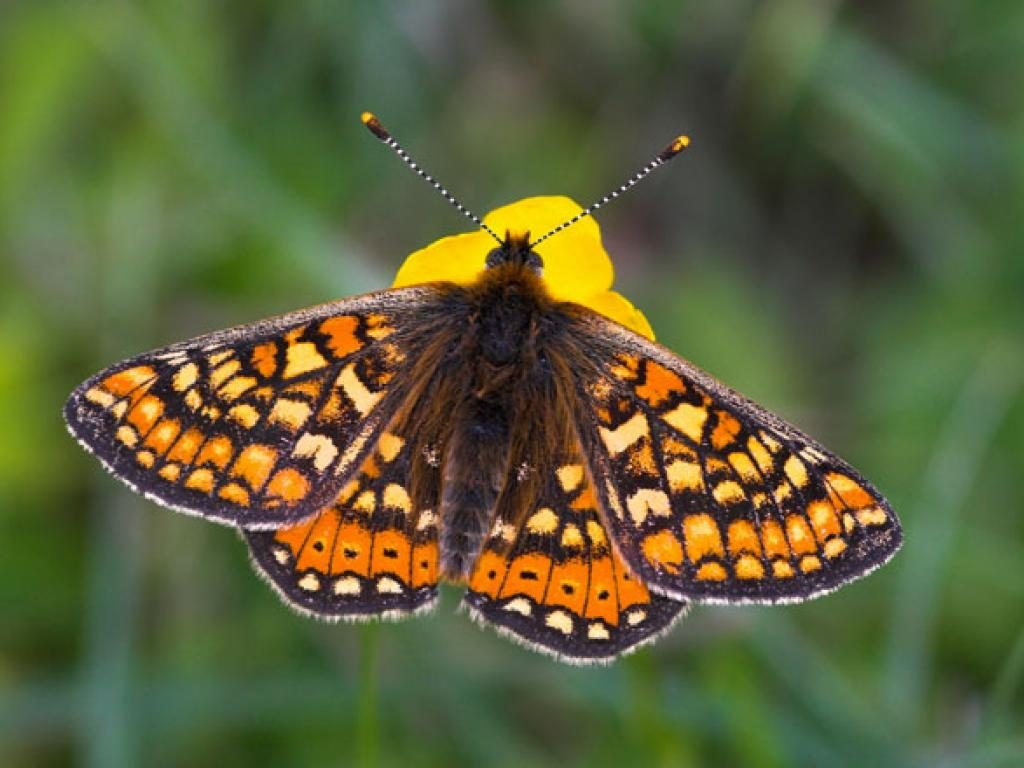
The wings have more pattern with bright colors such as yellow, orange and brown. Marsh fritillary’s habitats are damp grassland and chalk grasslands, and it is distributed in England, Scotland, Wales, and Ireland.
Size and family
- Family: Fritillaries
- Size: Medium
- Wing Span Range (male to female) – 42-48mm
Meadow brown
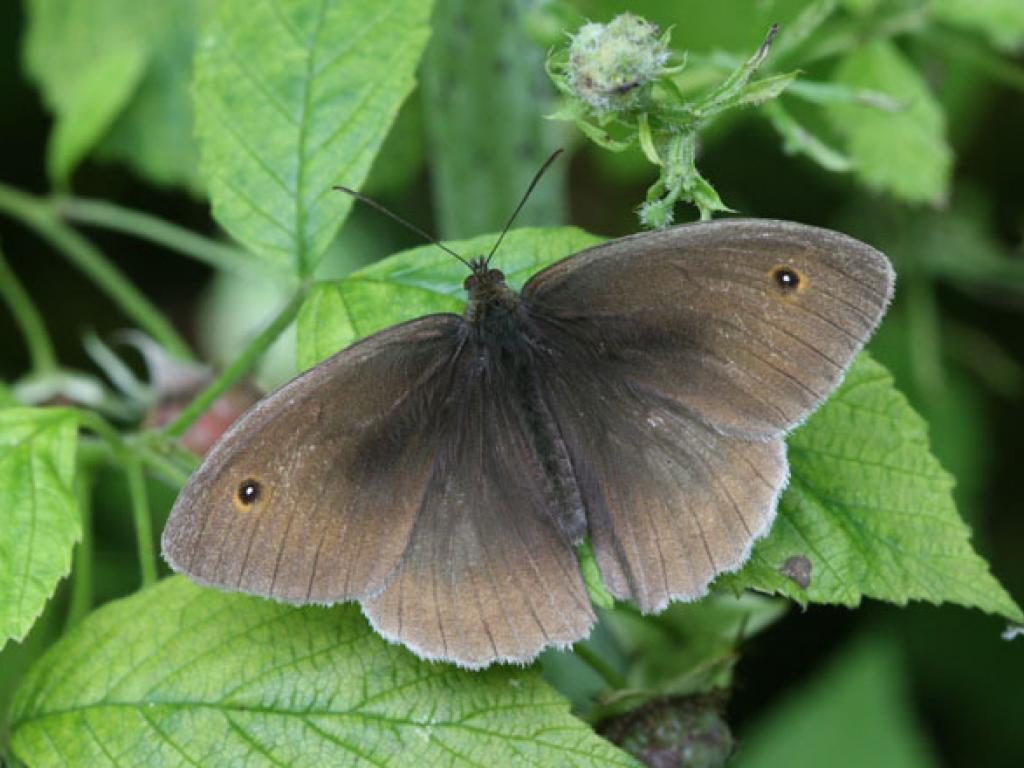
Meadow brown is one of abundant butterfly species which is frequently seen flying together in a large numbers. Its wings are brown with orange tip, and two black eyespots. This widely found in Britain and Ireland.
-
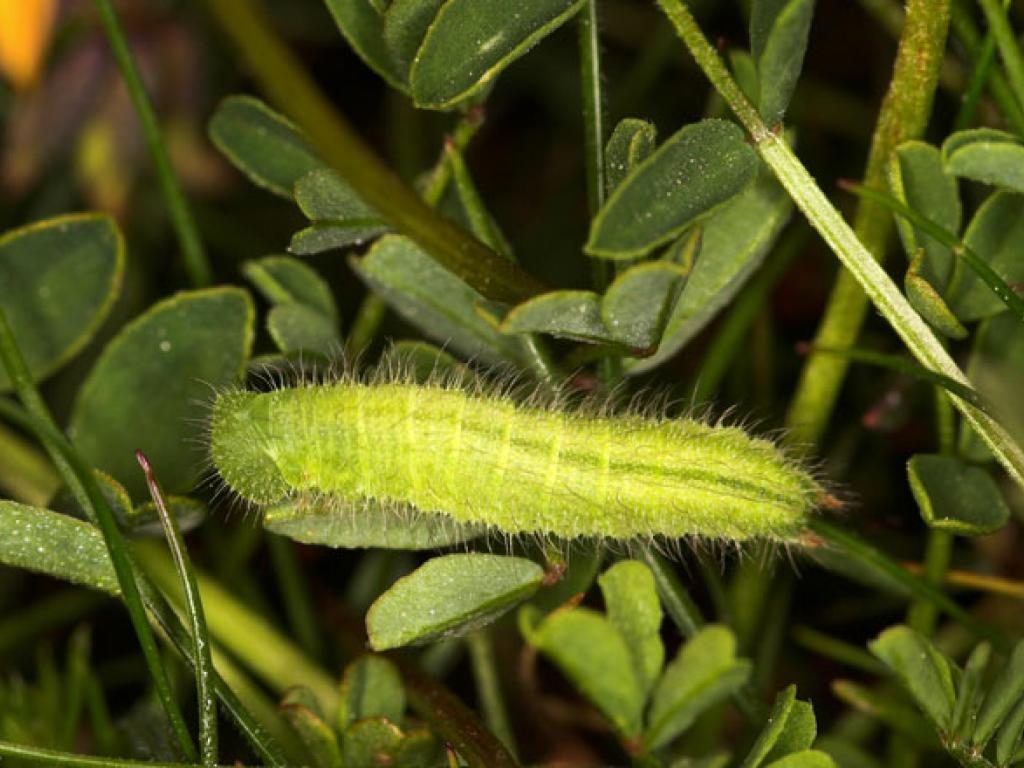
Meadow brown caterpillar -
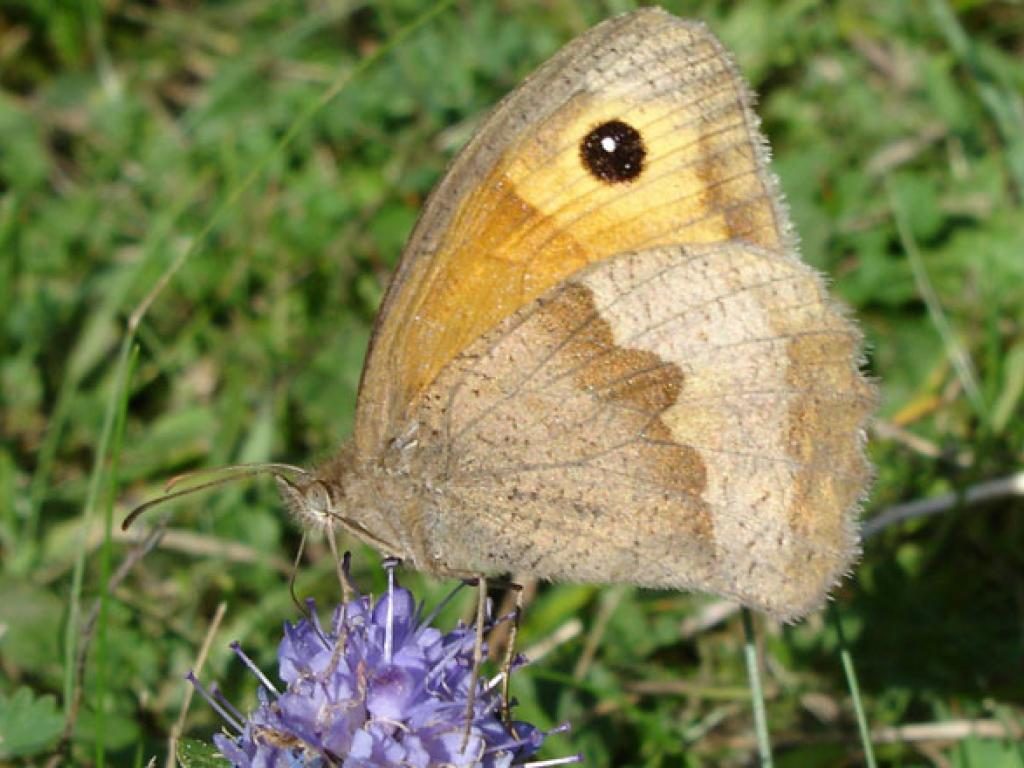
Meadow brown female underwing -
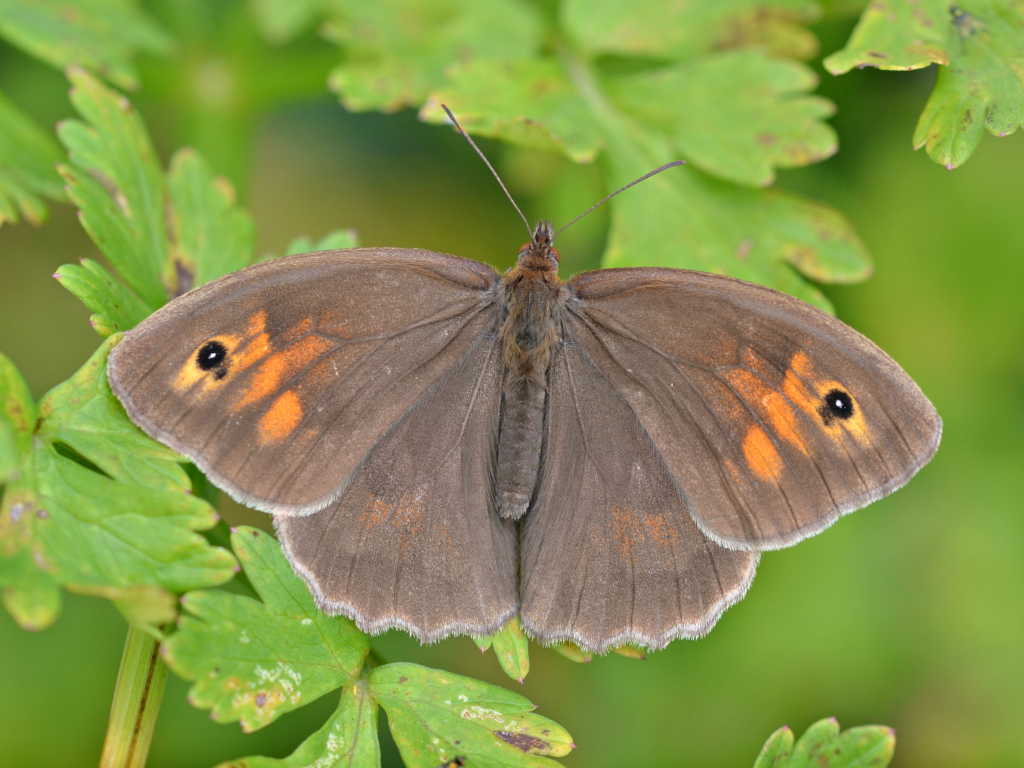
Meadow brown female upperwing -
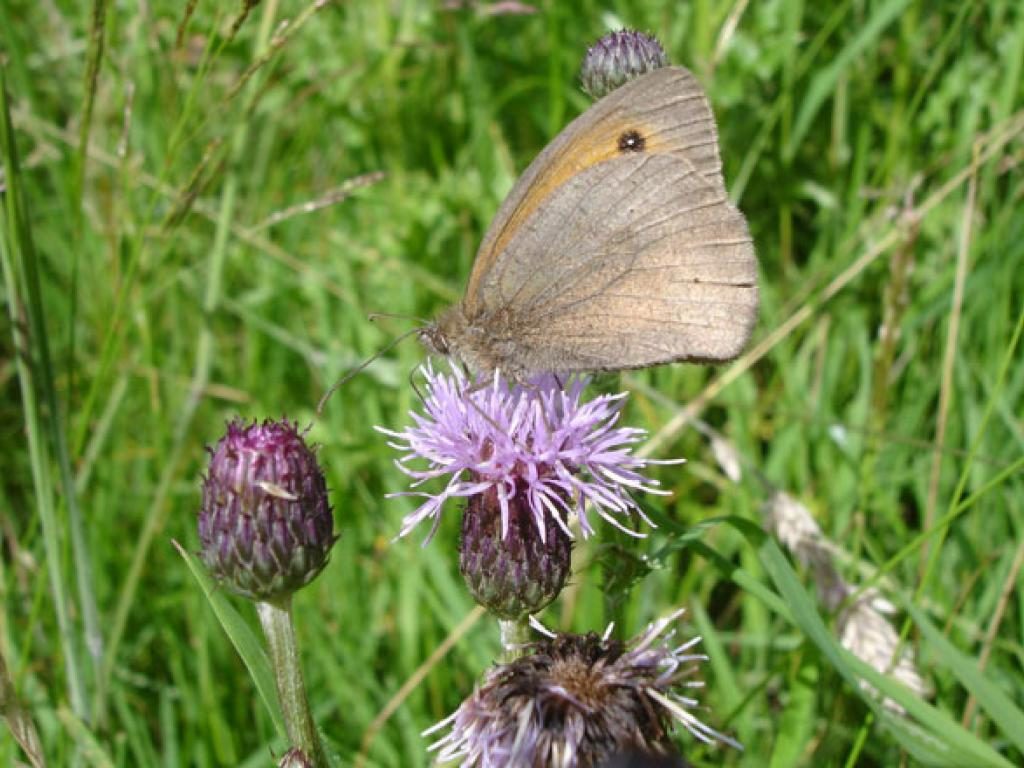
Meadow brown male underwing
Size and family
- Family: Browns
- Size: Medium
- Wing Span Range (male to female): 50-55mm
Mountain ringlet
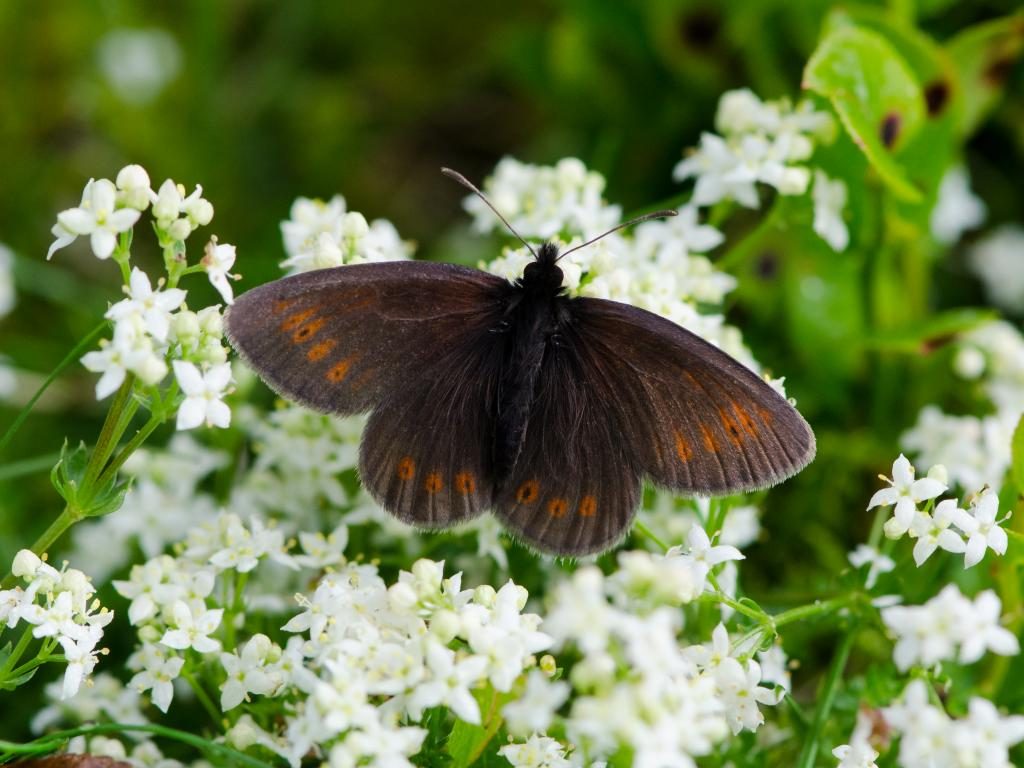
This species is only found on mountain at altitude above 350 m. Mountain ringlet is more active in sunshine, and It is used to fly low to the ground.
The wings are dark brown with orange spots, and it is usually seen on the mountain grassland.
Size and family
- Family – Browns
- Medium Sized
- Wing Span Range (male to female) – 35-38mm
Northern brown argus
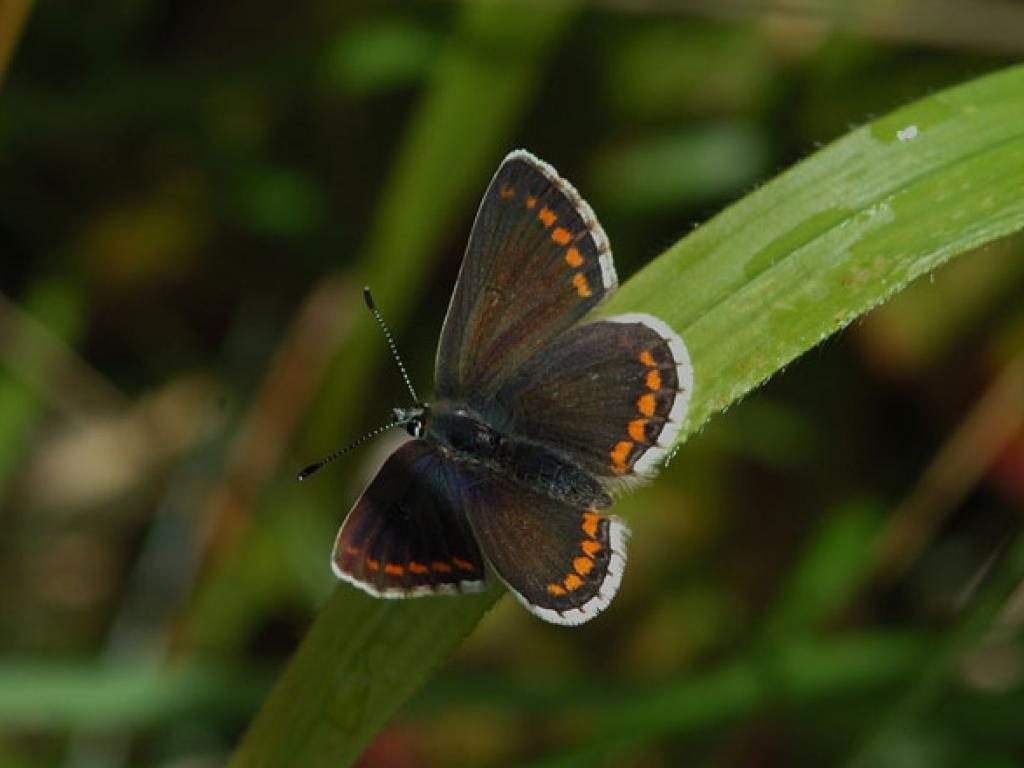
Northern brown Argus is nearly similar to brown Argus, but it has orange spots. Its habitats are usually in drained, lightly graze of grassland, but prefers to sheltered grassland. This species is widespread in England and Scotland.
Size and family
- Family: Blues
- Size: Small
- Wing Span Range (male to female): 29mm
Orange tip
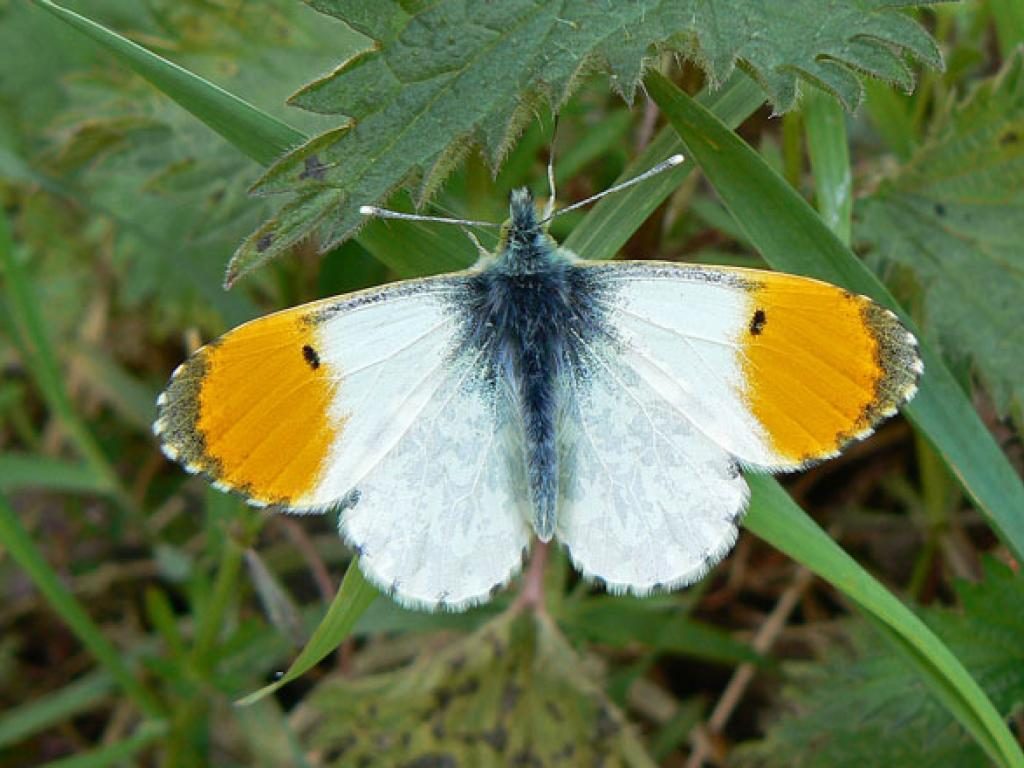
The wings of males are white color with orange and brown tip, while the female’s wings are white with gray tip and black spots. Orange tip’s habitats are damp area such as woodland, hedgerows, and others.
-
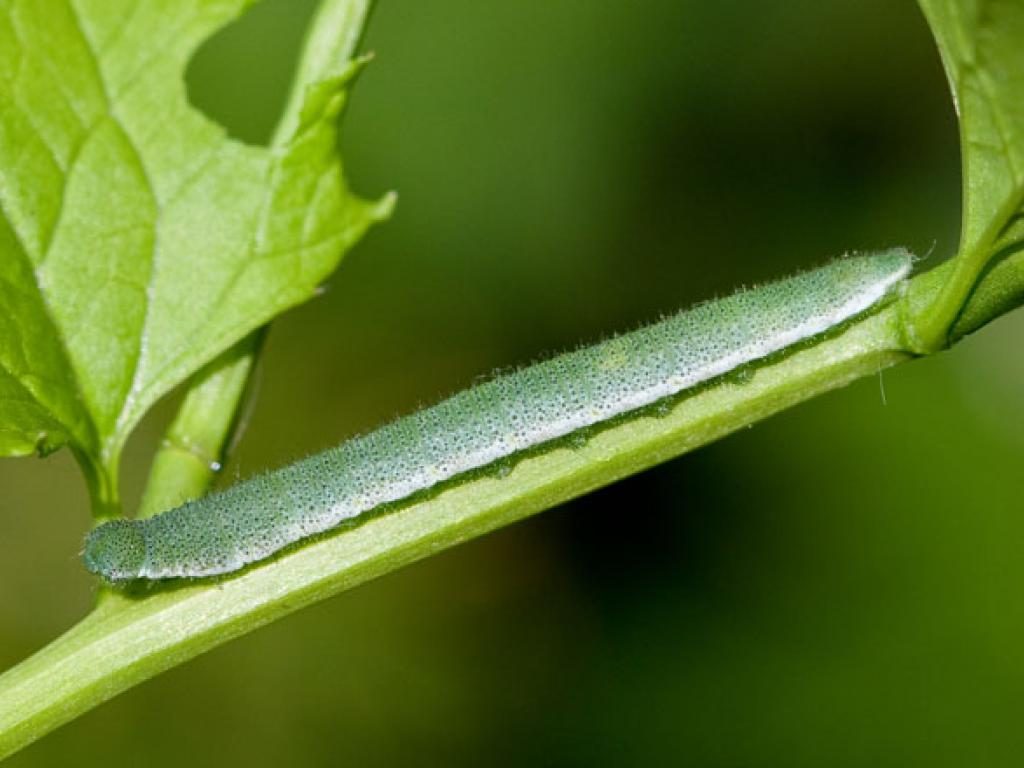
orange tip caterpillar -
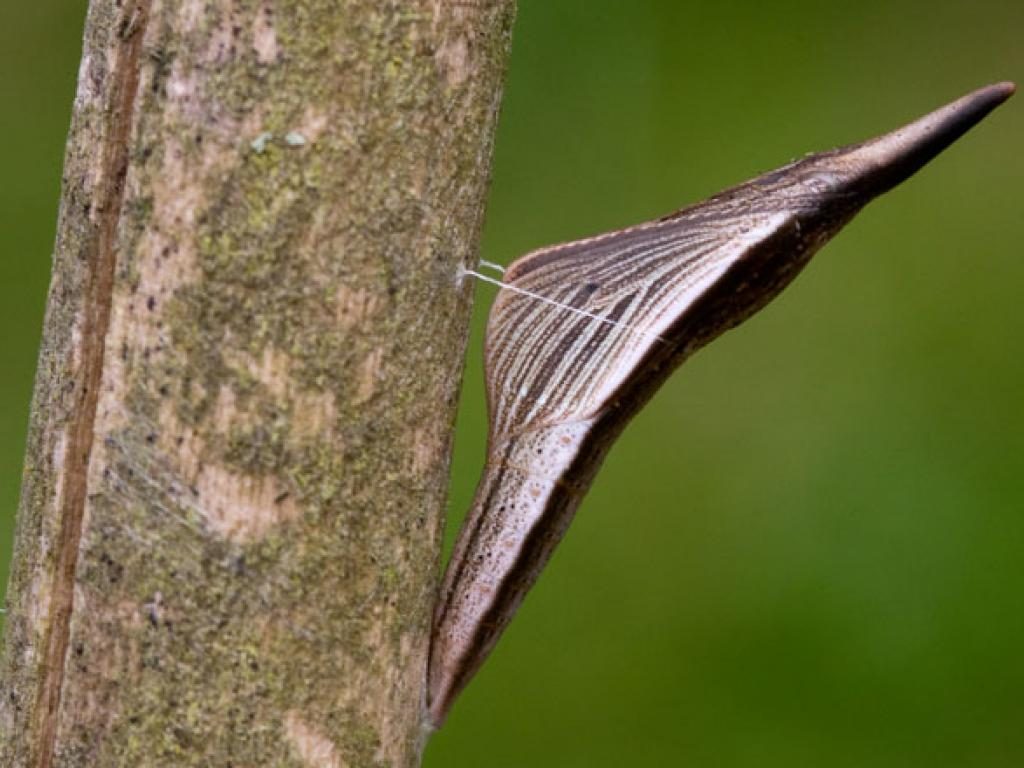
orange tip pupa -
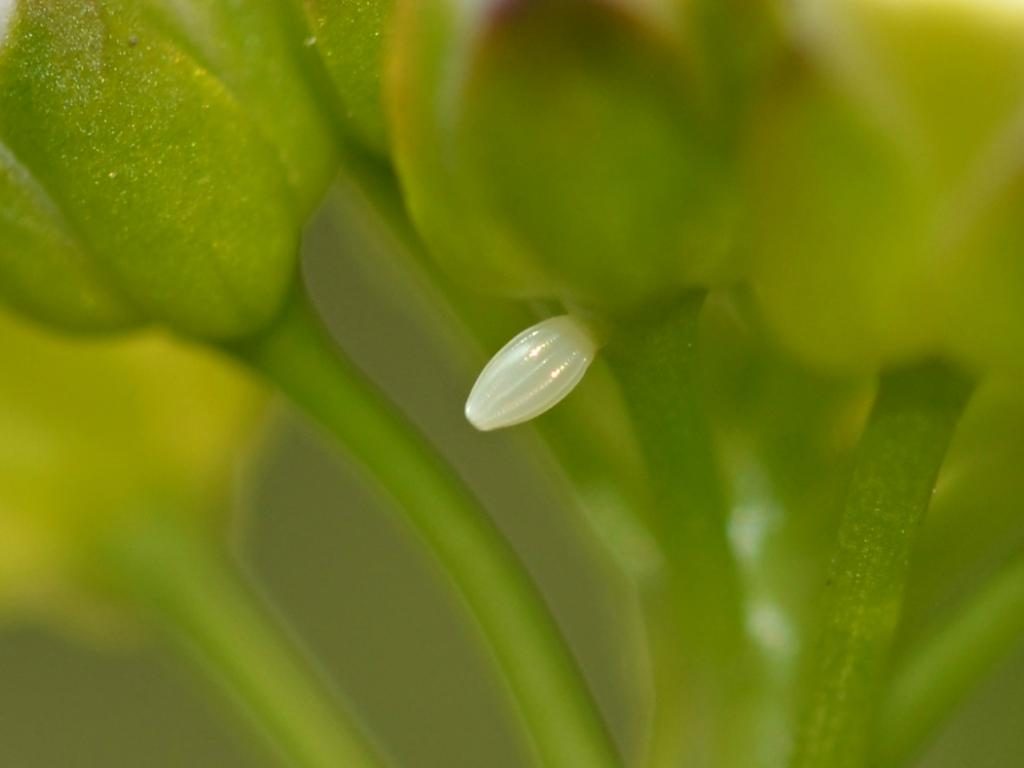
orange tip egg -
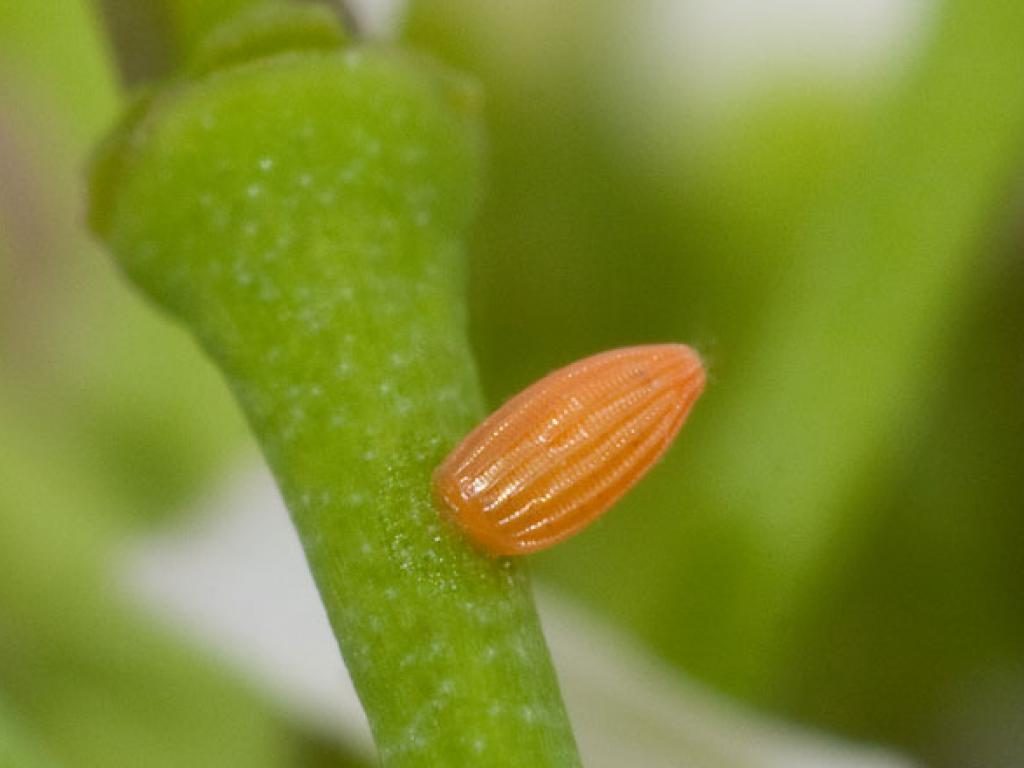
orange tip mature egg -
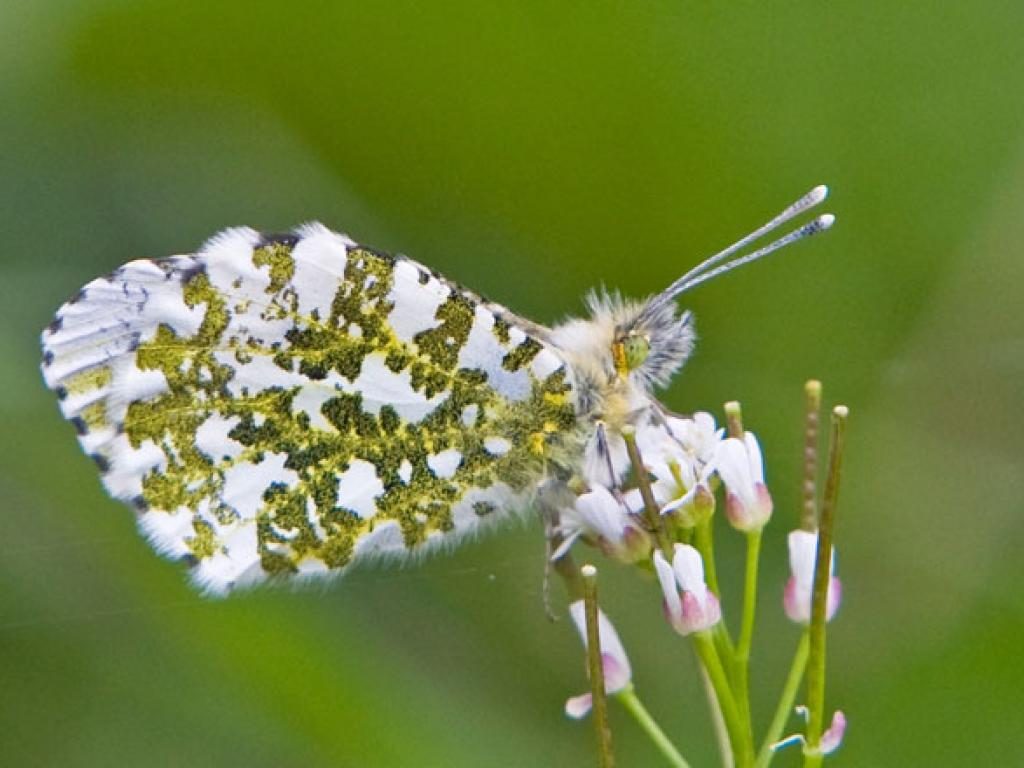
orange tip female underwing -
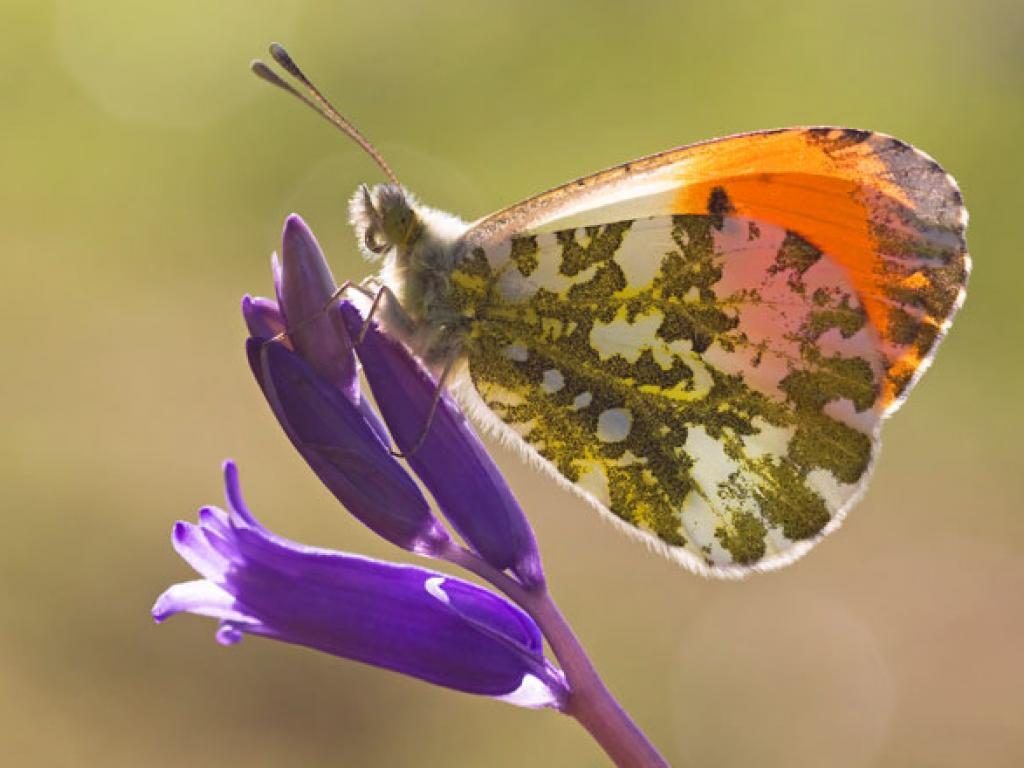
orange tip male underwing -
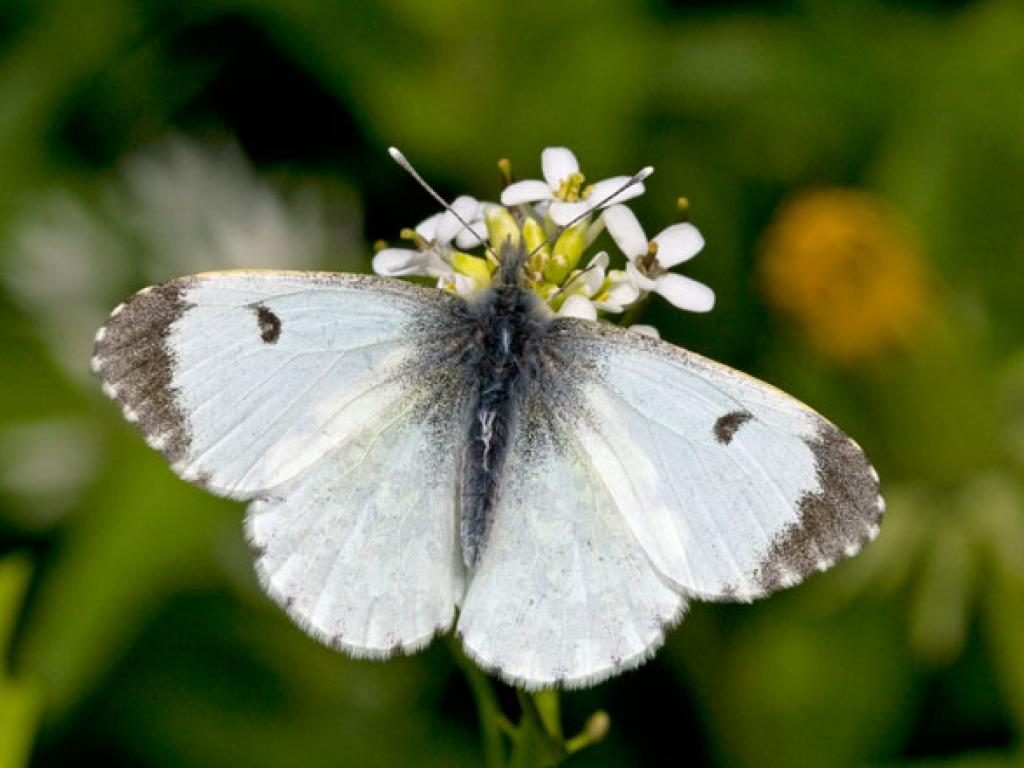
orange tip female upperwing
Size and family
- Family: Whites and yellows
- Size: Medium
- Wing Span Range (male to female): 45-50mm
Painted lady
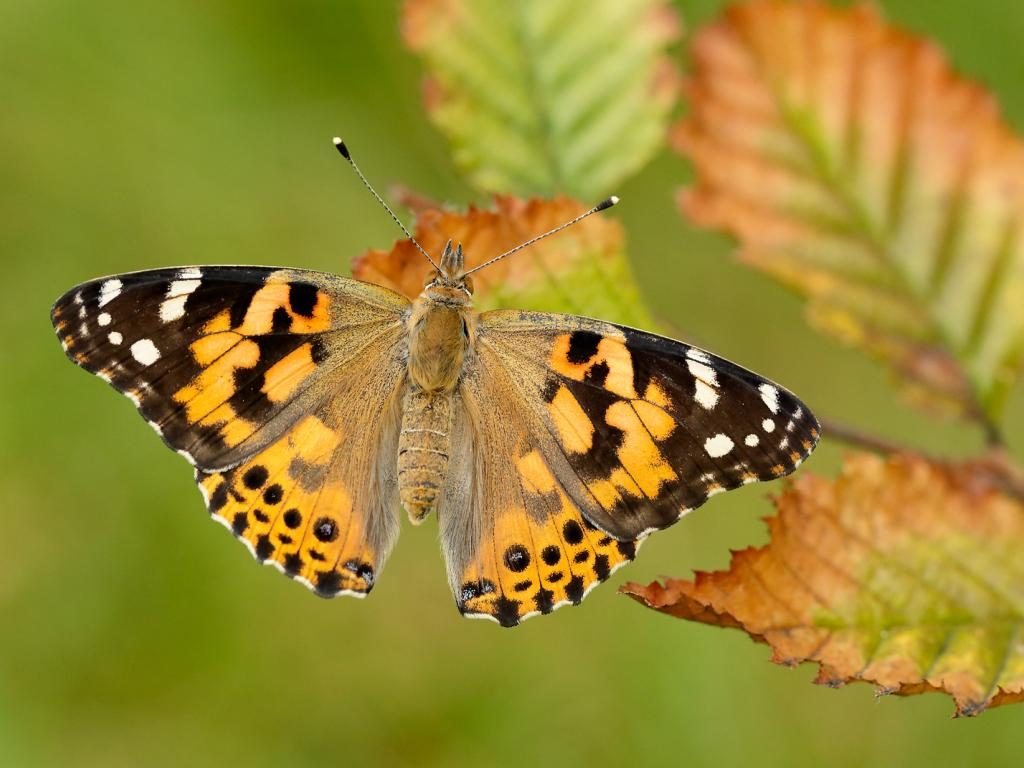
Painted lady can migrate to the longer distances. This is mostly seen on the gardens and flowery areas in late summer.
The wings are orange with black pattern, and black tip, also white spots on the fore wings.
Size and family
- Family: Nymphalids
- Size: Medium
- Wing Span Range (male to female): 50-56mm
Peacock
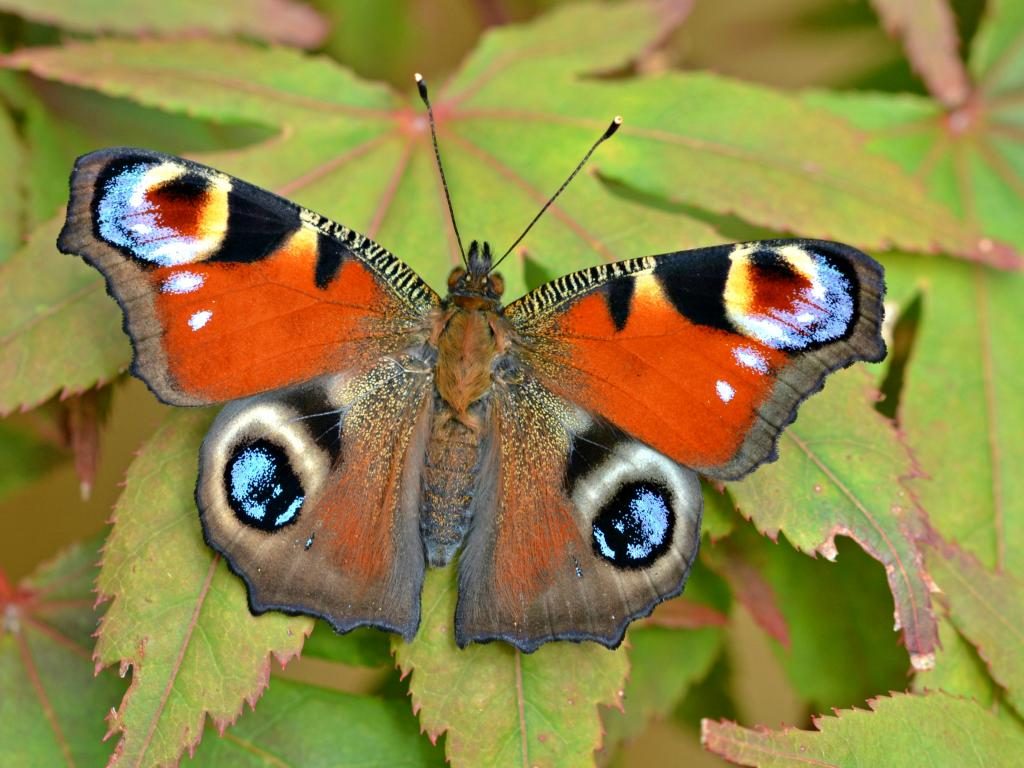
The under wings of Peacock are dark black without any pattern, while The upper wings are bright red with wonderful pattern of eye spots that can be confusing predators. Peacock is commonly found in the gardens in late summer.
Size and family
- Family: Nymphalids
- Size: Medium/Large
- Wing Span Range (male to female): 63-69mm
Pearl-bordered fritillary
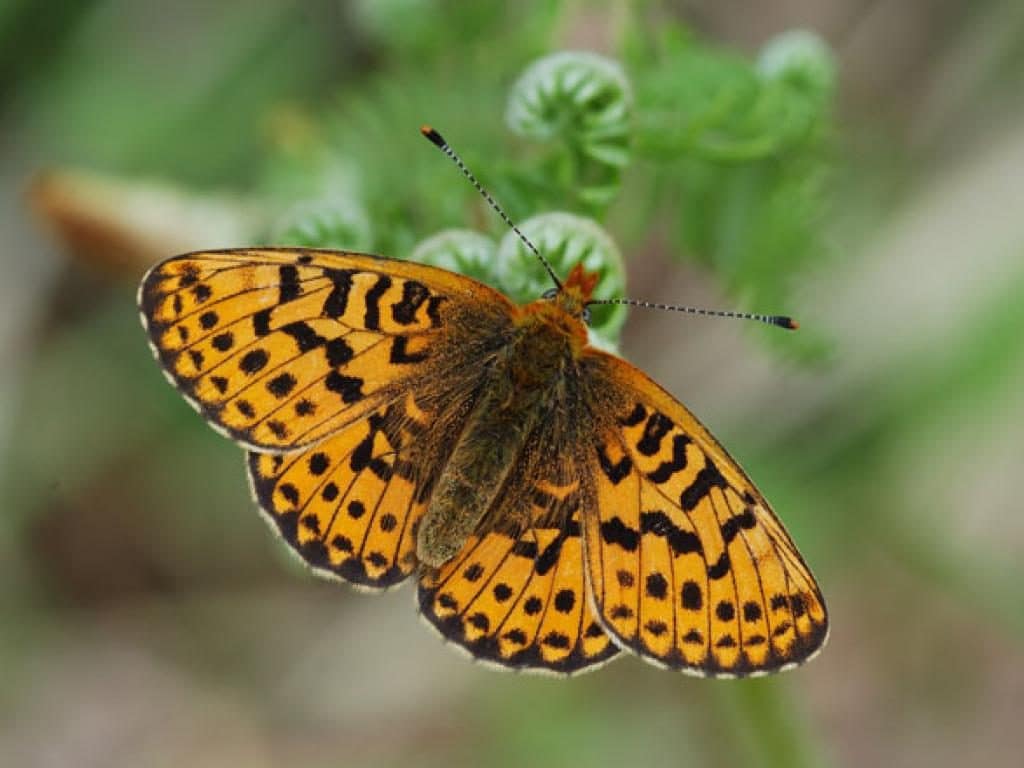
Pearl-bordered fritillary is widespread in England and Wales that is used to live in woodland. Its wings are bright orange with black pattern on the upper side and white pattern on the under side.
Size and family
- Family: Fritillaries
- Size: Medium
- Wing Span Range (male to female): 44-47mm
Purple emperor
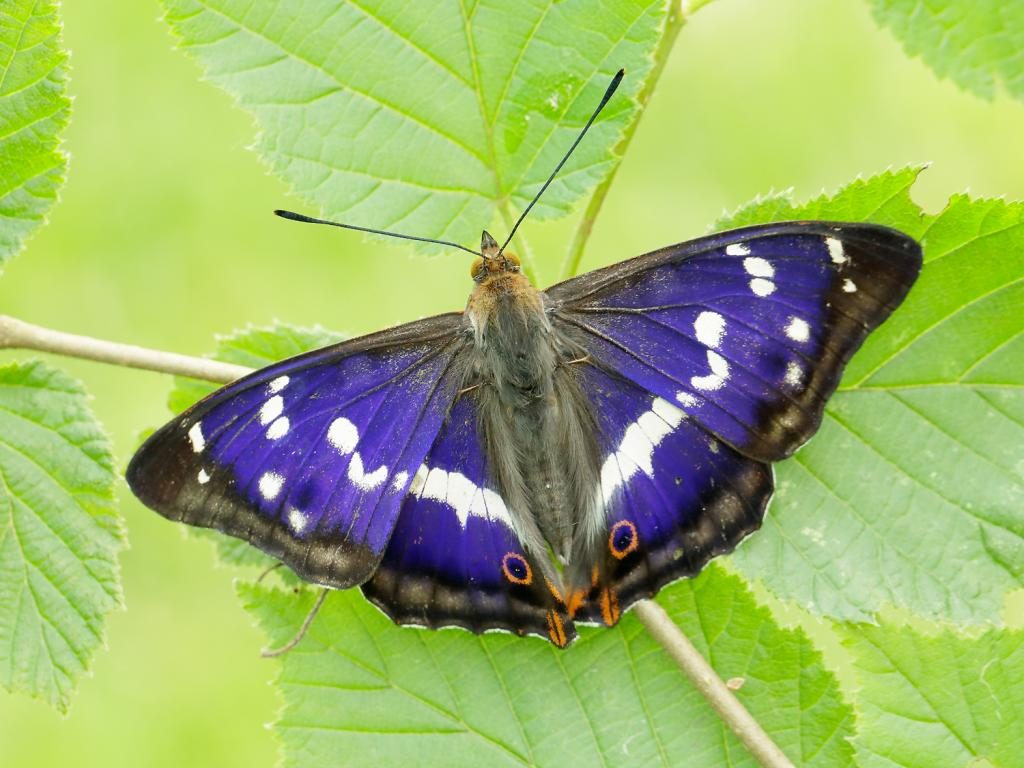
Purple emperor usually feed on aphid honeydew and ctree sap. This butterfly species can fly high to the top of trees. The wings of male are purple with black tip and white patterns, while the wings of female is similar to white admiral, but it has orange spots.
Size and family
- Family: Nymphalids
- Size: Large
- Wing Span Range (male to female): 75-84mm
Purple hairstreak
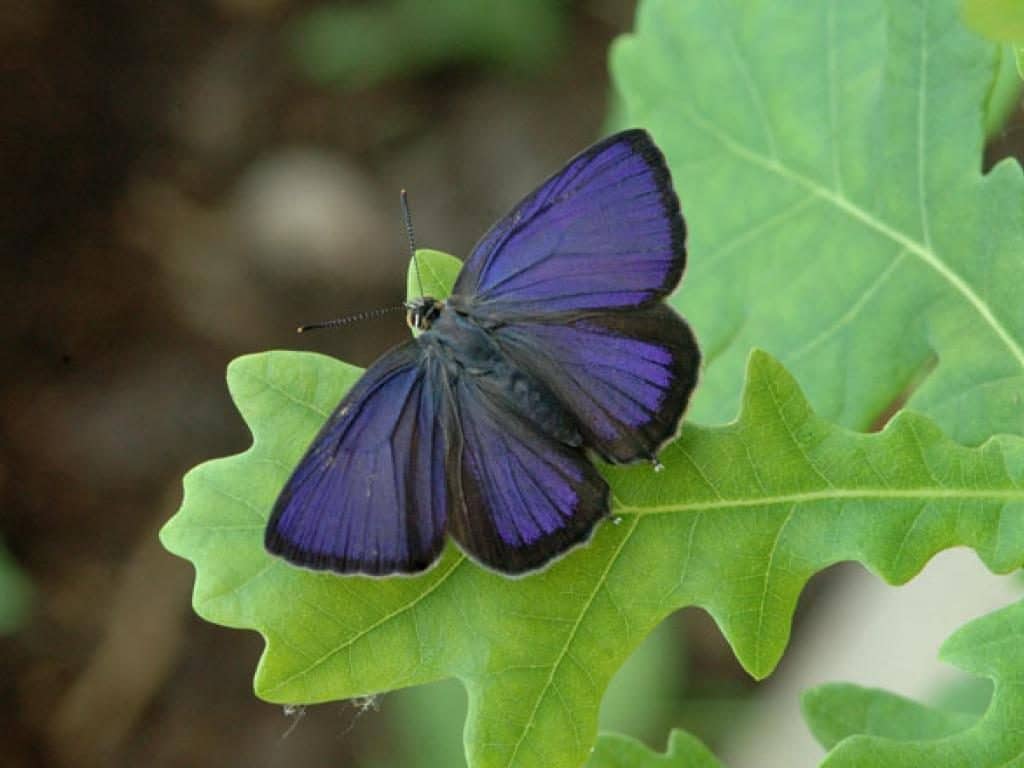
Purple hairstreak’s wings are purple with black rows and brown edges. This butterflies species is used to fly over on the evening in summer and flying down to find source of nectar. It is widespread in England, Wales, Ireland, and Scotland.
Size and family
- Family: Hairstreaks
- Size: Small
- Wing Span Range (male to female): 37-39mm
Red admiral
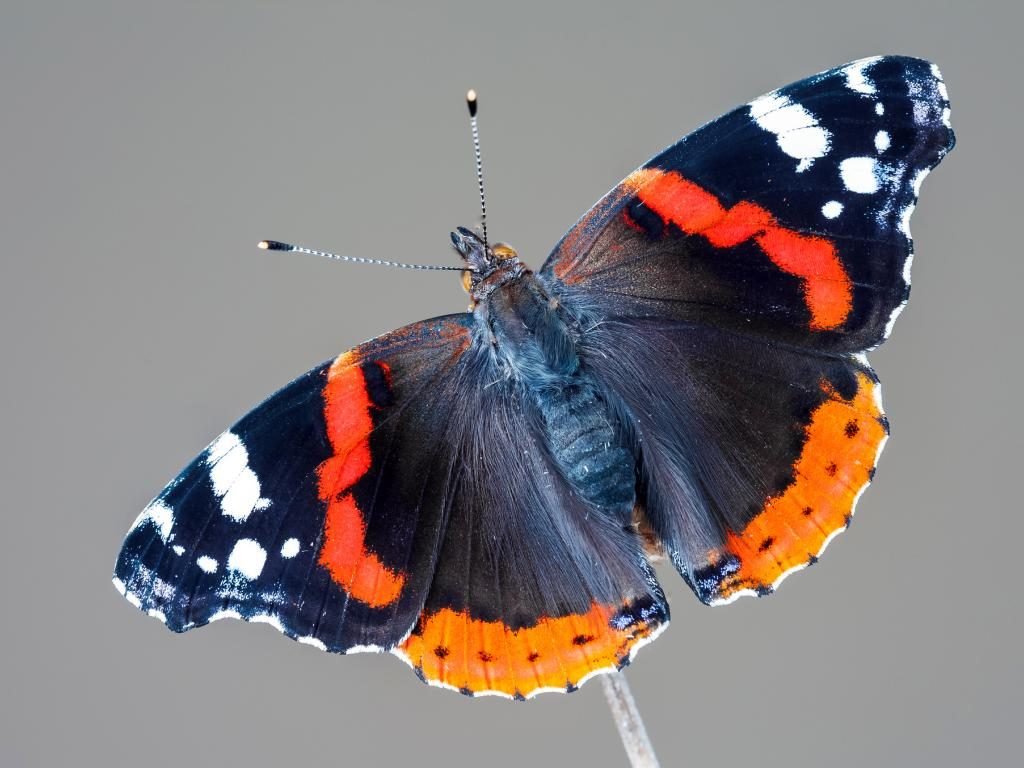
Red admiral is commonly seen in the garden. It is typical strong flying butterfly which can immigrate during summer to spring. The wings are black with thick red and white patterns. This species is mostly found in Britain and Ireland.
Ringlet
Ringlet is widespread in England, Wales, Ireland, and Scotland where exactly in woodland, and grassland. The favorite flowers are bramble and wild privet. Its wings are brown with black eyespots.
Scotch Argus
The wings of Scotch Argus are brown with orange tip and black eyespots. This species is usually seen in damp grassland. The males are used to fly over to find a mate. It widely found in England and Scotland.
Silver-spotted skipper
This small butterfly prefers to warm place on chalk grassland. The upper wings of Silver-spotted skipper are orange with black tip and white marks, while under wings are bright brown with white spots. This butterfly species only can be found in England.
Silver-studded blue
This type is commonly found in England and Wales where exactly on heath land, sand dunes, and chalk grassland. The top wings of males are blue with black border and white edges, while under wings are blue with brown with black spots and a bit orange. The top wings of female wings are brown with white edges, while under wings are brown with black spots.
Silver-washed fritillary
Silver-washed fritillary is one of the most beautiful butterflies that is usually found in woodland. The wings of males are orange with silver streaks, and black pattern, while the wings of females are bronze green with veins, and white rows.
Small blue
This butterfly frequently makes overlook due to its color and size that it usually perches in the sheltered grass or scrub. The wings are greenish blue with thin veins and white edges. This small butterfly is occasionally found in the afternoon, and it is widespread Britain and Ireland.
Small copper
Small copper’s wings have combination color and pattern between bright orange and black with white edges. The males usually take place on the stone for basking in the sunshine or waiting for the females. This small butterfly is commonly found in the grassland, heath land, woodland where are in England, Scotland, Ireland, and Wales.
Small heath
This small butterfly usually takes place on grassland where has good grasses. It used to spend its time for basking and flying in the sunshine. Small heath is widely found in Scotland, England, Wales, and Inland. The forewings are brown with bright orange in the center and black spot which resemble to the eye.
Small pearl-bordered fritillary
This butterfly is commonly found in grassy place, and woodland. Its forewings are bright orange with unique black patterns, black veins, and yellow fringes. Small pearl-bordered fritillary is widespread in England, Scotland, and Wales.
Small skipper
Small skipper prefers to the grassy place such as grassland, downs, and woodland. It is commonly found in southern Britain, Scotland, and Wales. Its wings are brown with bright orange in the center and white edges. The males typically have thin black veins. This butterfly is used to spend its time to bask in the sunshine place.
Small Torroiseshell
This large butterfly has orange with black and blue unique patterns, also black edges. This butterfly is mostly seen in the spring and autumn that they used to come to the gardens. Small Torroiseshell is widely found in England and Ireland.
Small white
The upper of wings Small white are white with veins and black spot, while its under wings are green with blue in the center, veins, and two black spots. This butterfly is widespread in England, Scotland, Wales, and Ireland that it is mostly found in garden.
Speckled wood
Speckled wood takes place in woodland, garden, and hedgerows that it frequently perches in the sunshine. On the top of wings are brown with yellow patterns and yellow edges, while under wings are brown with thin veins and white edges. This butterfly is distributed in England, Scotland, Wales, and Ireland.
Swallowtail
Swallowtail is widespread in England, Scotland, Wales, and Ireland. This butterfly sometimes migrates elsewhere but usually seen on grassland. Its wings have combination pattern color between yellowish and black with a bit blue.
Wall
This butterfly is nearly similar to Gatekeeper on its color and size, but wall has more patterns on its wings. Its wings are combination pattern color between brown and orange. The males are used to fly over to find females when hot weather, while when cool weather they will bask in the sun. Wall is widely found in Southern Scotland, Northern England, and Inland.
White admiral butterfly
White admiral has white and orange wings color with black thin strips and black edges. It mostly sucks up the nectar on the bamble flowers. This butterfly is found mainly in Southern England, Wales, and Northwards.
White-letter hairstreak
The habits of White-letter hairstreak are in large elms with the scrub. It can be found mainly England and Wales. This small butterfly has brown of under wing with white streaks and orange fringes. This type of butterflies usually sucks up the nectar on the bamble flowers and privet.
Wood white
This small butterfly is slow flying butterfly which distributed in England and Wales. The females are used to spend their time for rest and feed on the flowers, while the males are usually flying over in good weather to find a mate. The under wings are white with unclear grey patterns, while its on the top of wings are with round fringes. The males have typically a black mark of the wings.
 Natgeos Green and Vibrant
Natgeos Green and Vibrant
